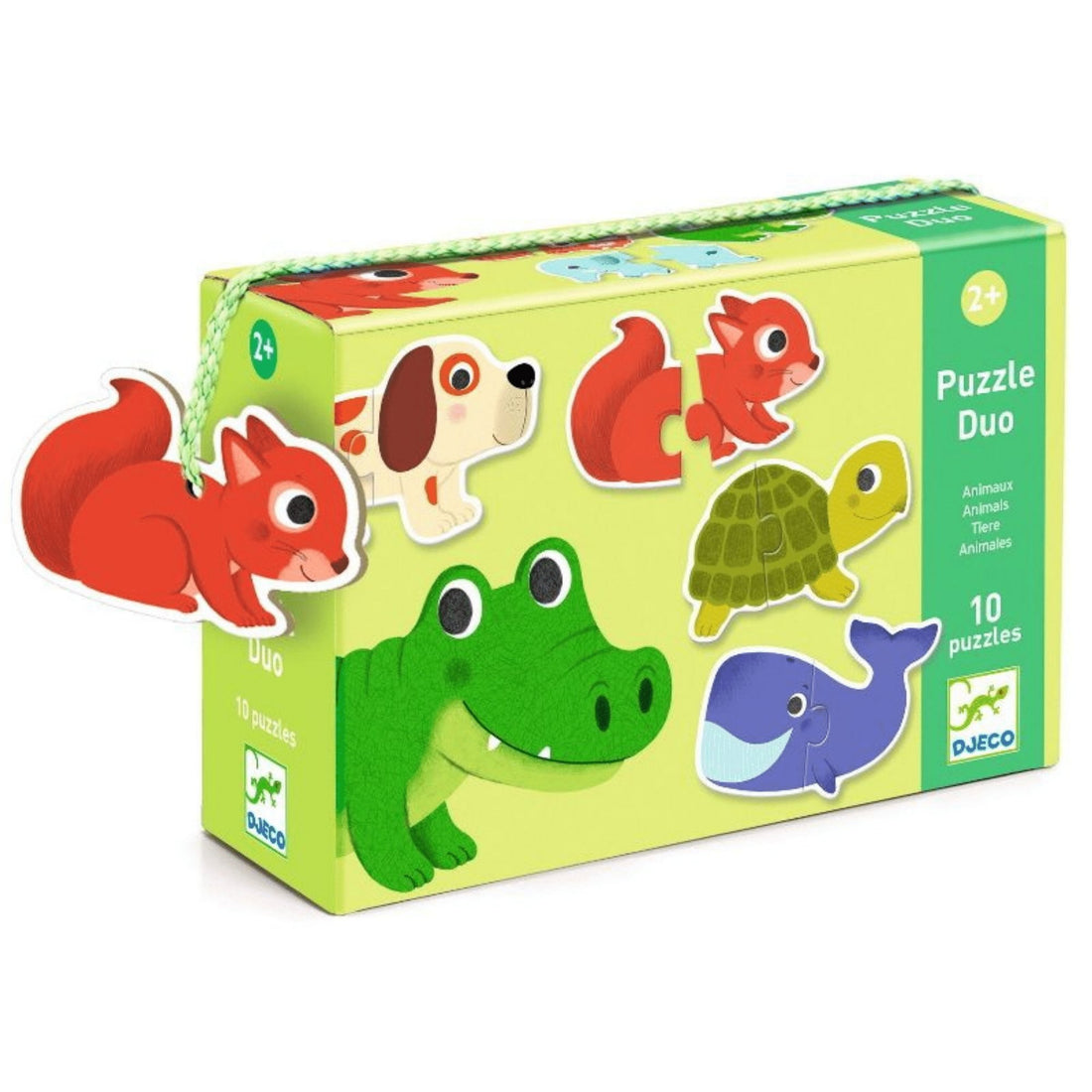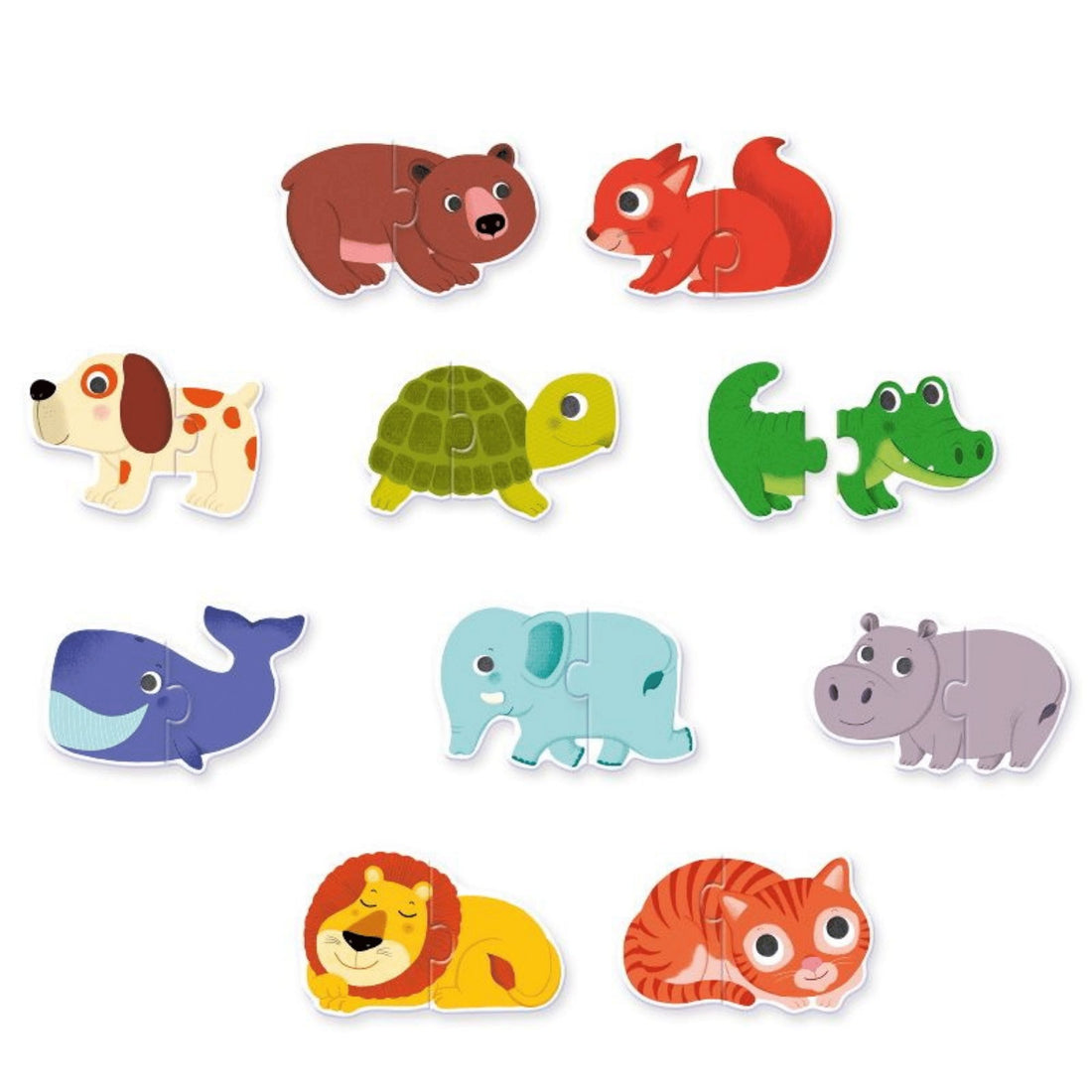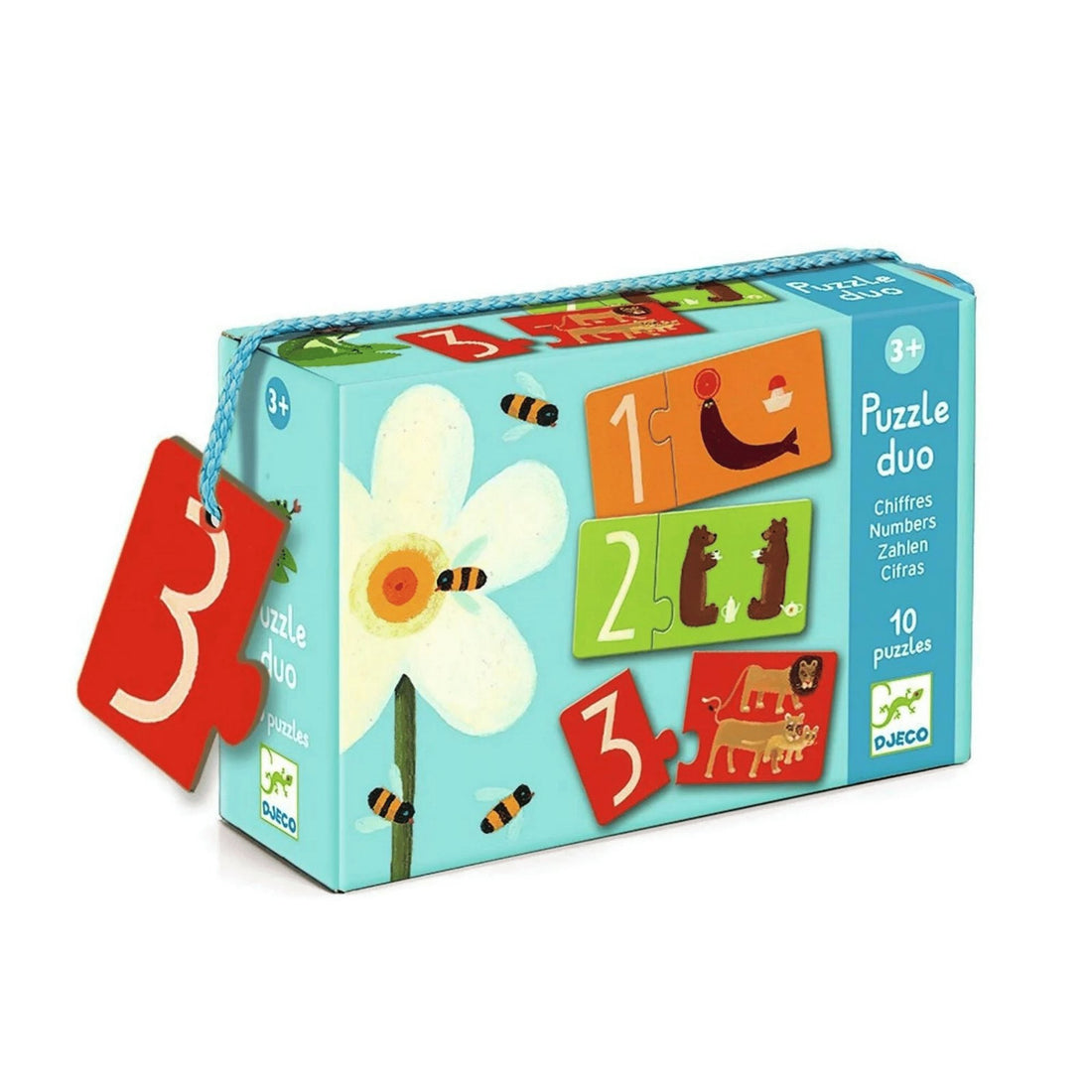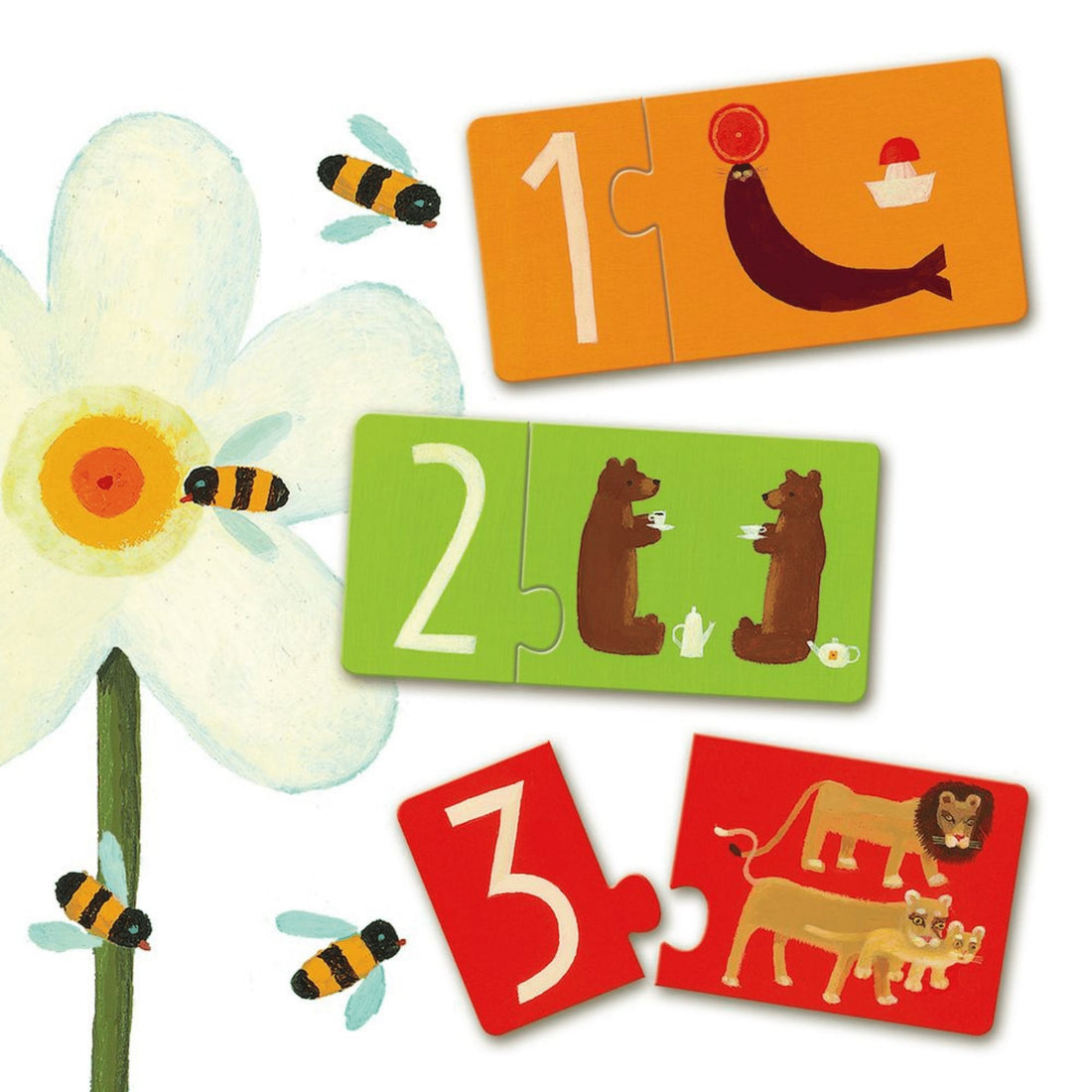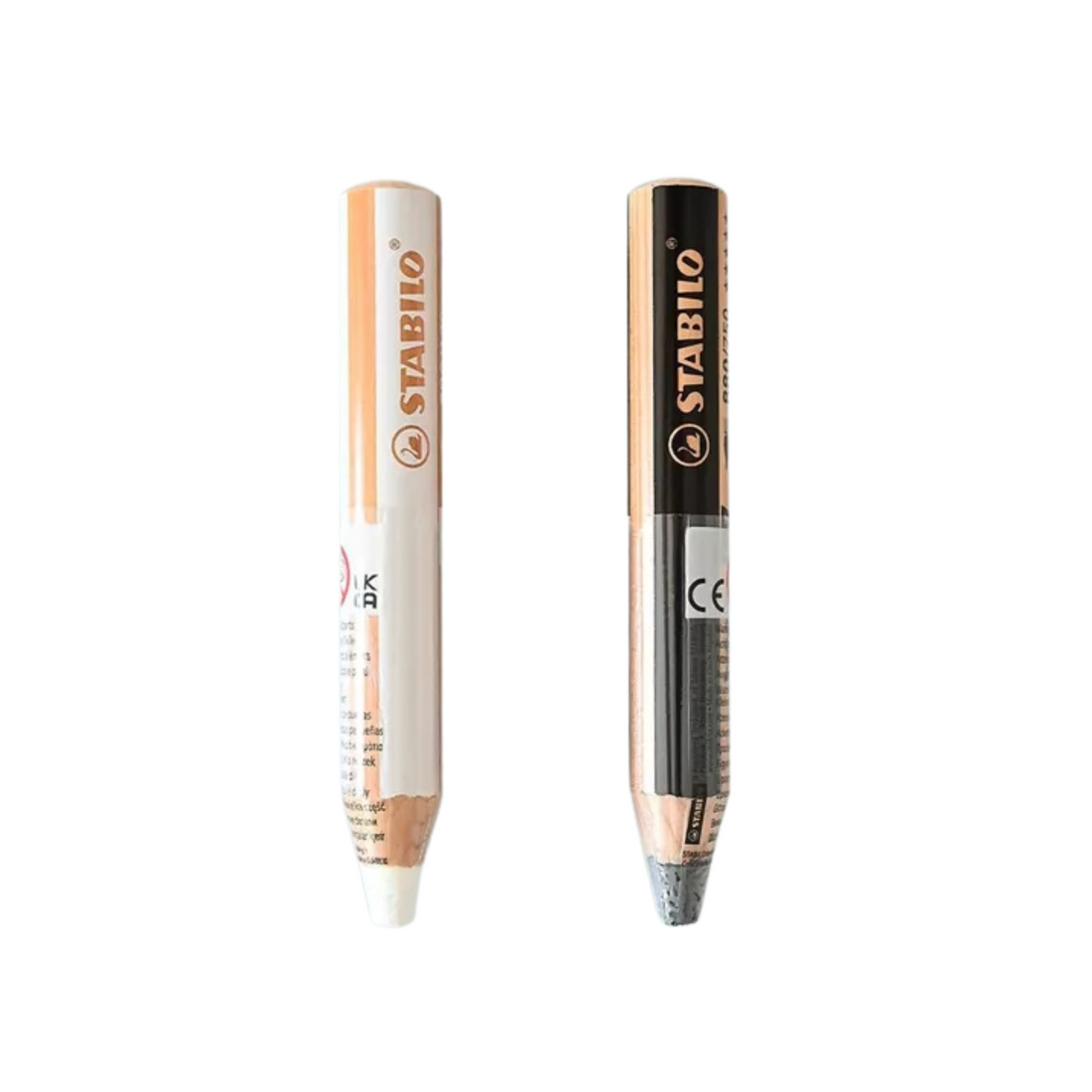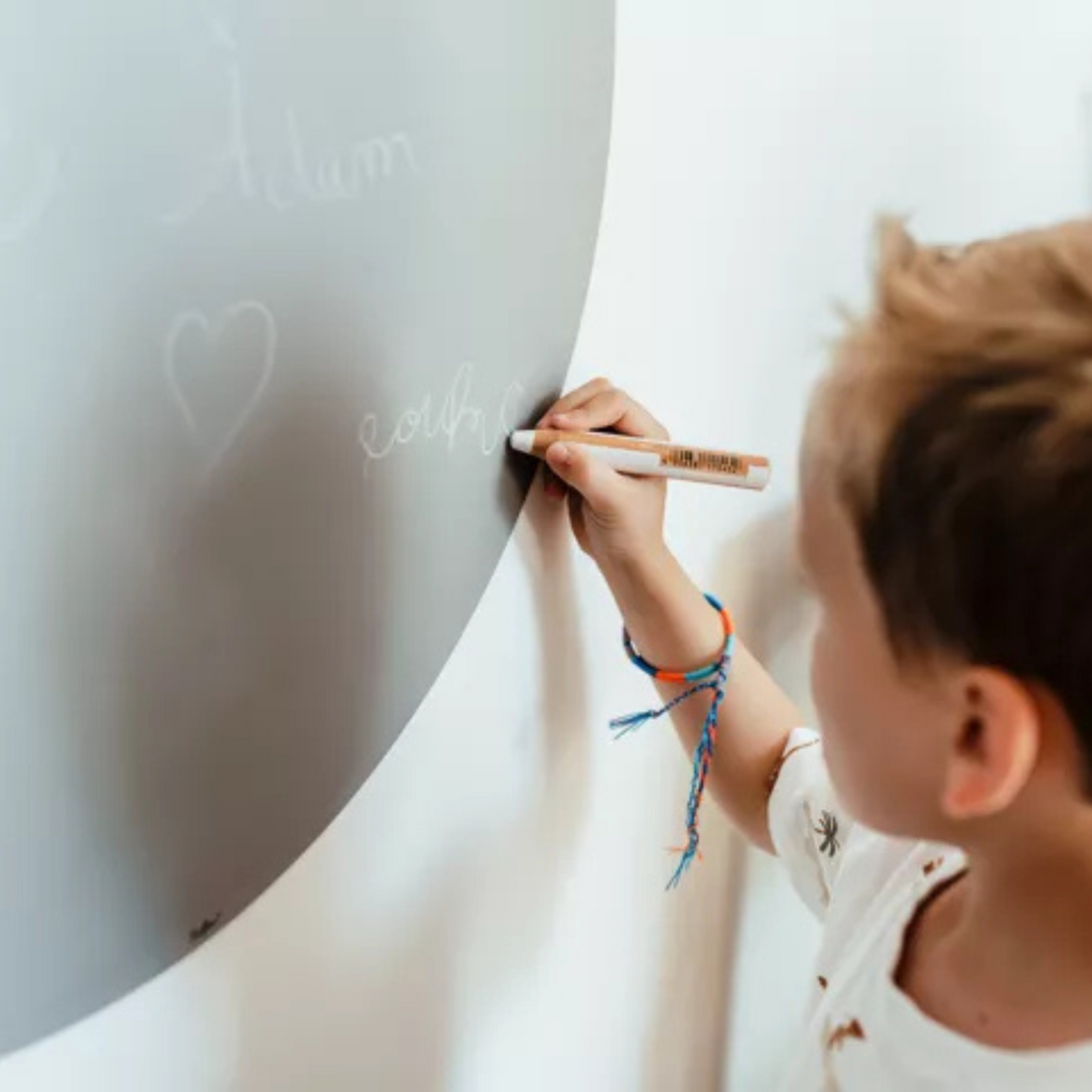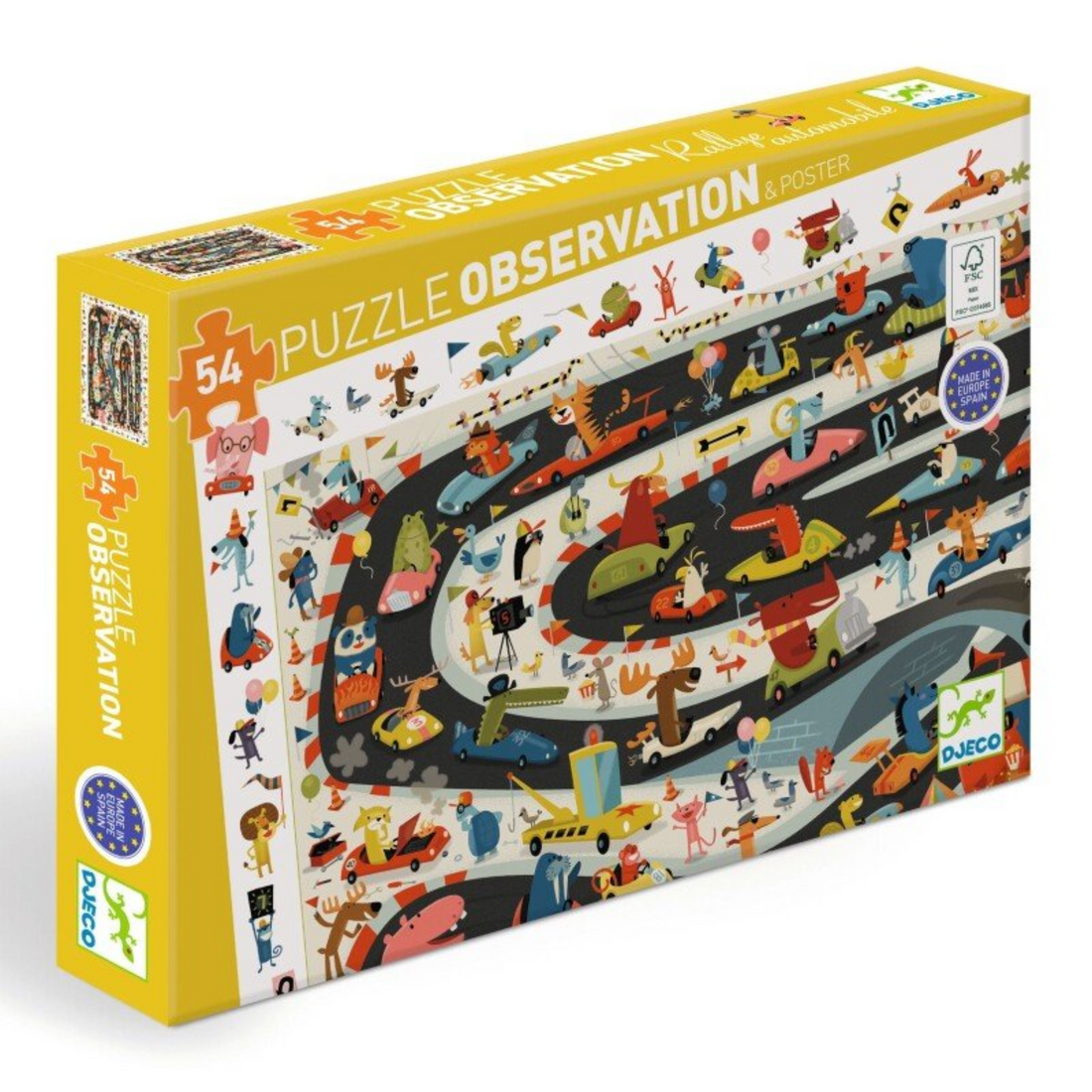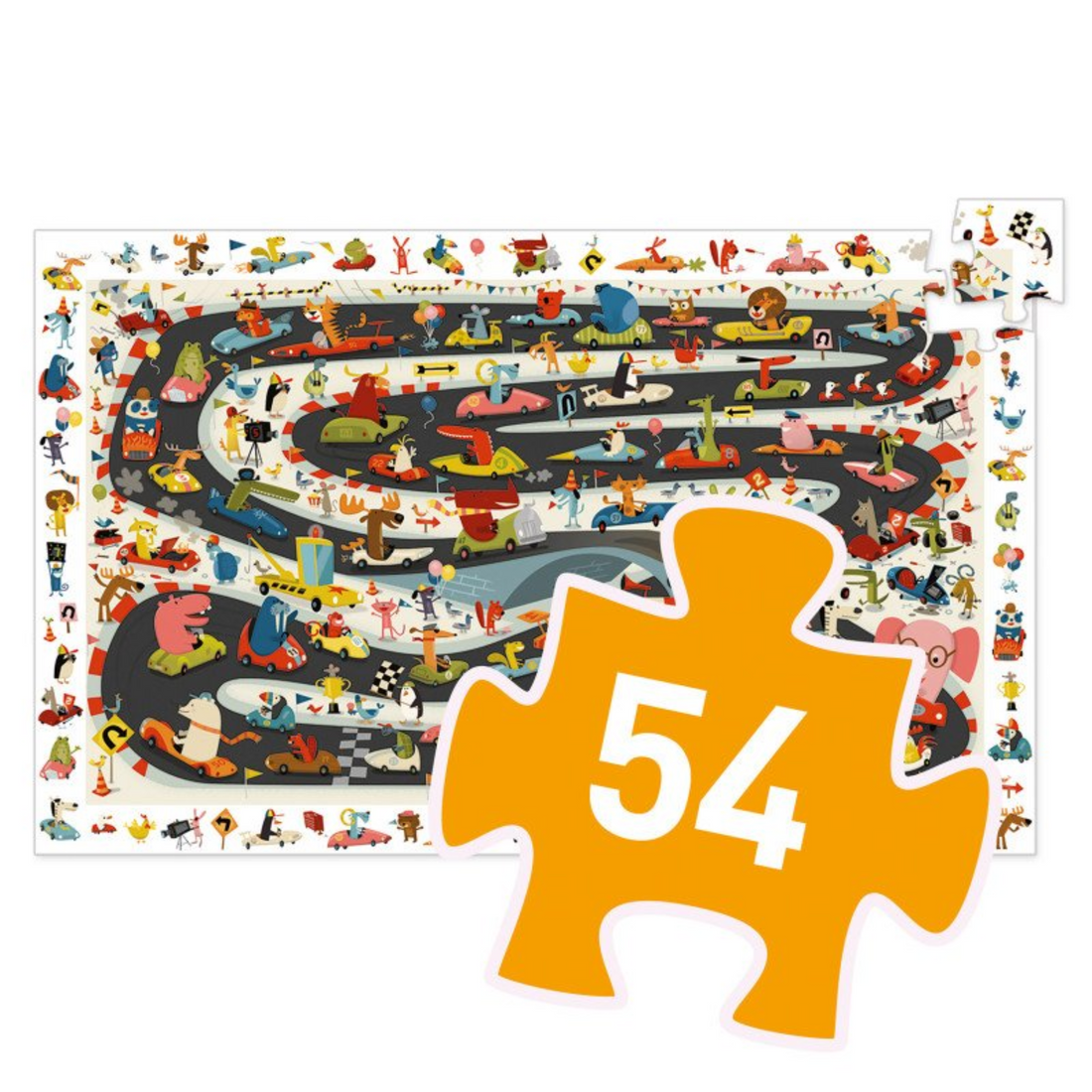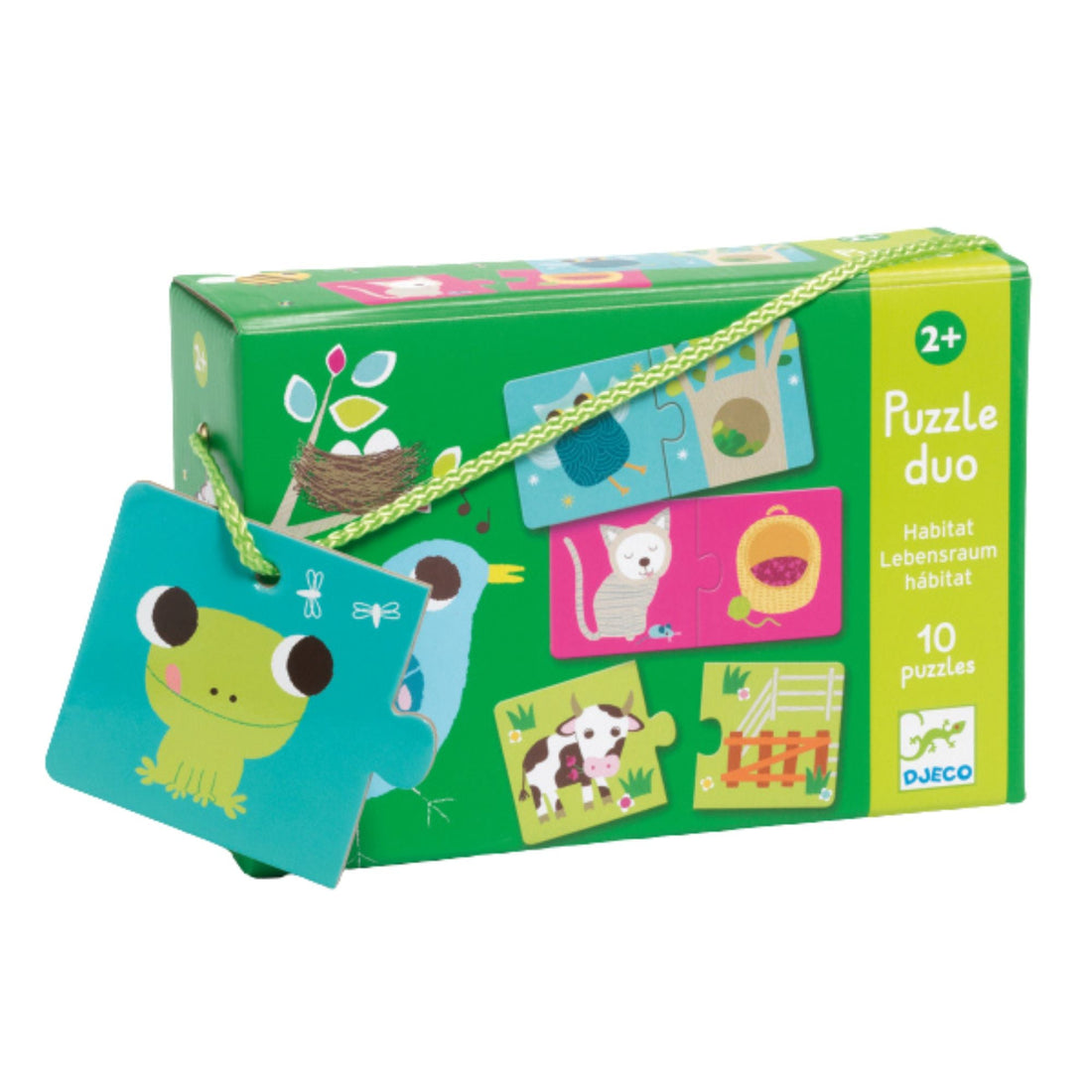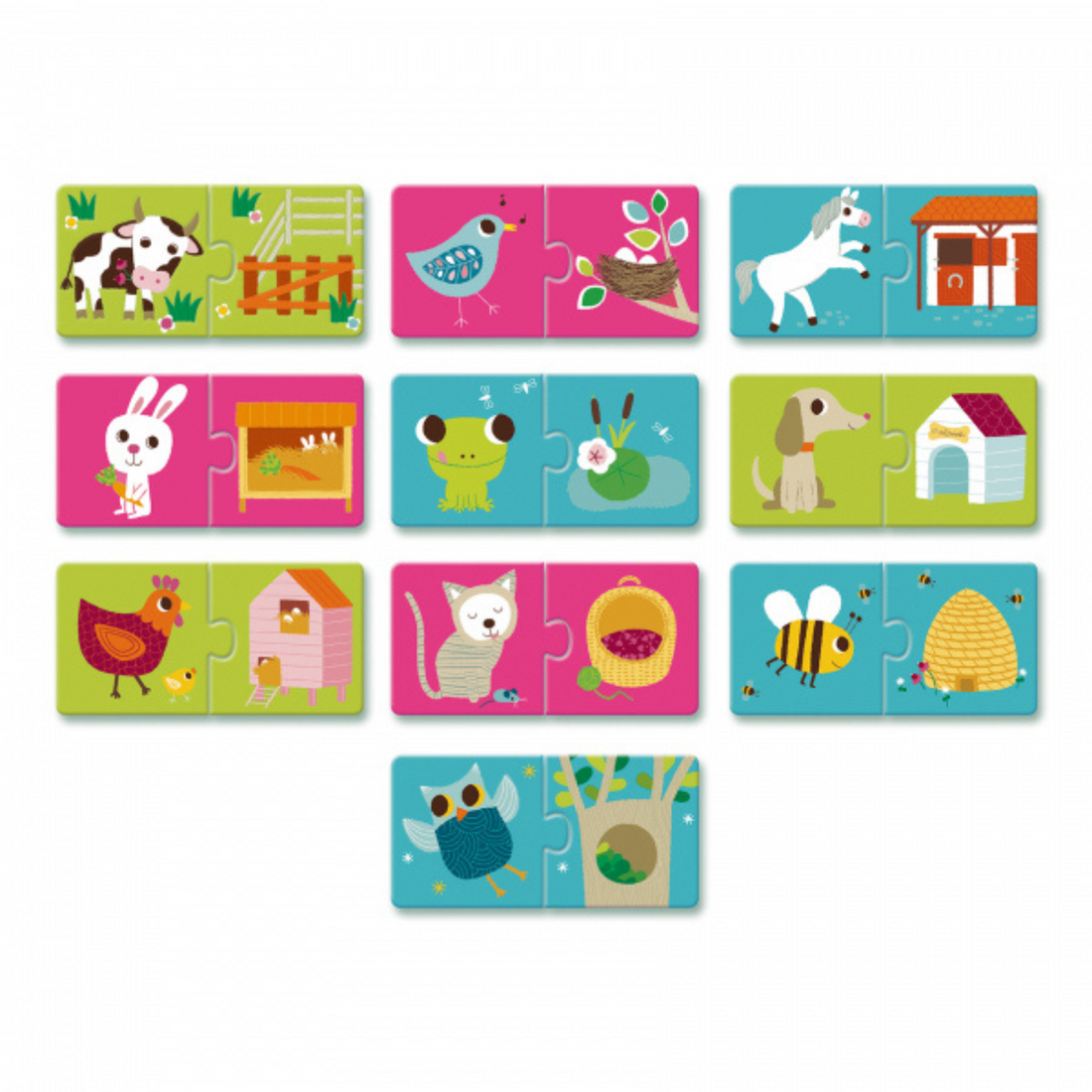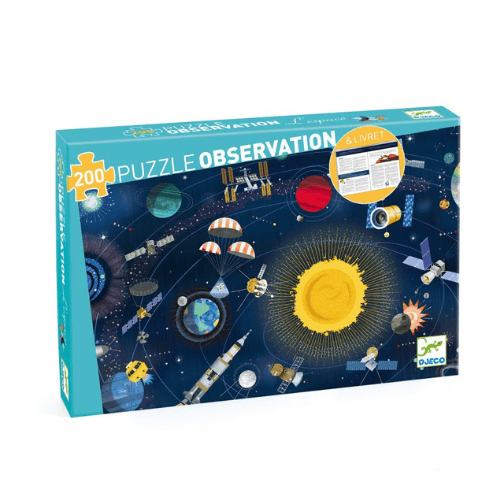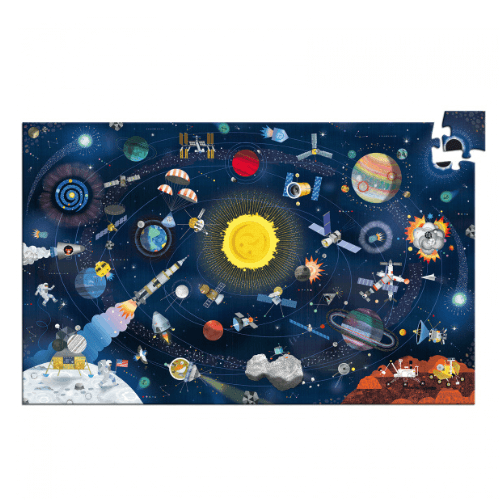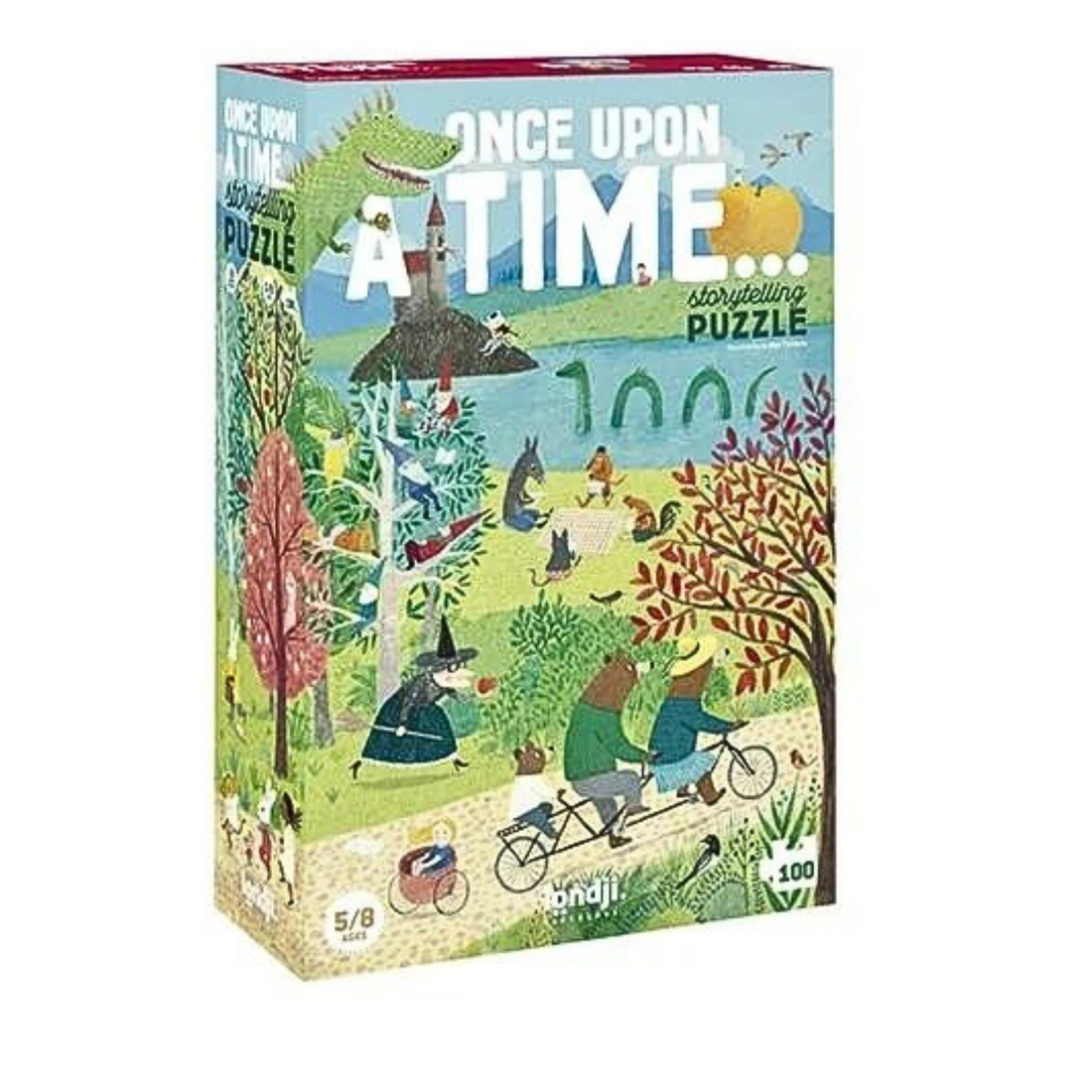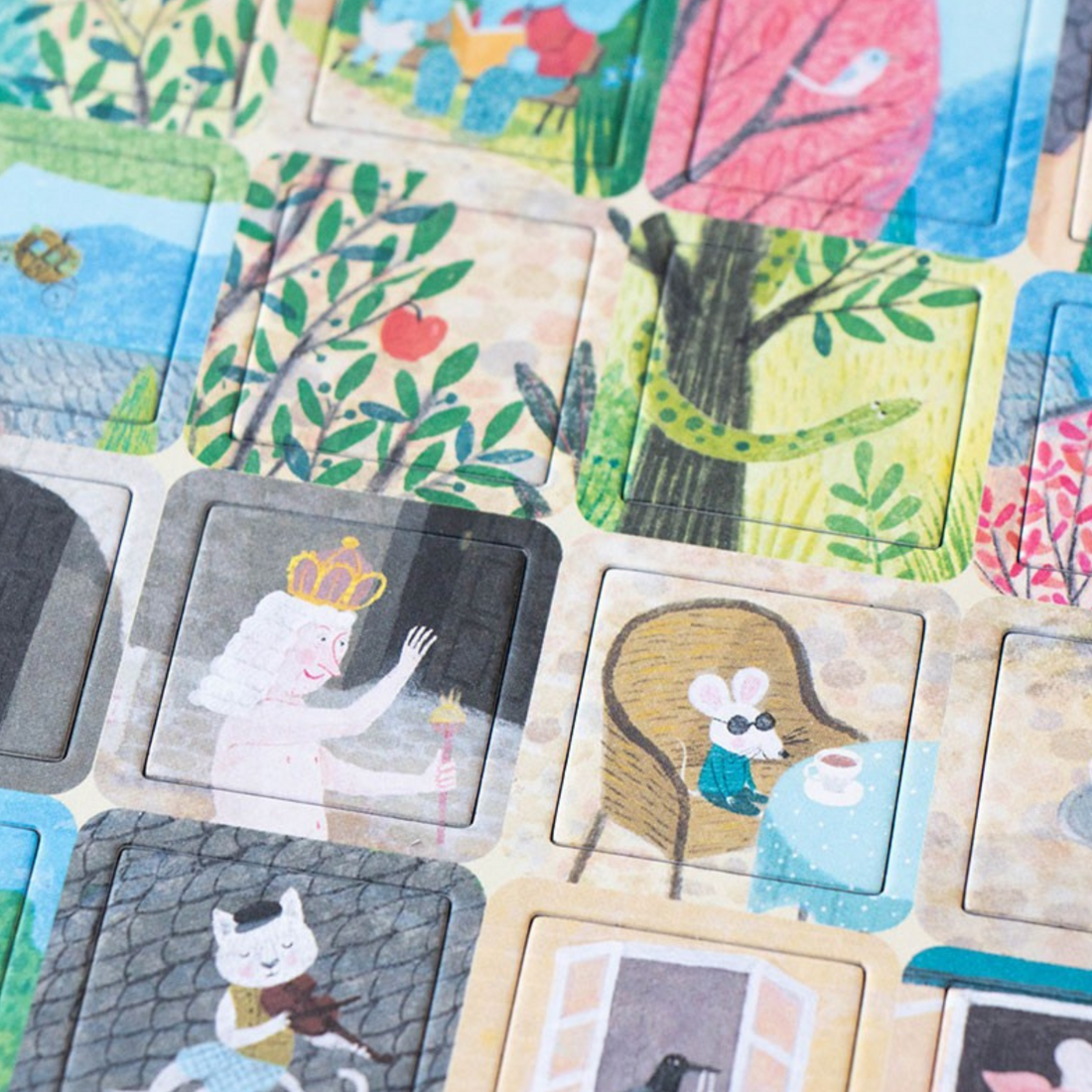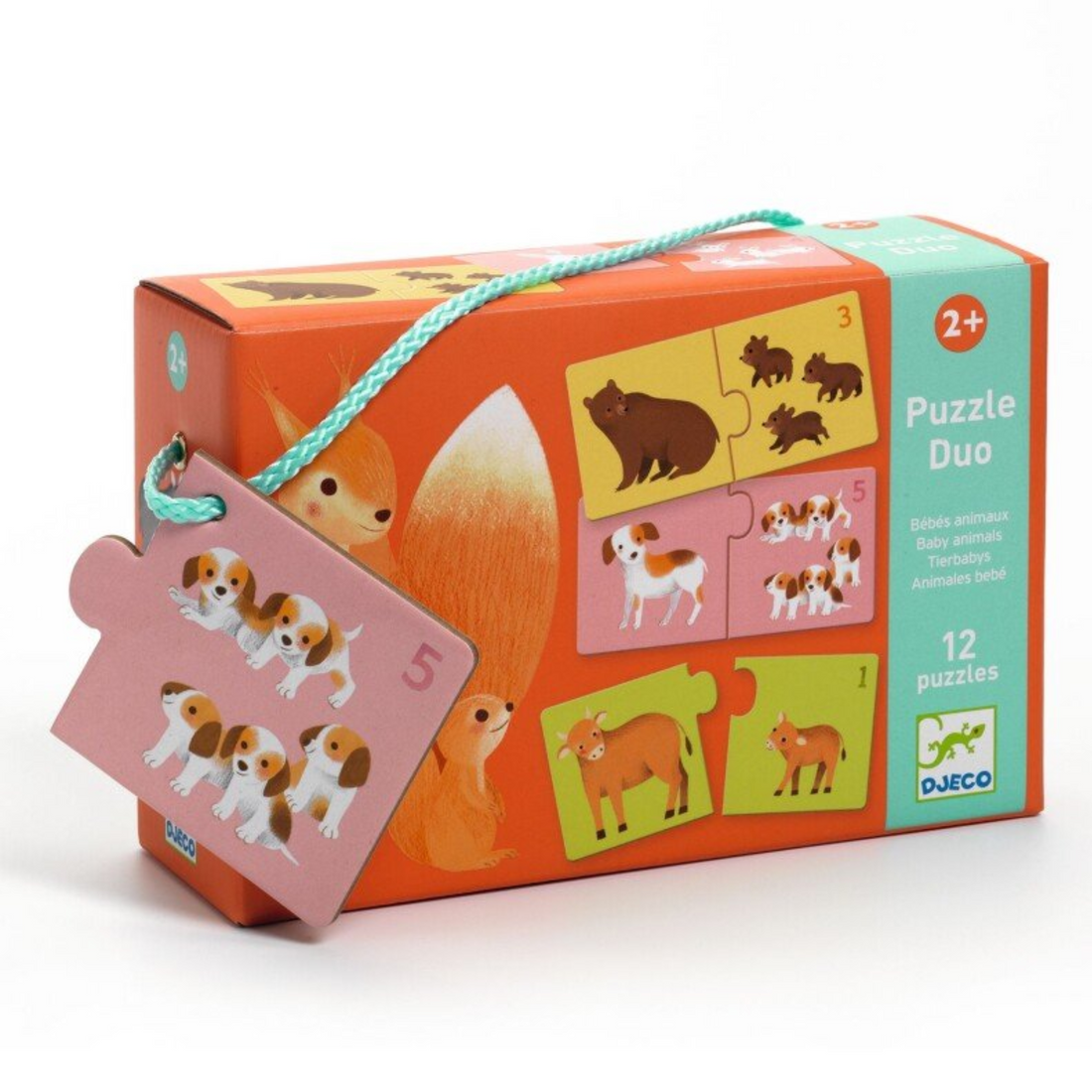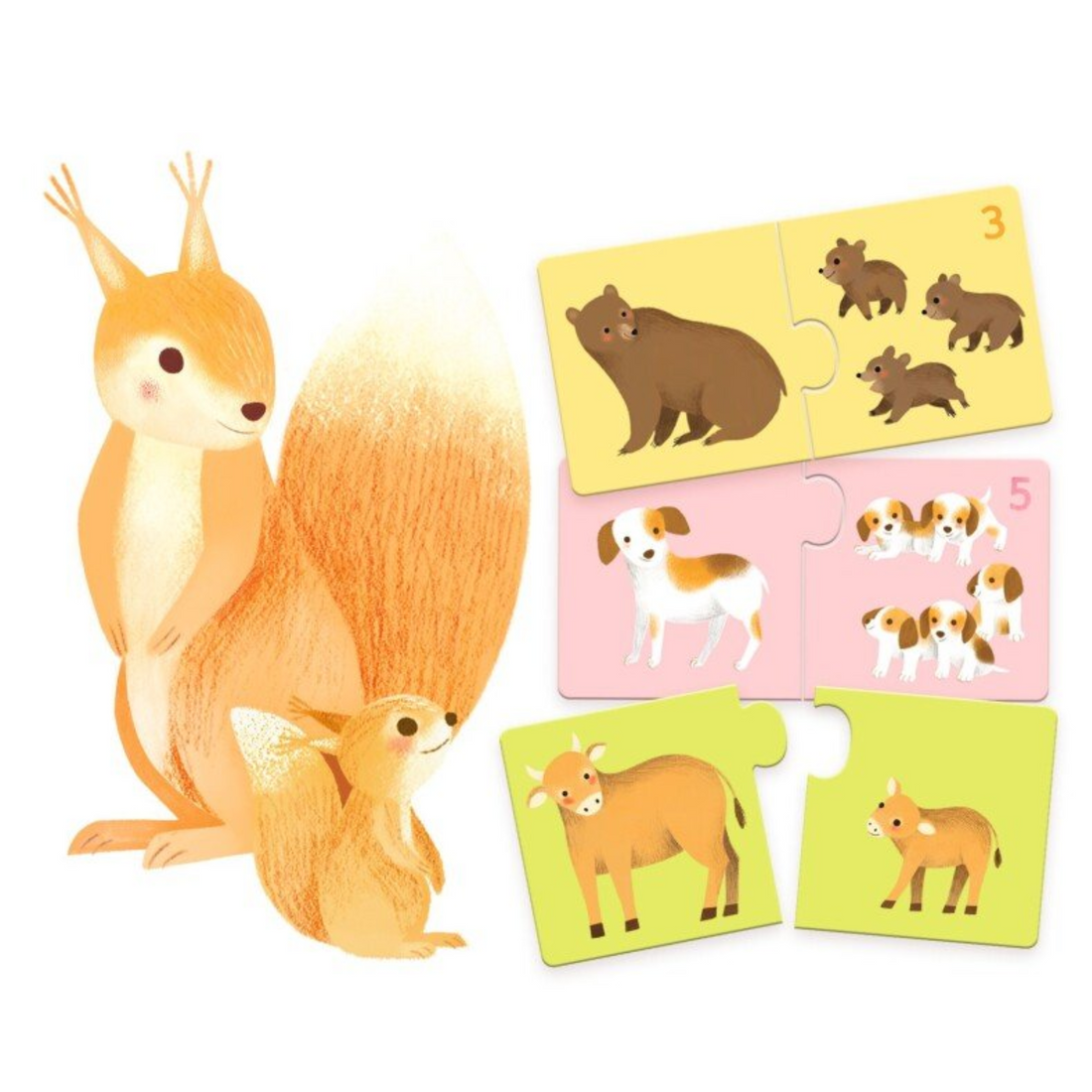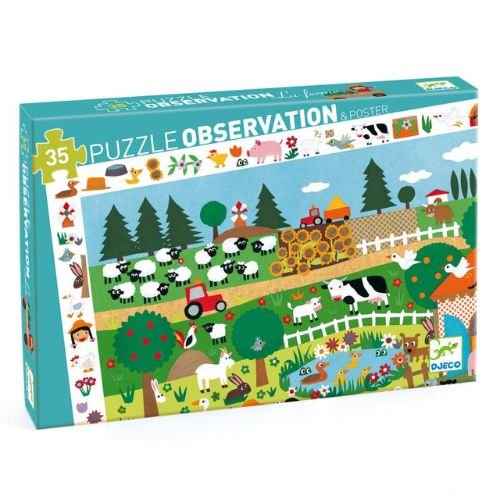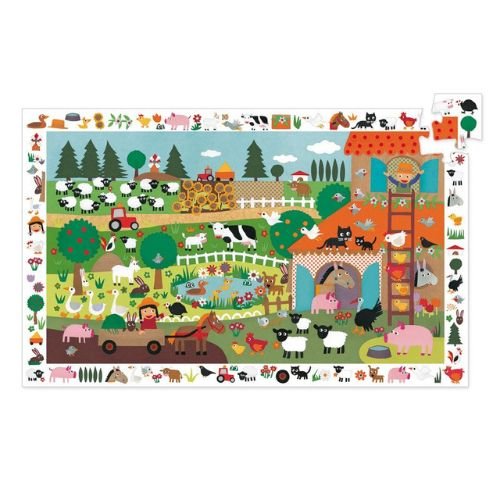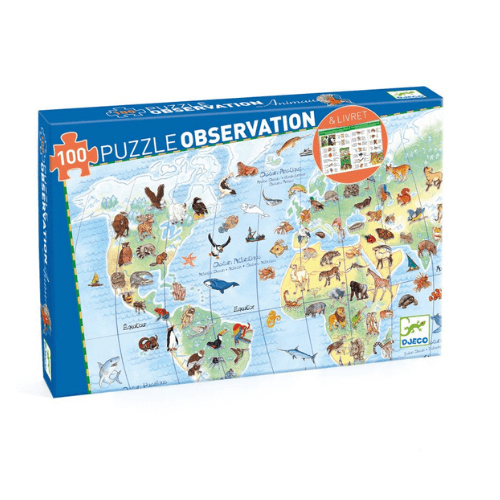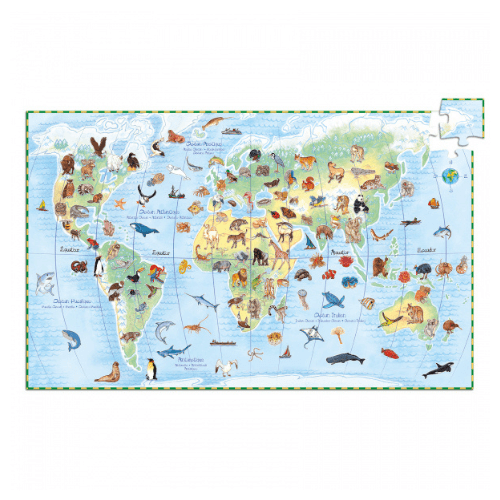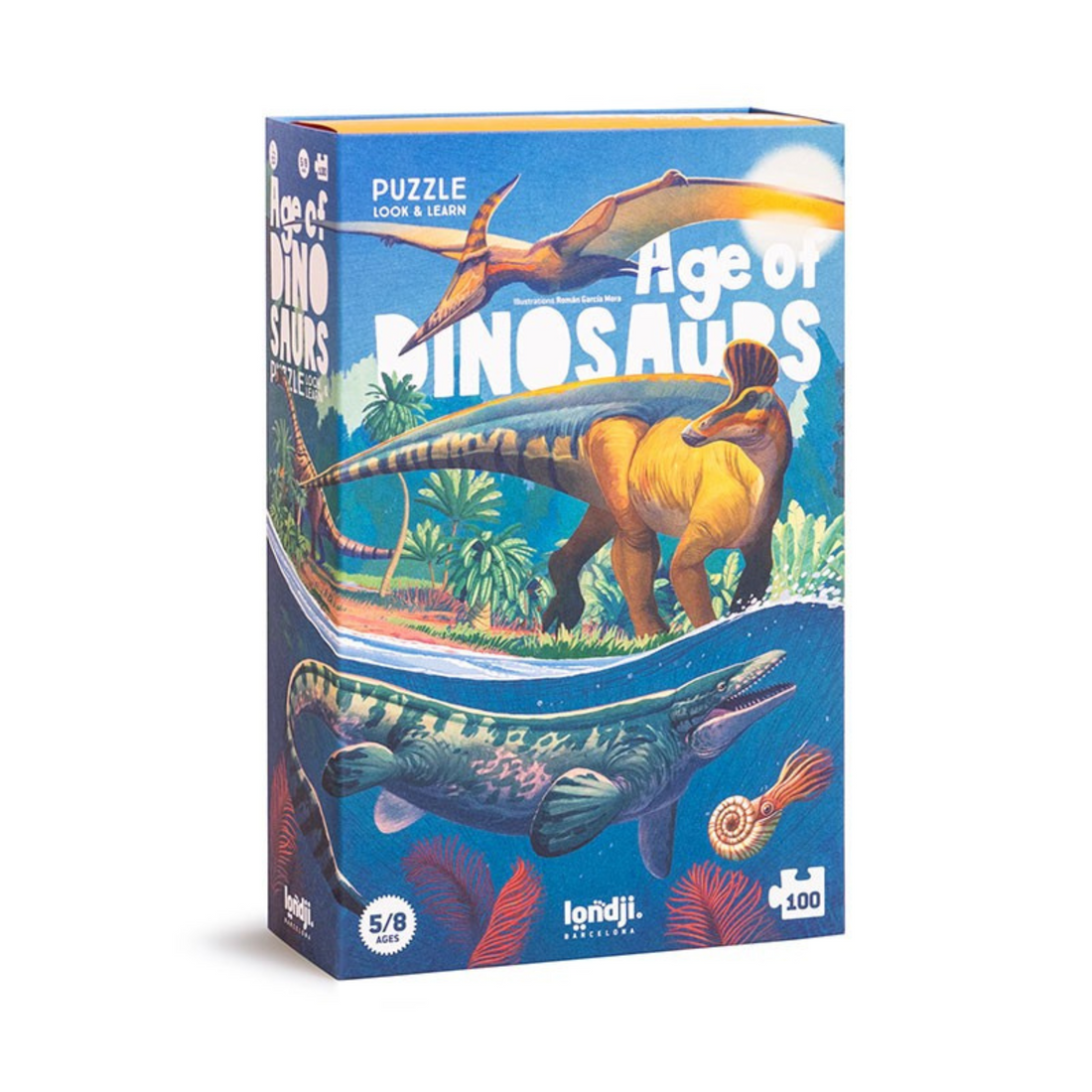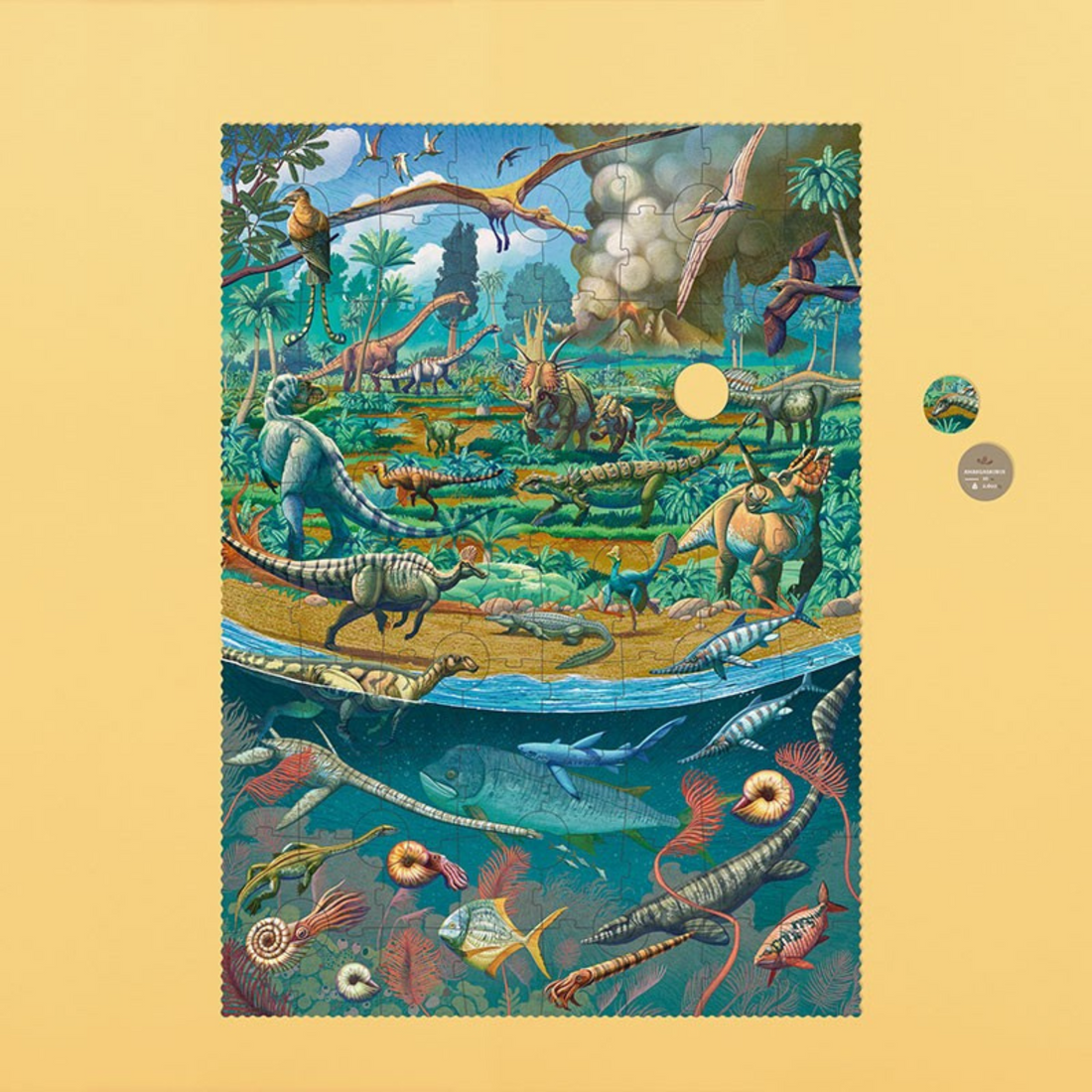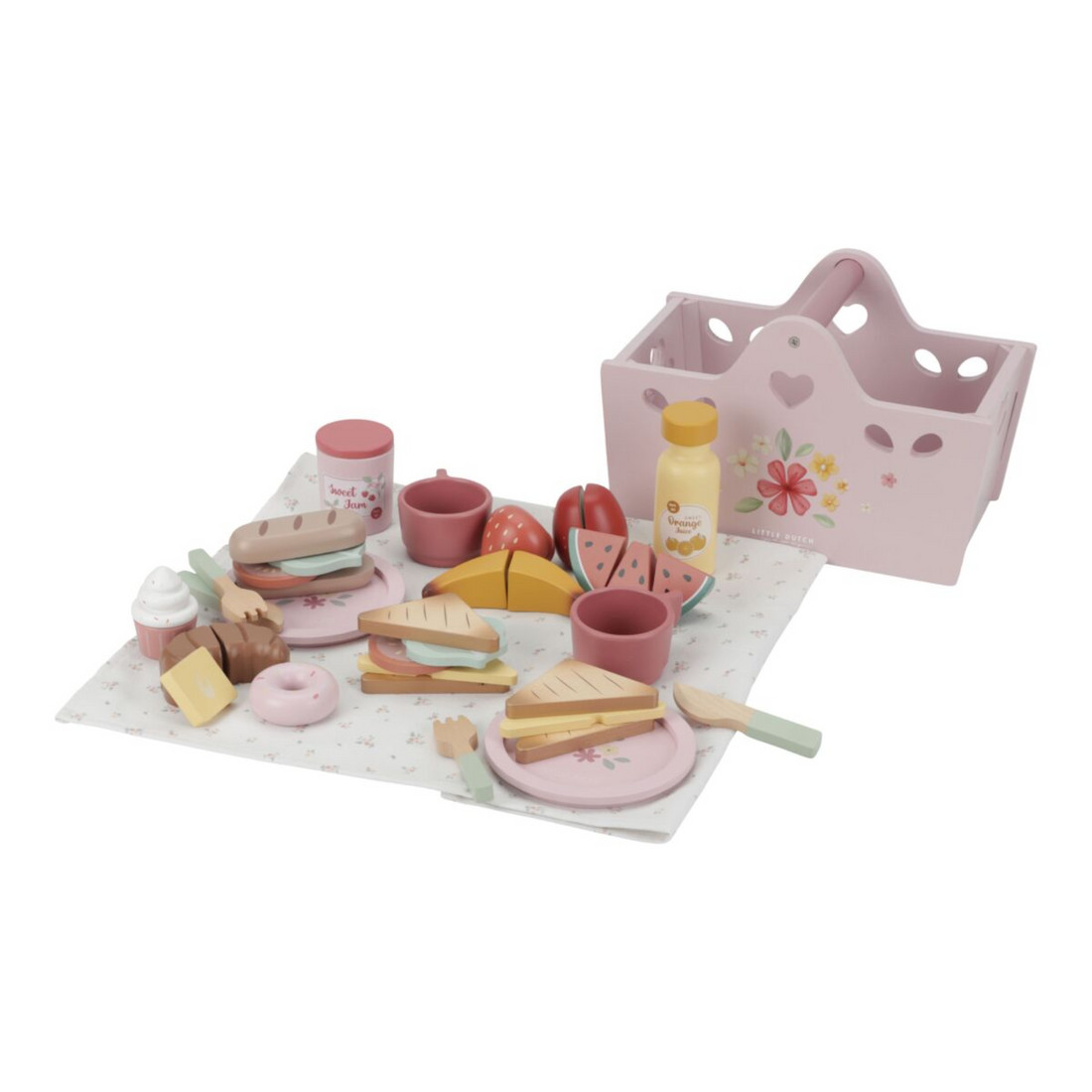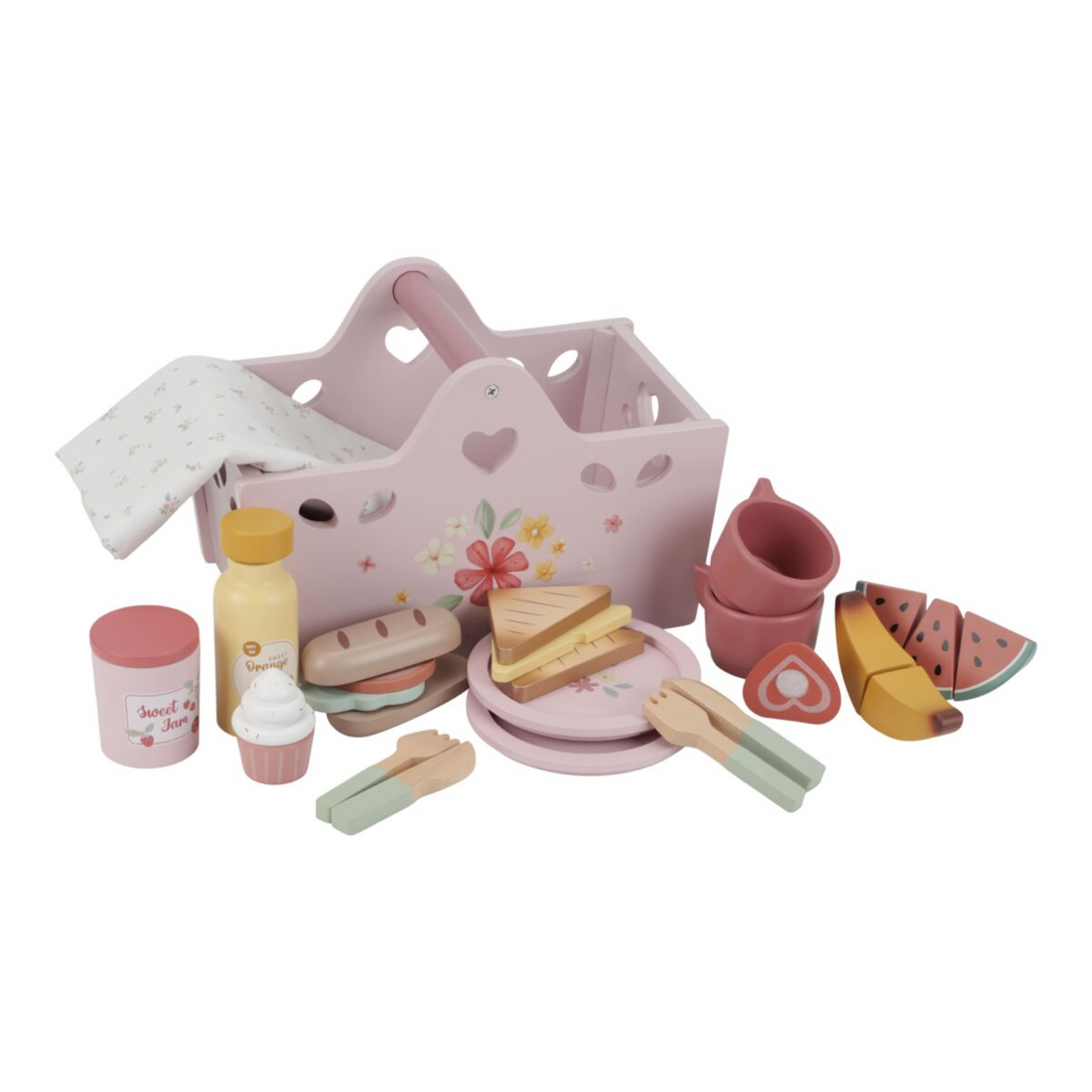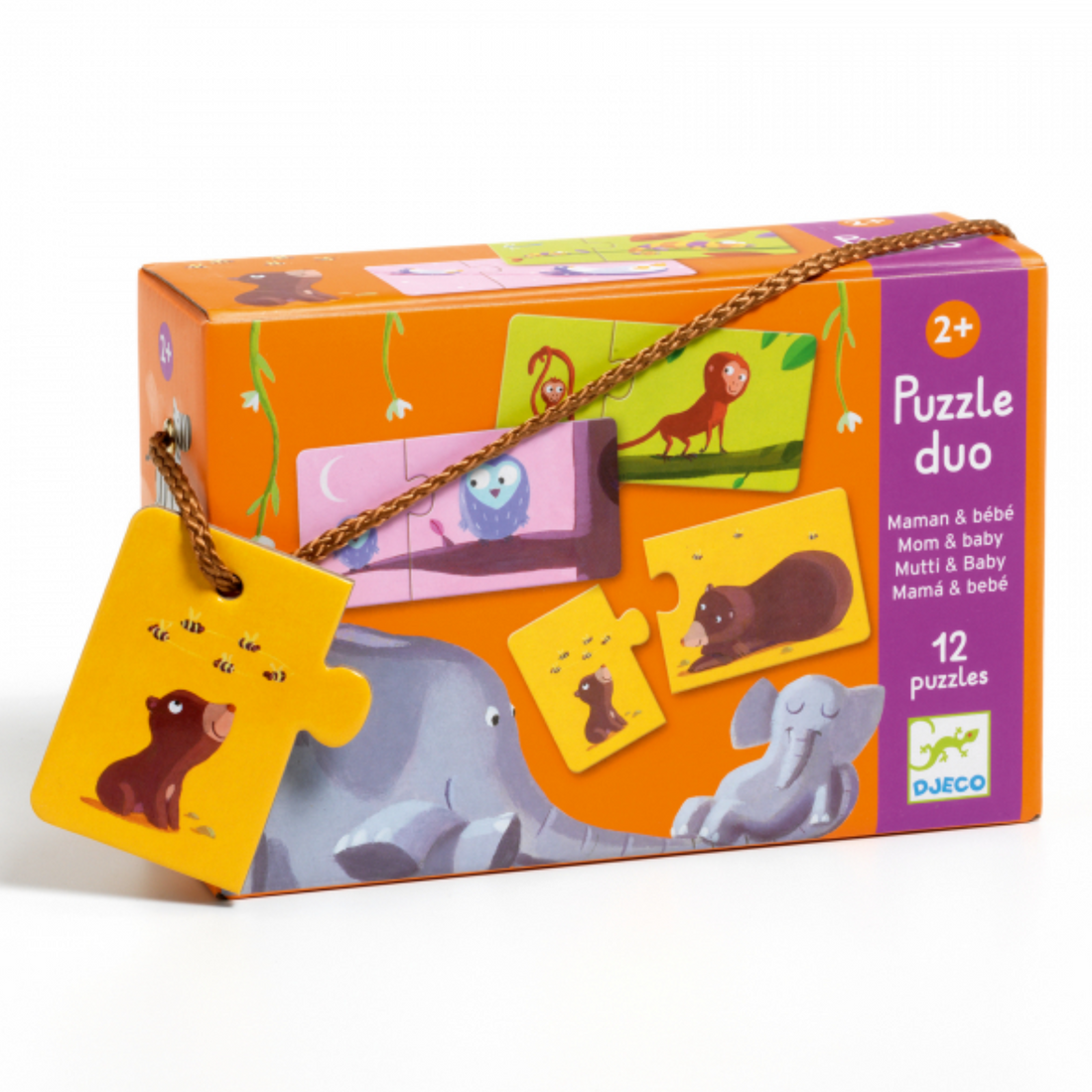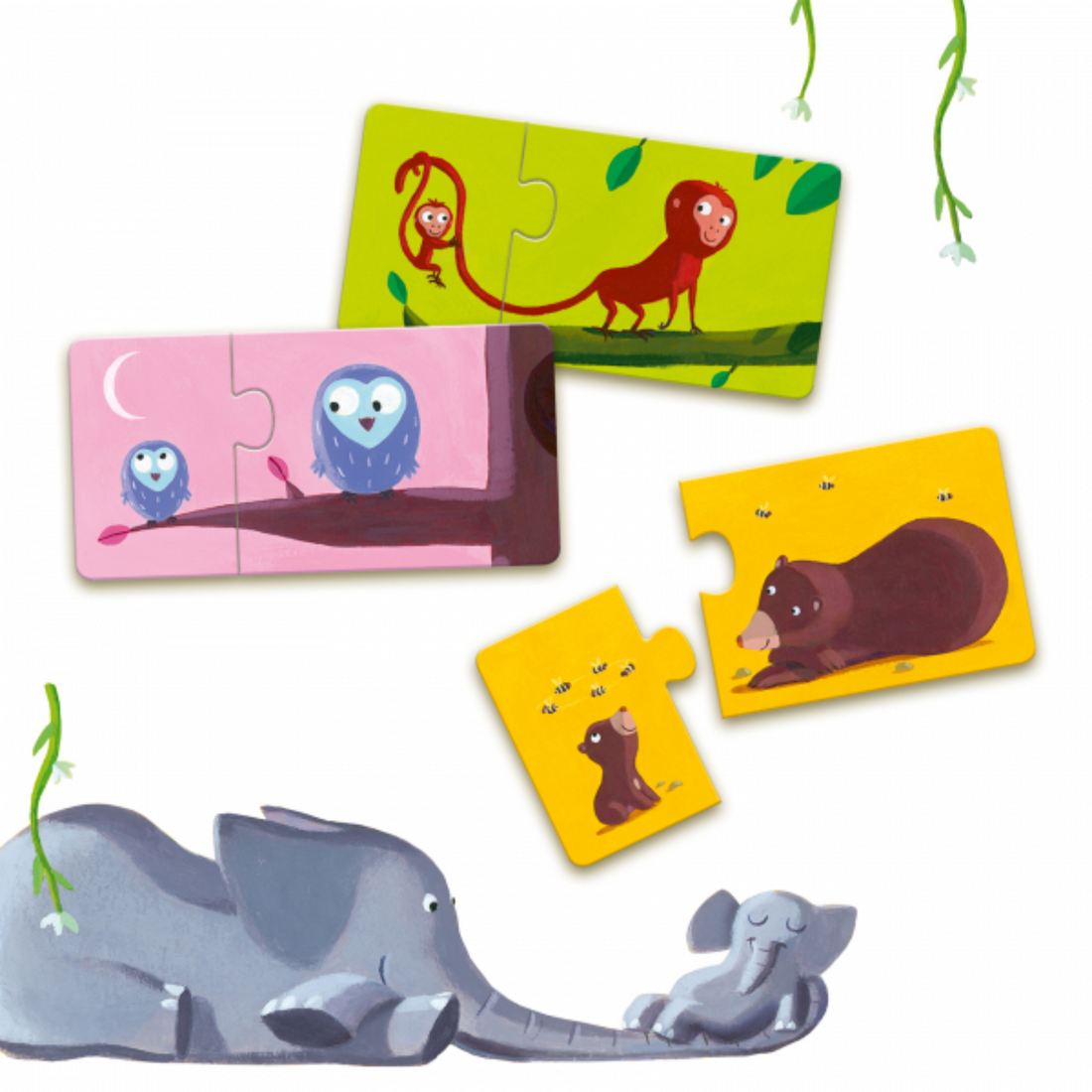Puzzles for children
Puzzles for children are probably the best choice for those who want to choose an attention-grabbing gift for their little ones. If you choose puzzles for children, which capture their favorite fairy-tale heroes or cartoon characters, you will hit the top ten! Although children are most inclined to simply put together the image they want to see, they will unconsciously develop logical and strategic thinking, memory and patience.
149 products
-
Little Dutch Magnetic game Jim & Rosa
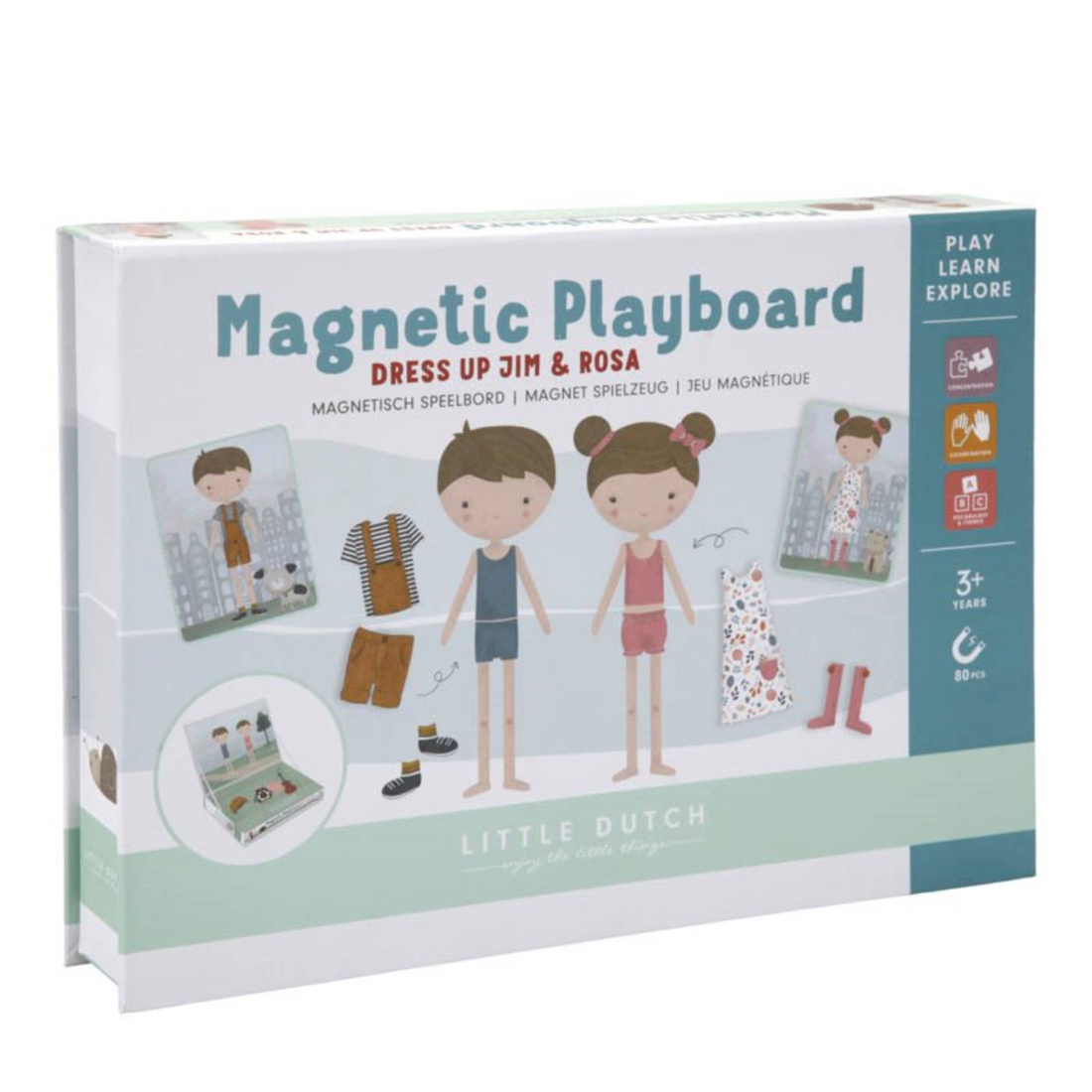
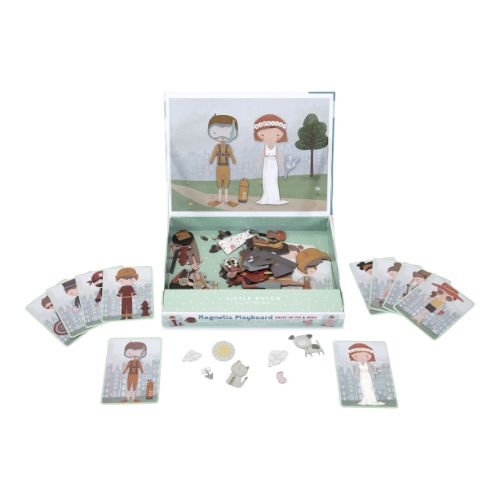 Vendor:Little Dutch Magnetic game Jim & RosaLittle Dutch
Vendor:Little Dutch Magnetic game Jim & RosaLittle Dutch- Regular price
-
€26,00 - Regular price
-
€26,00 - Sale price
-
€26,00
-
Djeco puzzle - In the Jungle
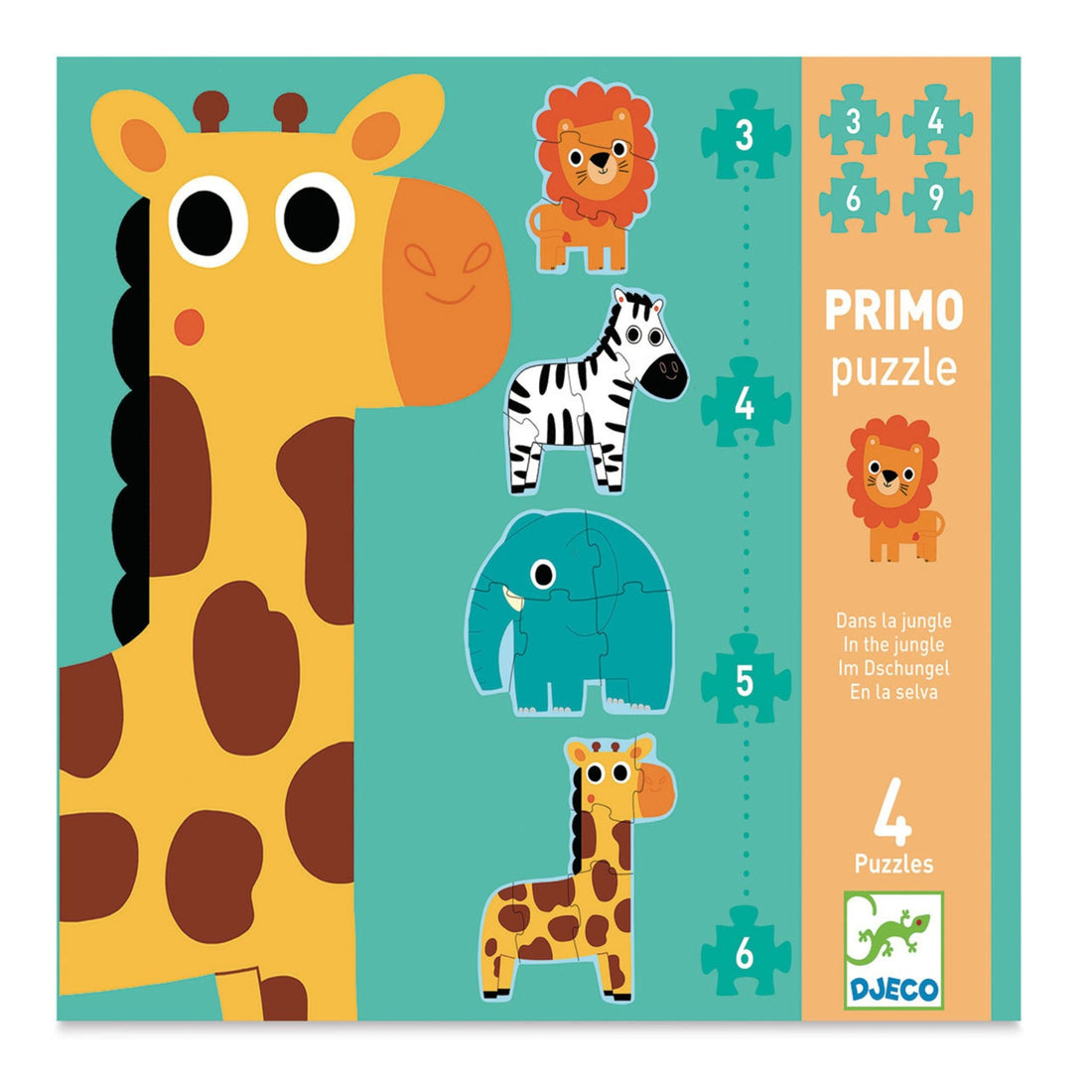
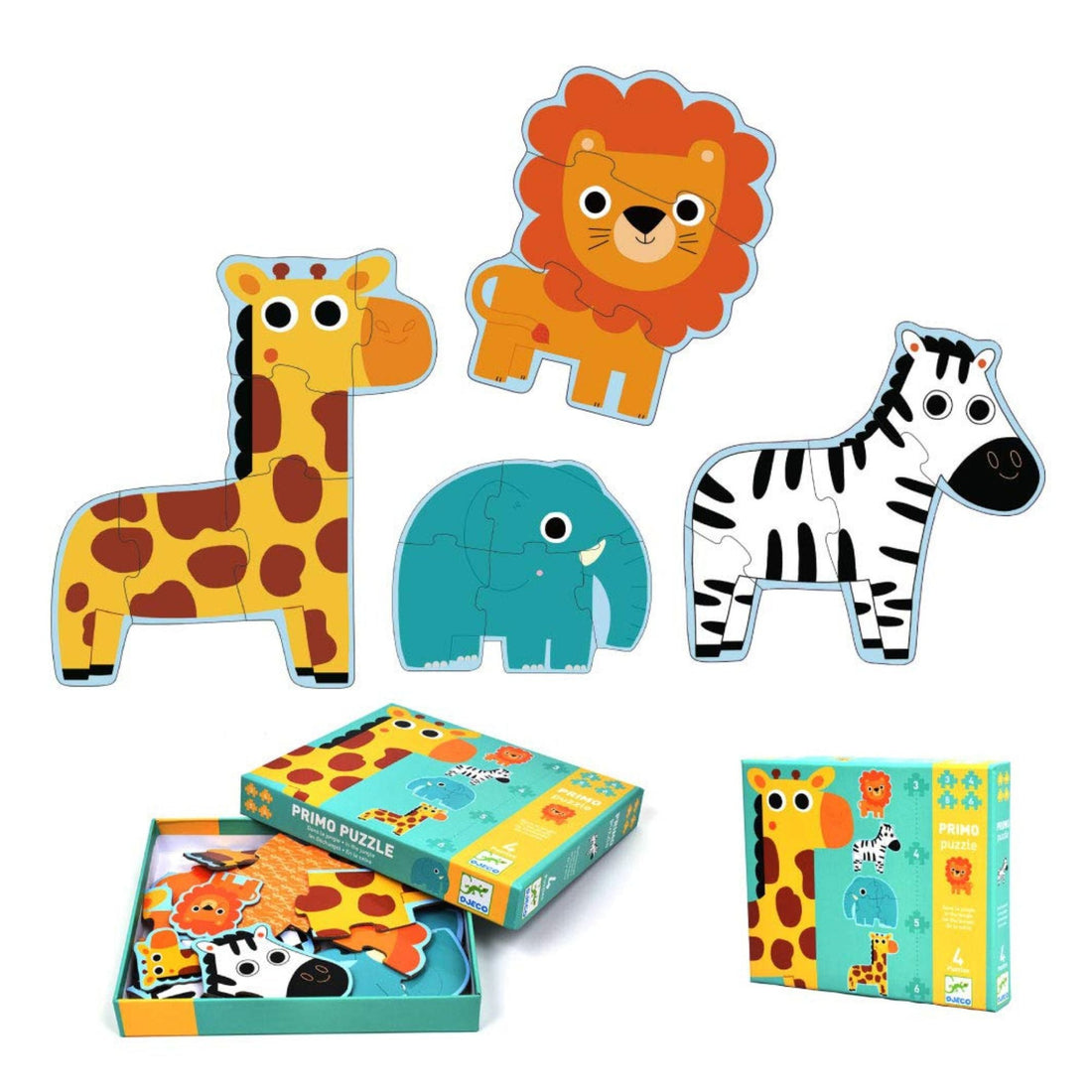 Vendor:Djeco puzzle - In the JungleDjeco
Vendor:Djeco puzzle - In the JungleDjeco- Regular price
-
€12,00 - Regular price
-
€15,00 - Sale price
-
€12,00
-
Djeco puzzle - Honoré & Friends
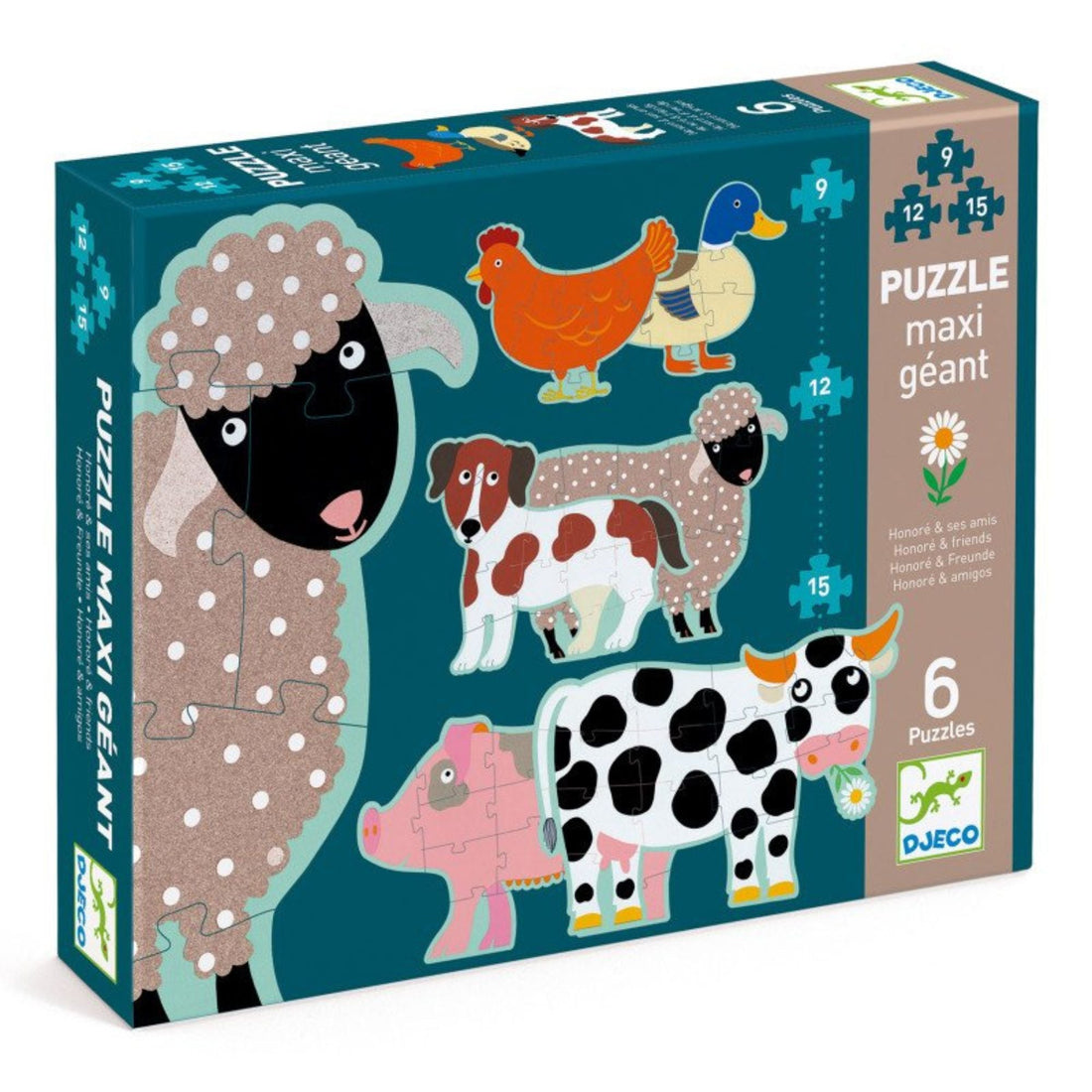
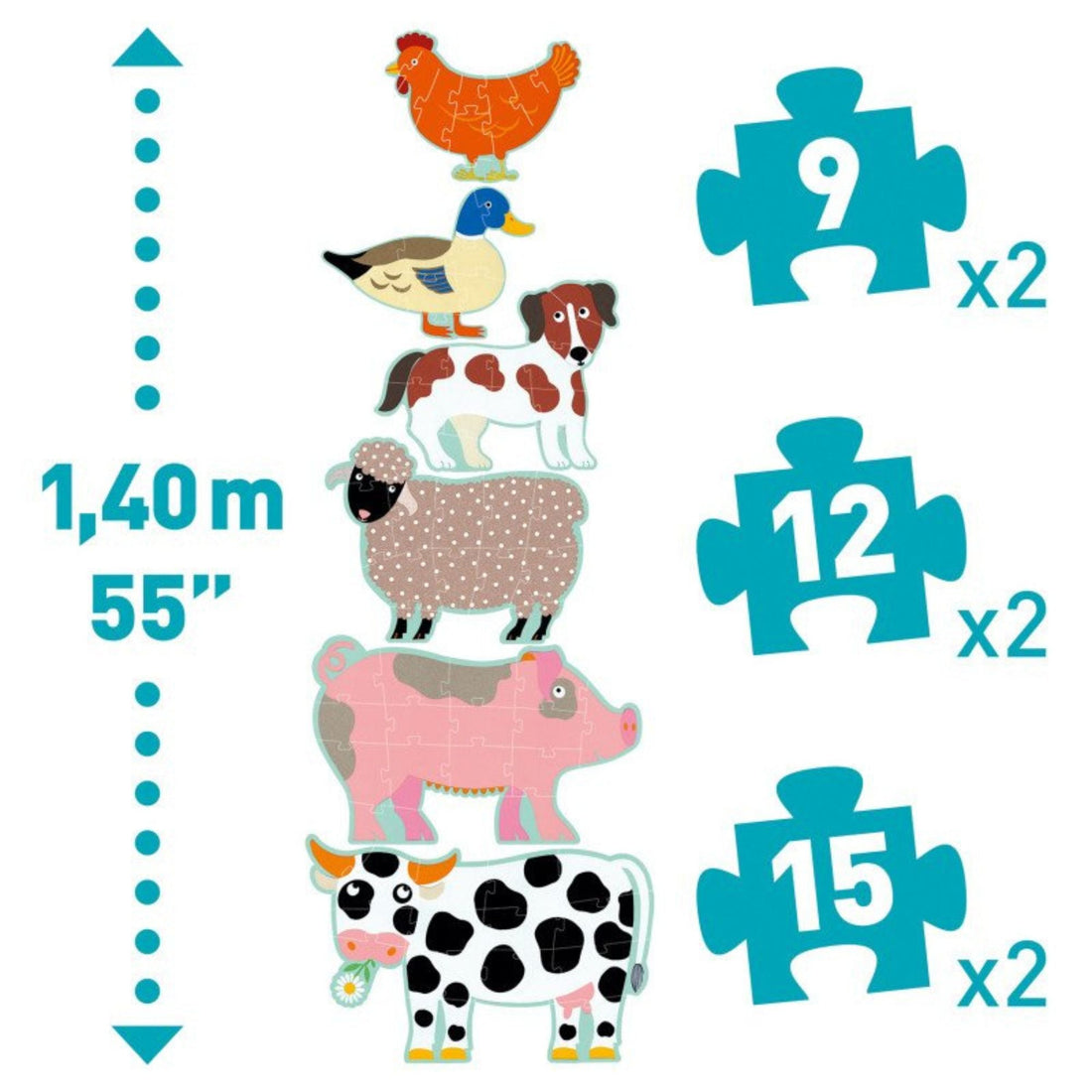 Vendor:Djeco puzzle - Honoré & FriendsDjeco
Vendor:Djeco puzzle - Honoré & FriendsDjeco- Regular price
-
€22,40 - Regular price
-
€28,00 - Sale price
-
€22,40
-
Puzzle 4 in 1 Little Farm
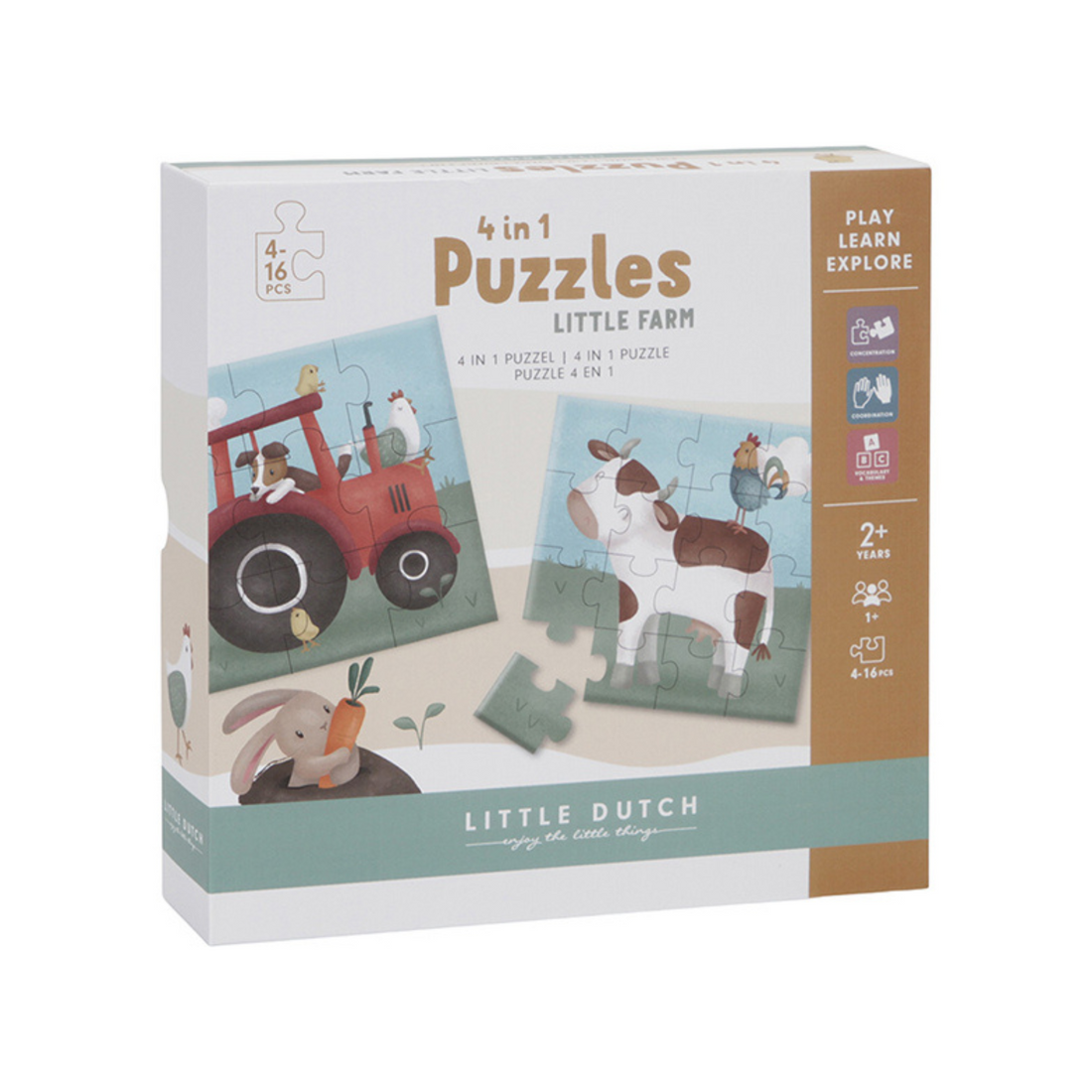
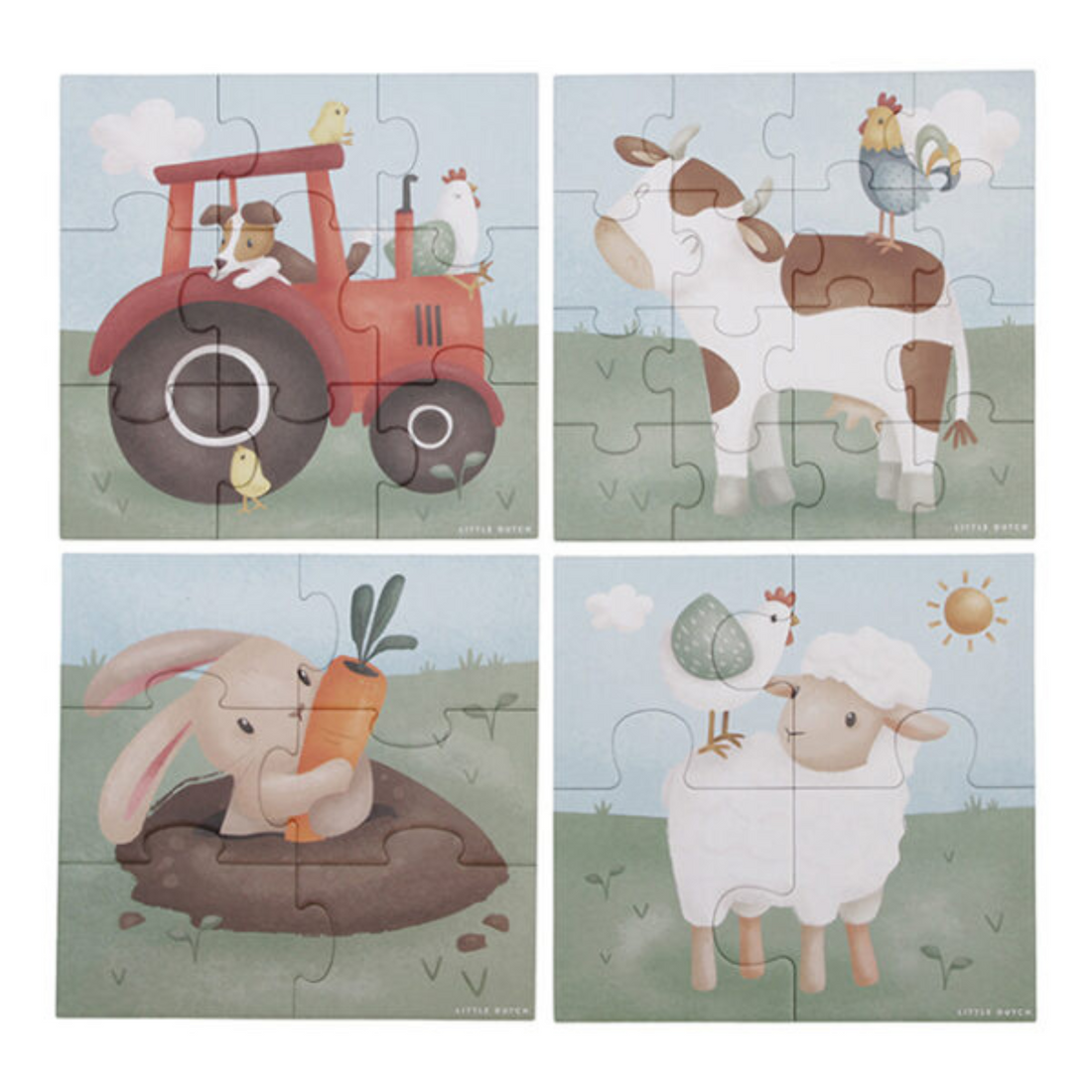 Vendor:Puzzle 4 in 1 Little FarmLittle Dutch
Vendor:Puzzle 4 in 1 Little FarmLittle Dutch- Regular price
-
€19,00 - Regular price
-
€19,00 - Sale price
-
€19,00
-
Londji Puzzle Discover The Treasure
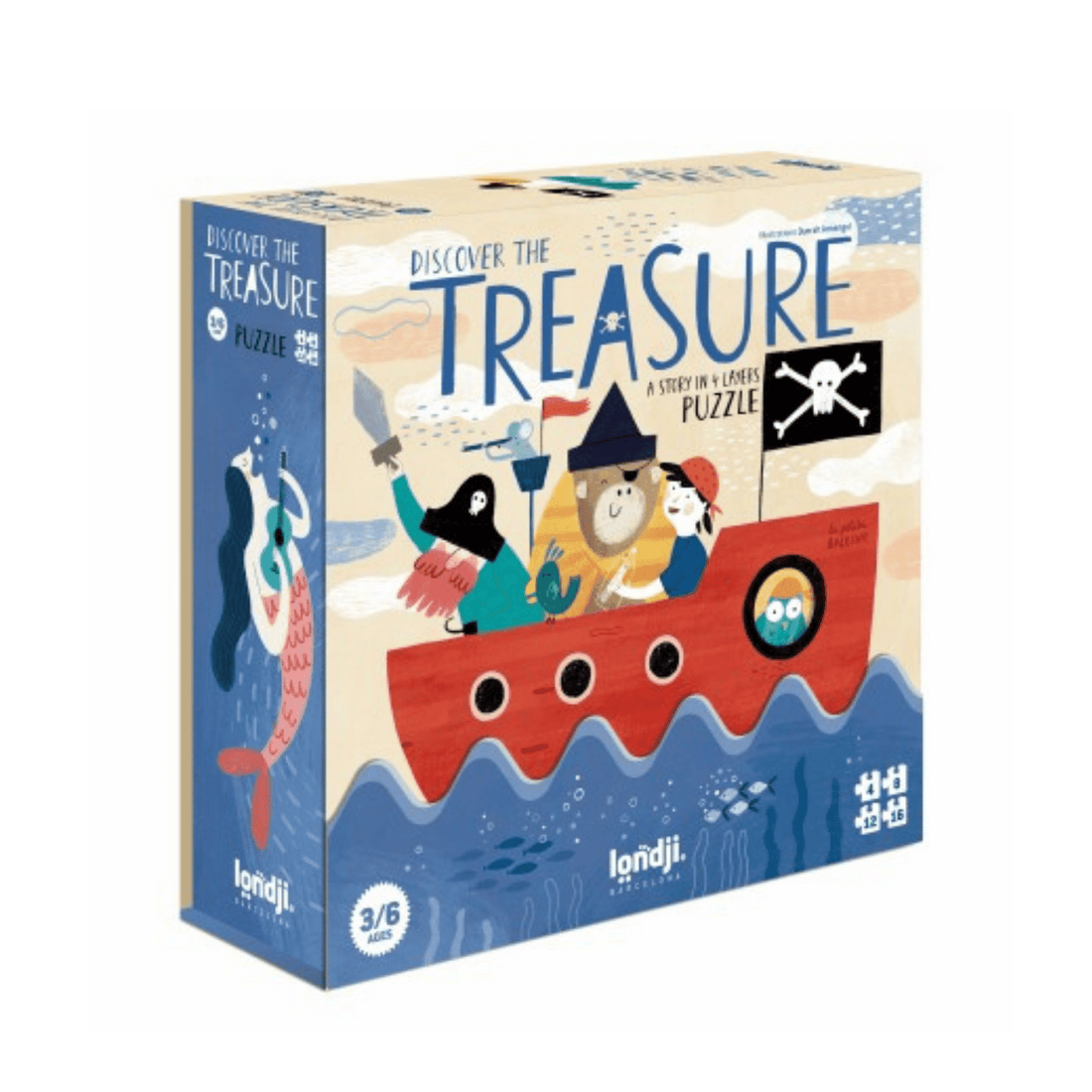
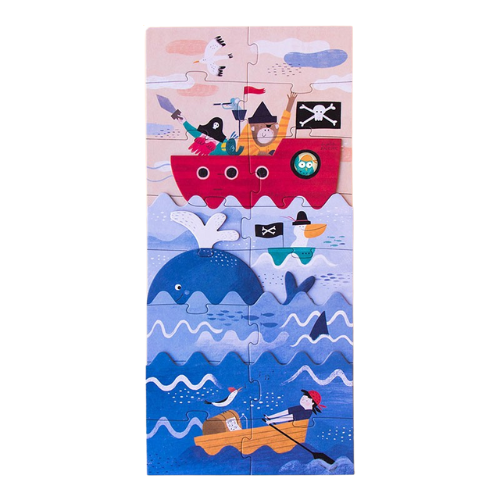 Vendor:Londji Puzzle Discover The TreasureLondji
Vendor:Londji Puzzle Discover The TreasureLondji- Regular price
-
€29,00 - Regular price
-
€29,00 - Sale price
-
€29,00
-
Djeco puzzle - Dinner's ready!
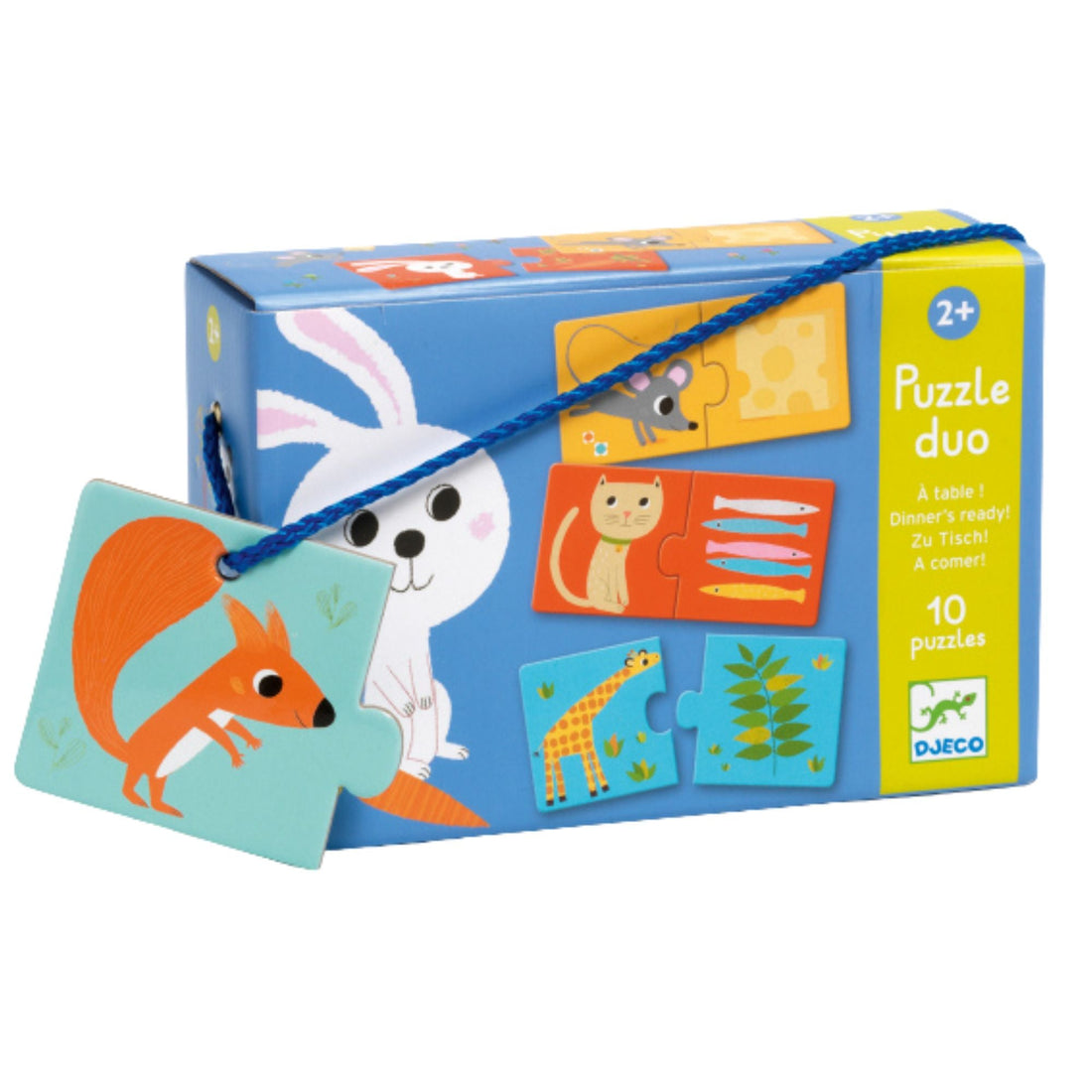
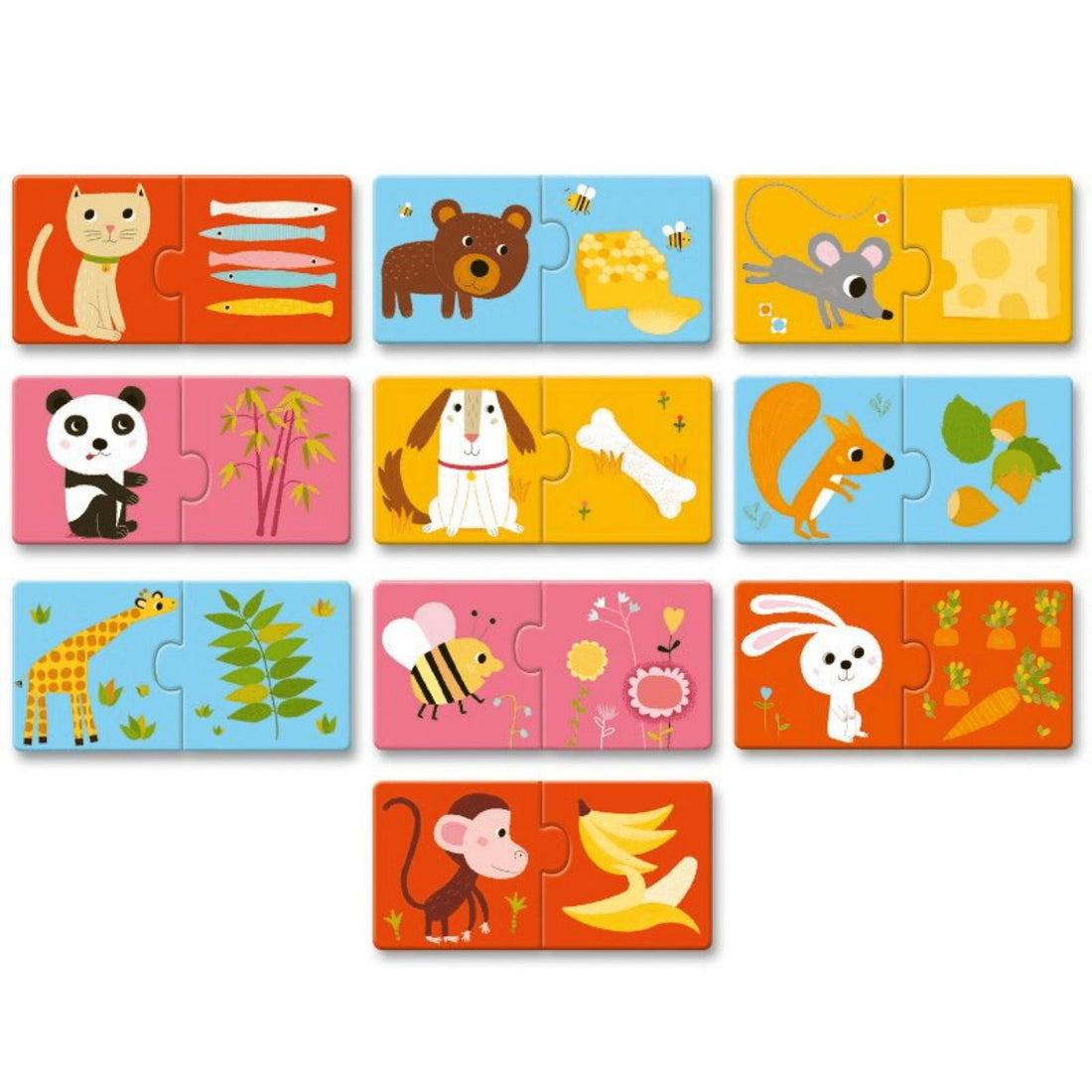 Vendor:Djeco puzzle - Dinner's ready!Djeco
Vendor:Djeco puzzle - Dinner's ready!Djeco- Regular price
-
€9,60 - Regular price
-
€12,00 - Sale price
-
€9,60
-
Magnetic game Forest Friends
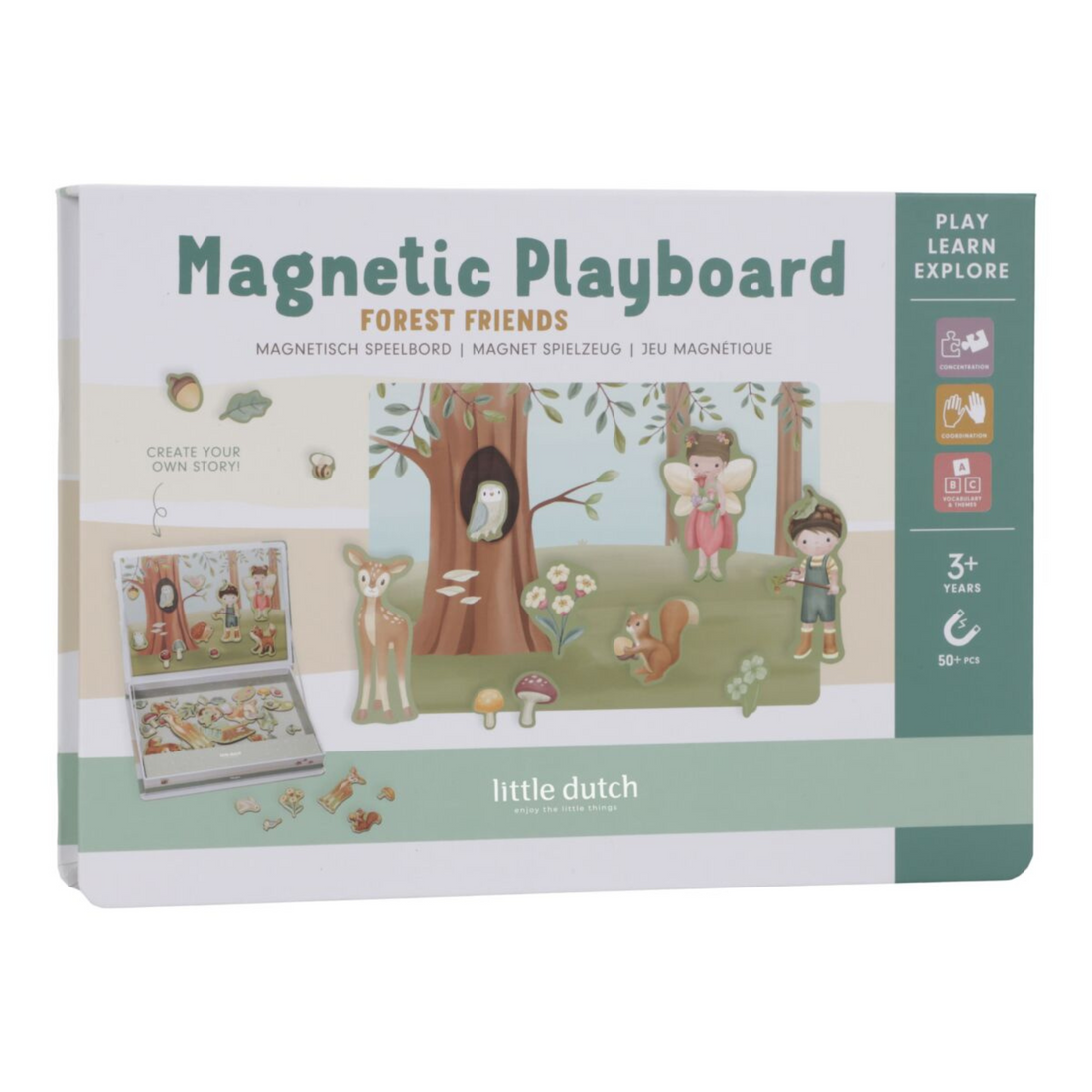
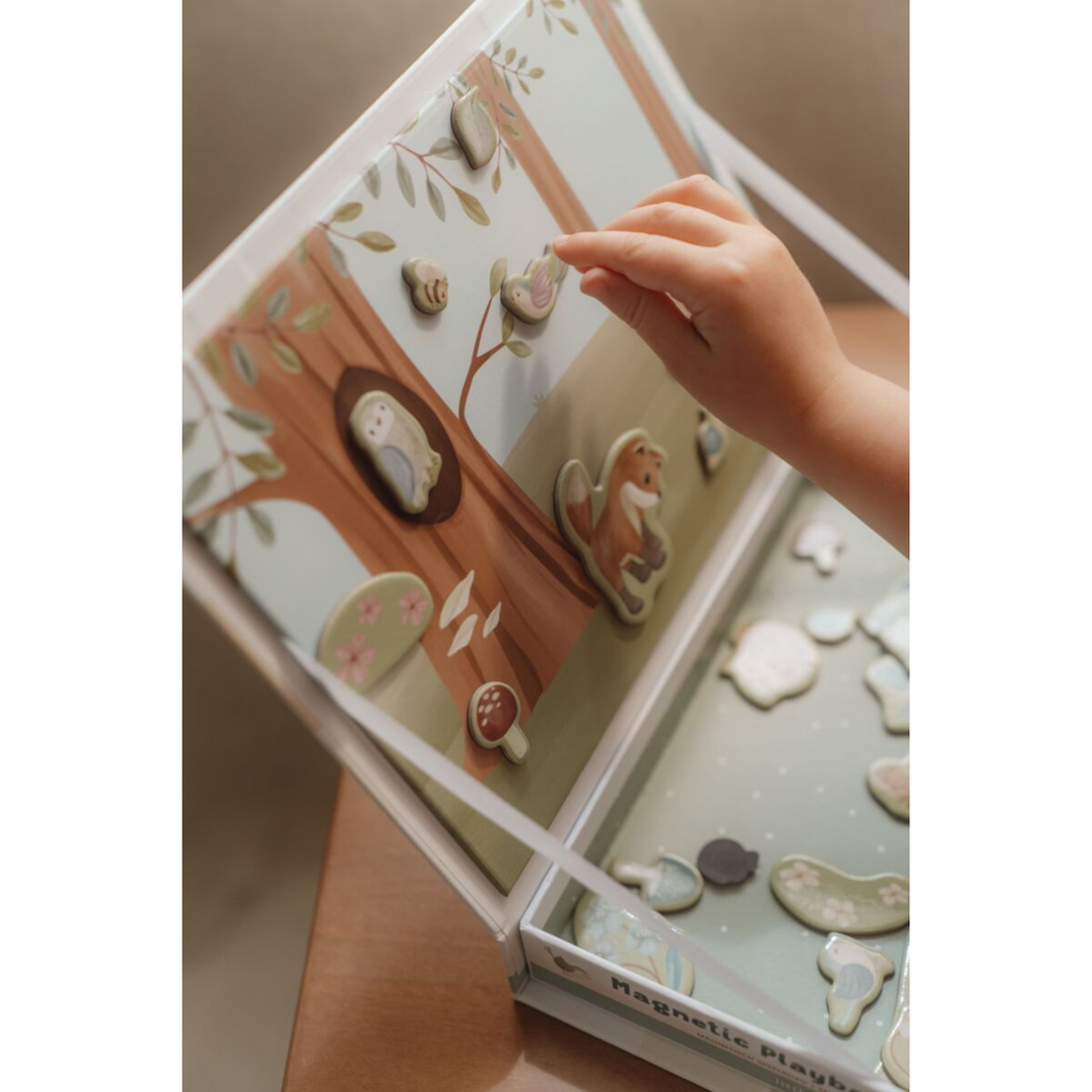 Vendor:Magnetic game Forest FriendsLittle Dutch
Vendor:Magnetic game Forest FriendsLittle Dutch- Regular price
-
€26,00 - Regular price
-
€26,00 - Sale price
-
€26,00
-
Djeco puzzle - Articulo Vehicles
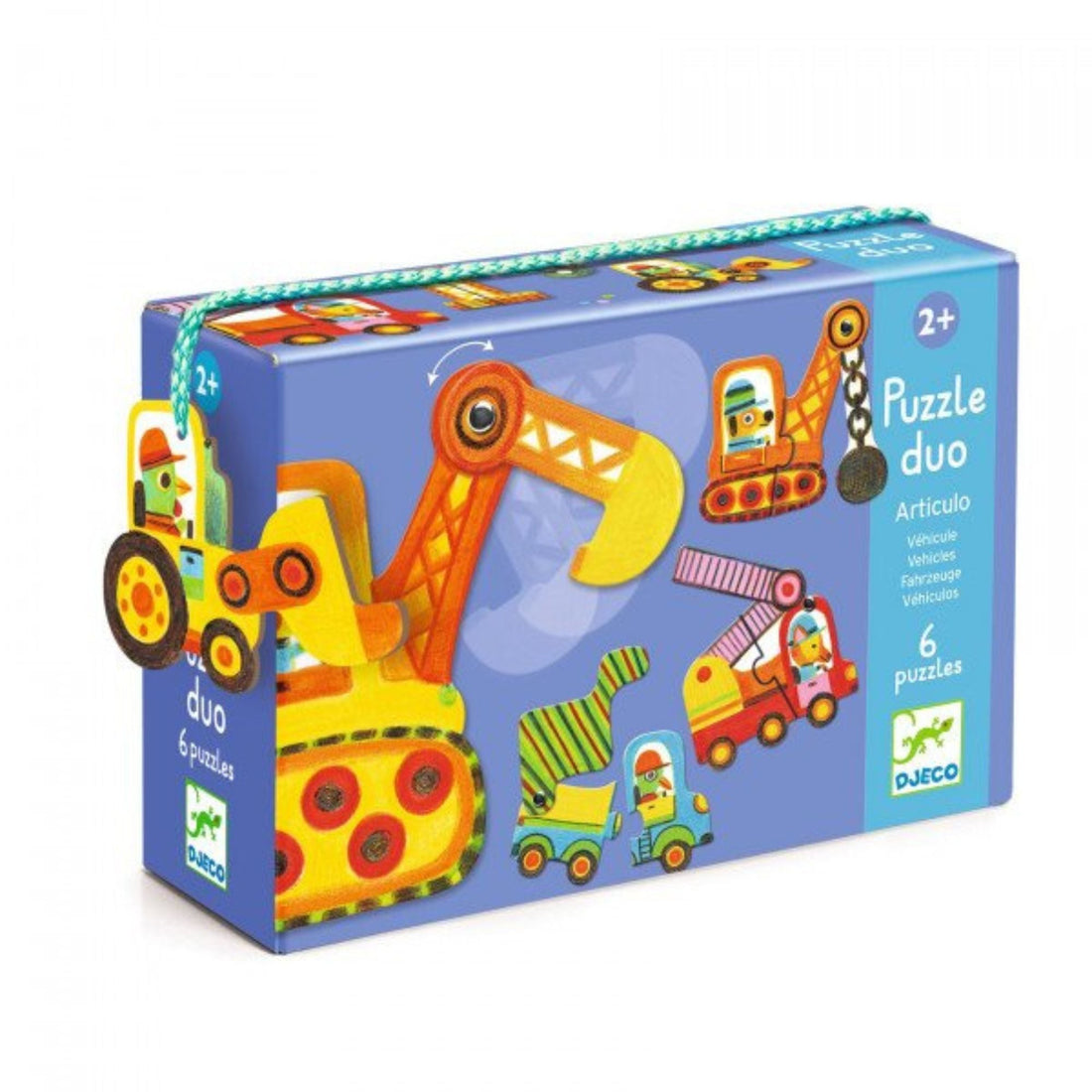
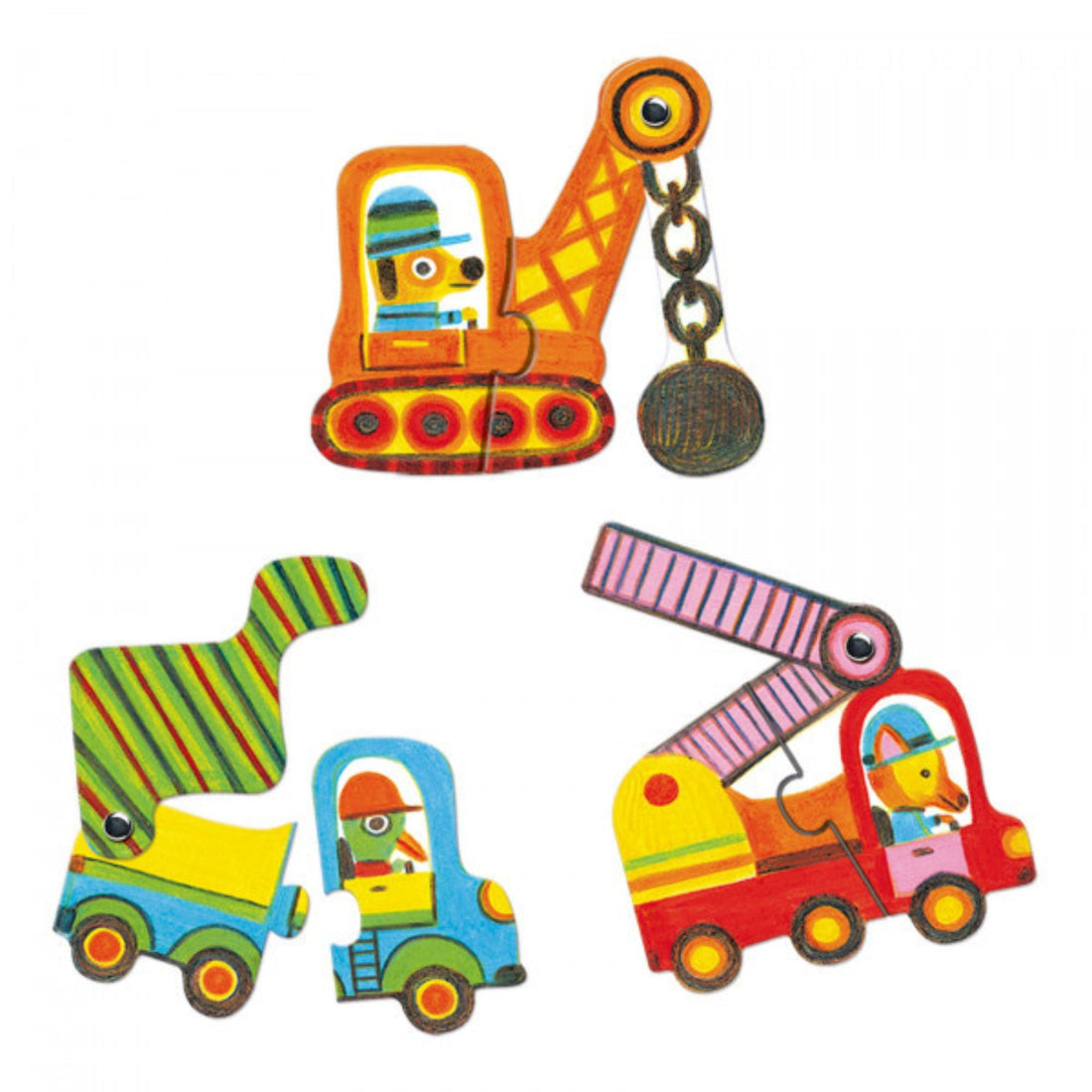 Vendor:Djeco puzzle - Articulo VehiclesDjeco
Vendor:Djeco puzzle - Articulo VehiclesDjeco- Regular price
-
€9,60 - Regular price
-
€12,00 - Sale price
-
€9,60
-
Puzzle 6 in 1 Little Farm
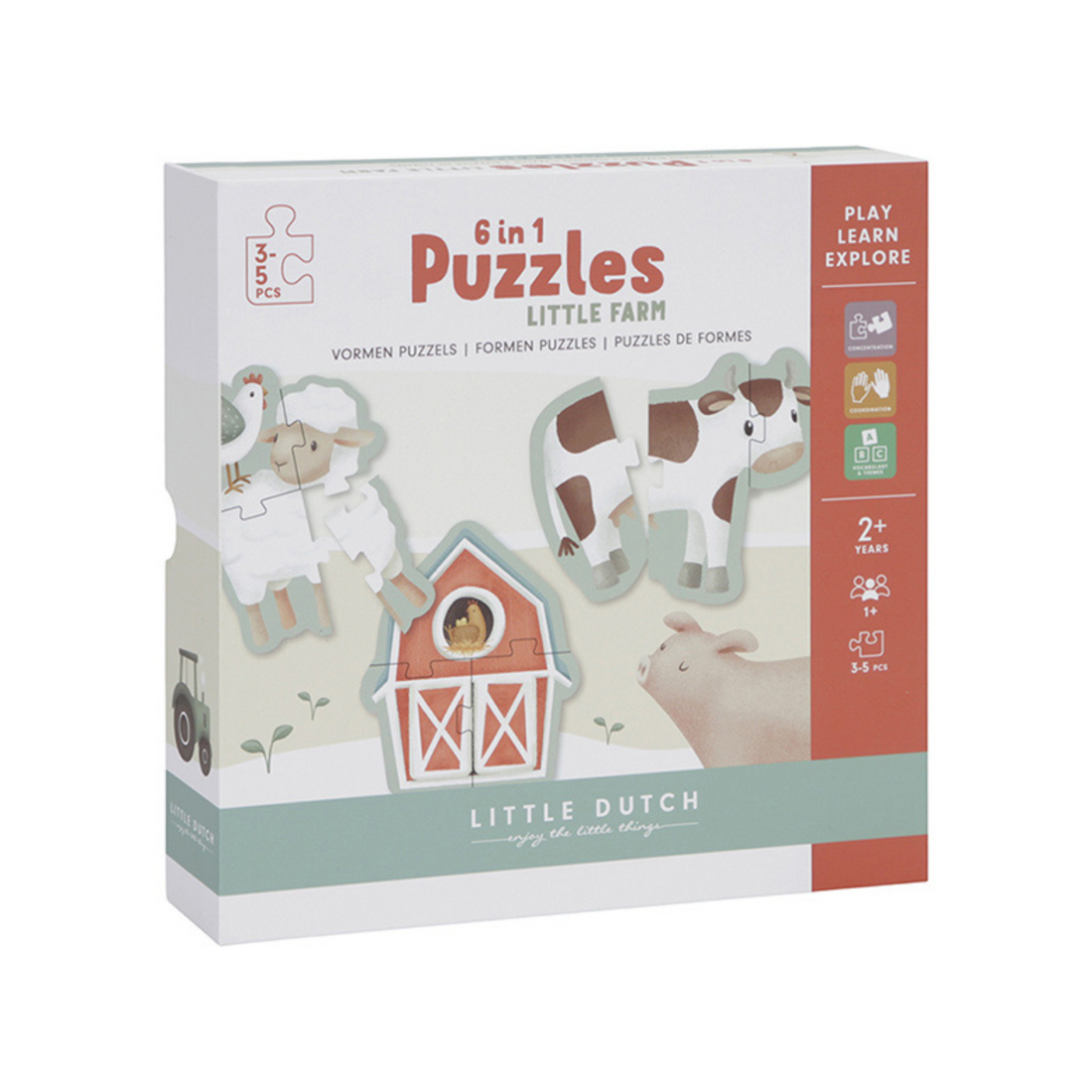
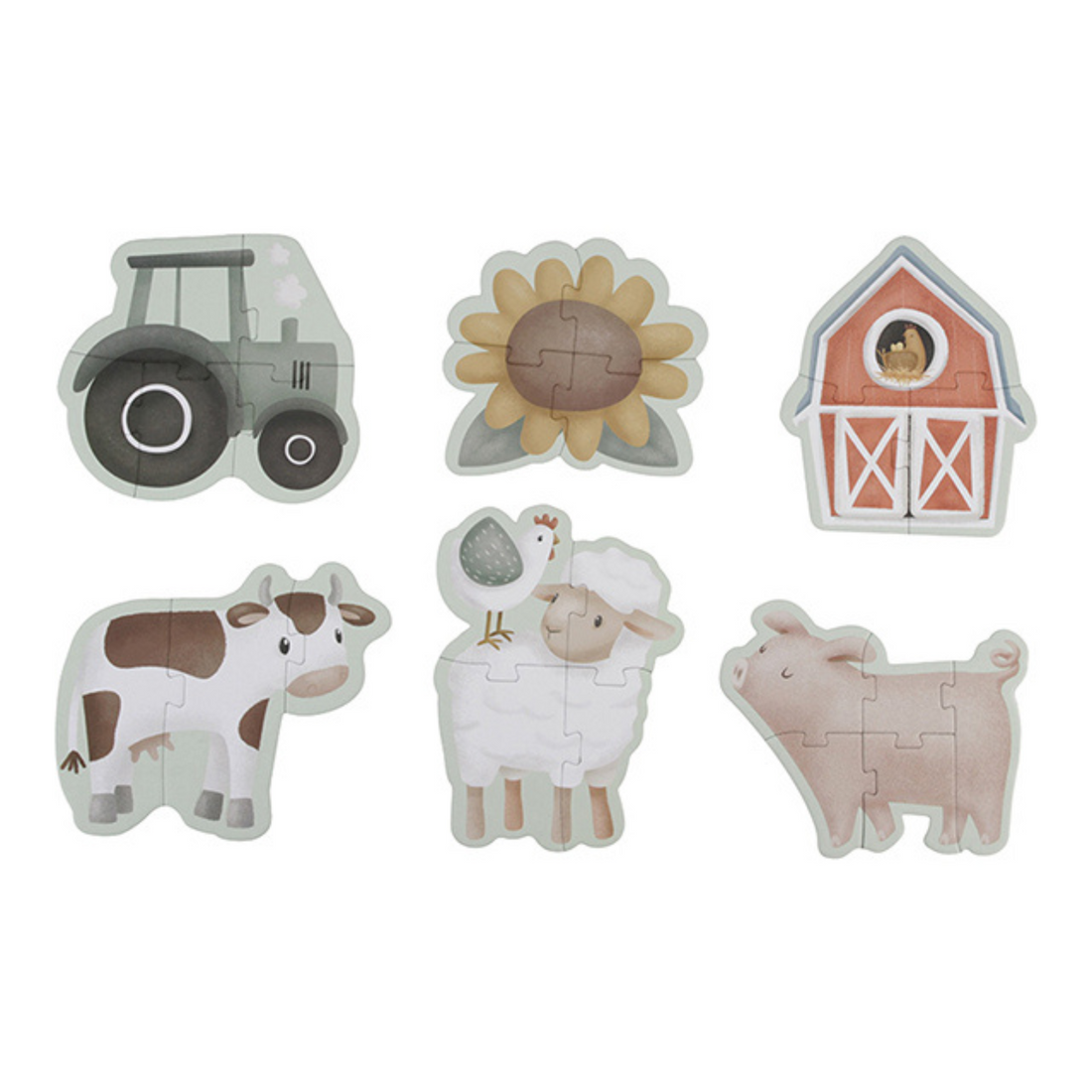 Vendor:Puzzle 6 in 1 Little FarmLittle Dutch
Vendor:Puzzle 6 in 1 Little FarmLittle Dutch- Regular price
-
€19,00 - Regular price
-
€19,00 - Sale price
-
€19,00
-
Djeco puzzle - In the Forest
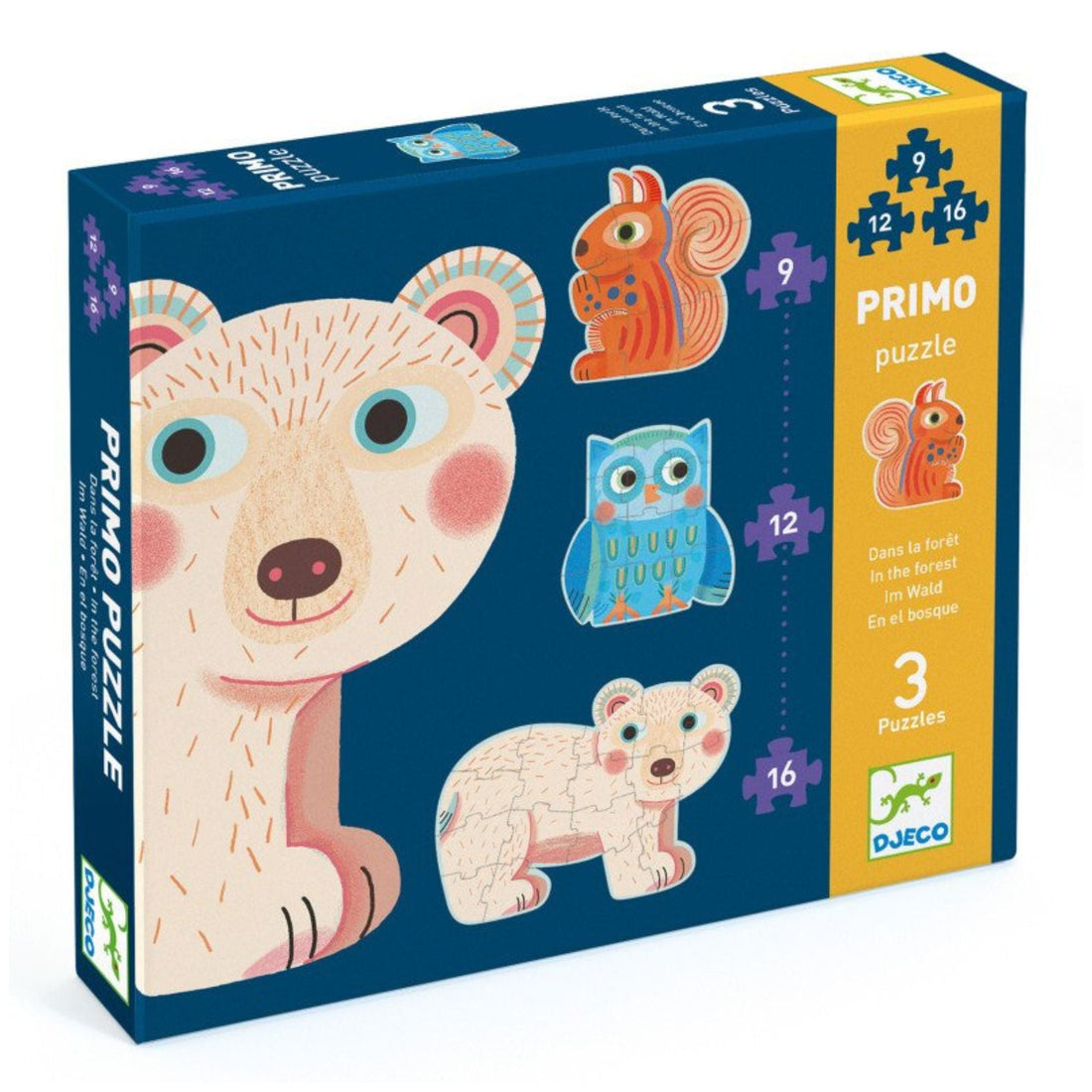
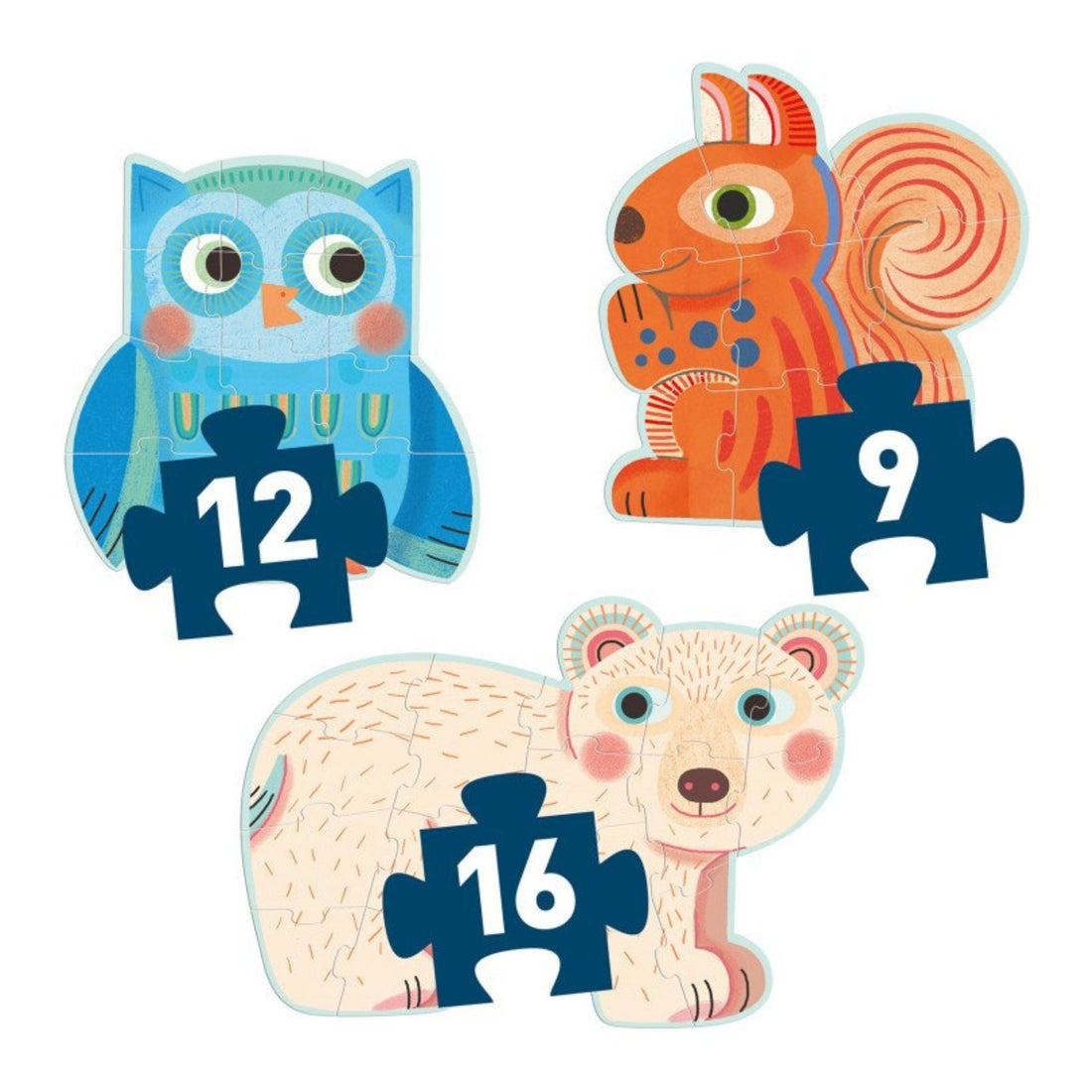 Vendor:Djeco puzzle - In the ForestDjeco
Vendor:Djeco puzzle - In the ForestDjeco- Regular price
-
€12,00 - Regular price
-
€15,00 - Sale price
-
€12,00
-
Magnetic game Little Farm
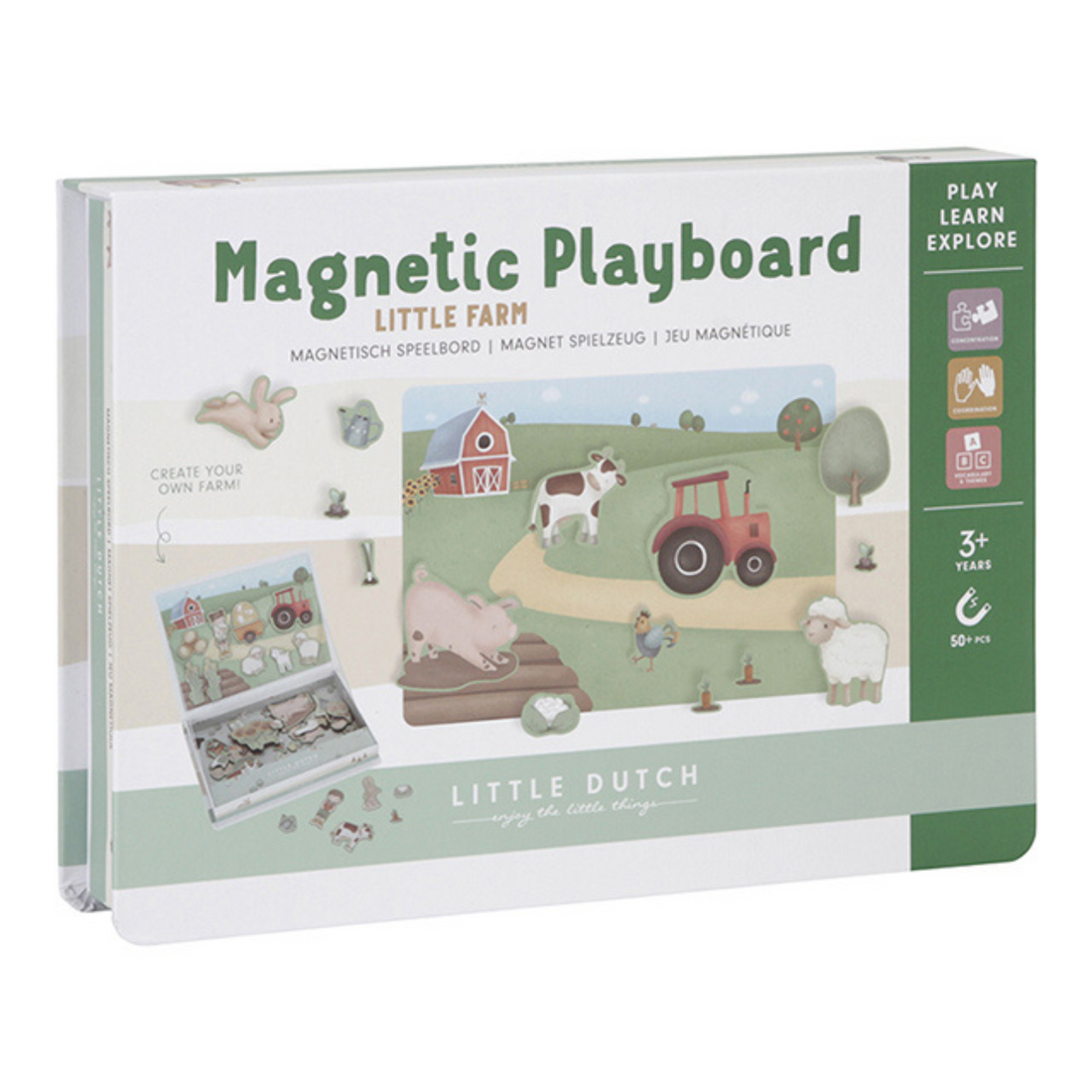
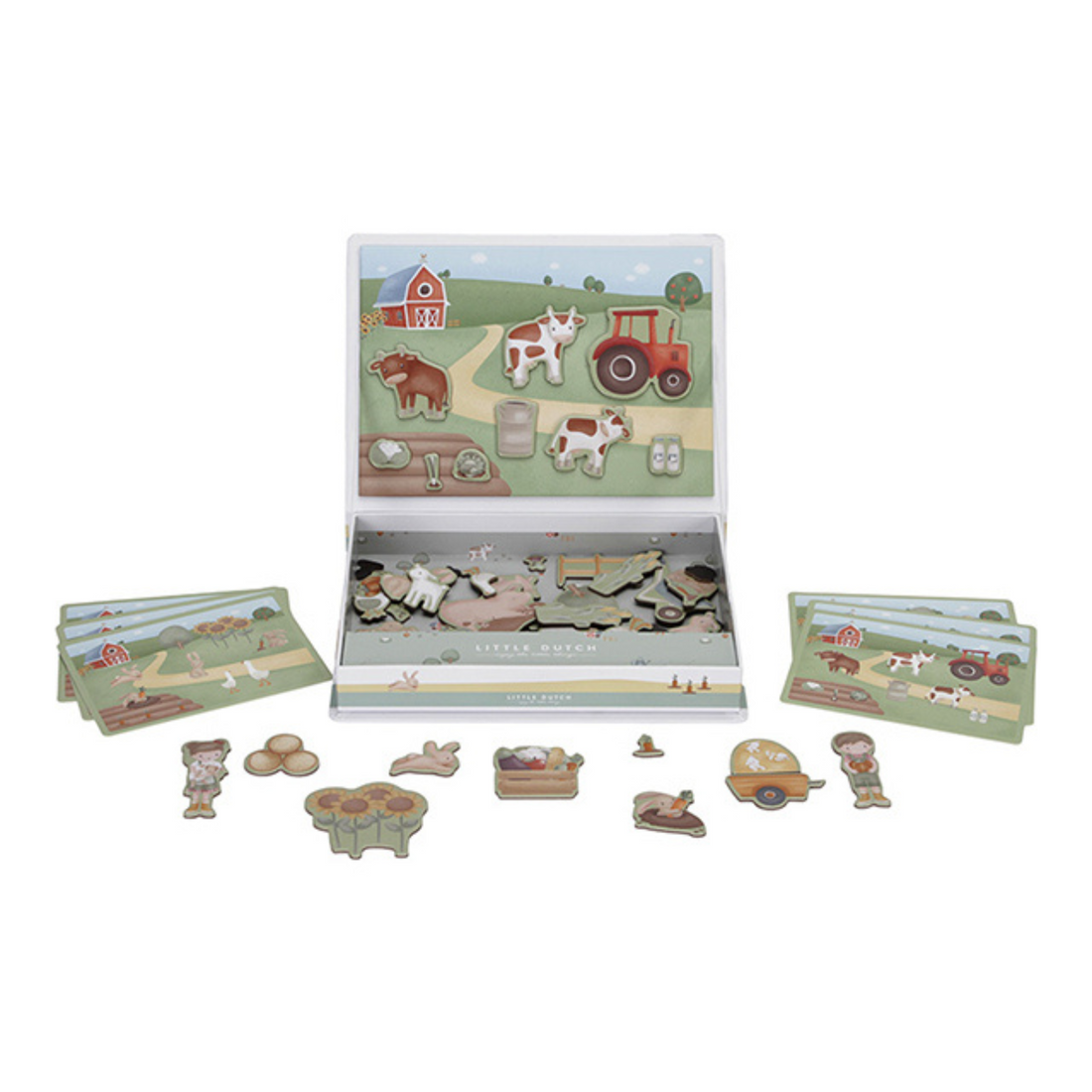 Vendor:Magnetic game Little FarmLittle Dutch
Vendor:Magnetic game Little FarmLittle Dutch- Regular price
-
€26,00 - Regular price
-
€26,00 - Sale price
-
€26,00
-
Londji Puzzle My Big Blue Puzzle
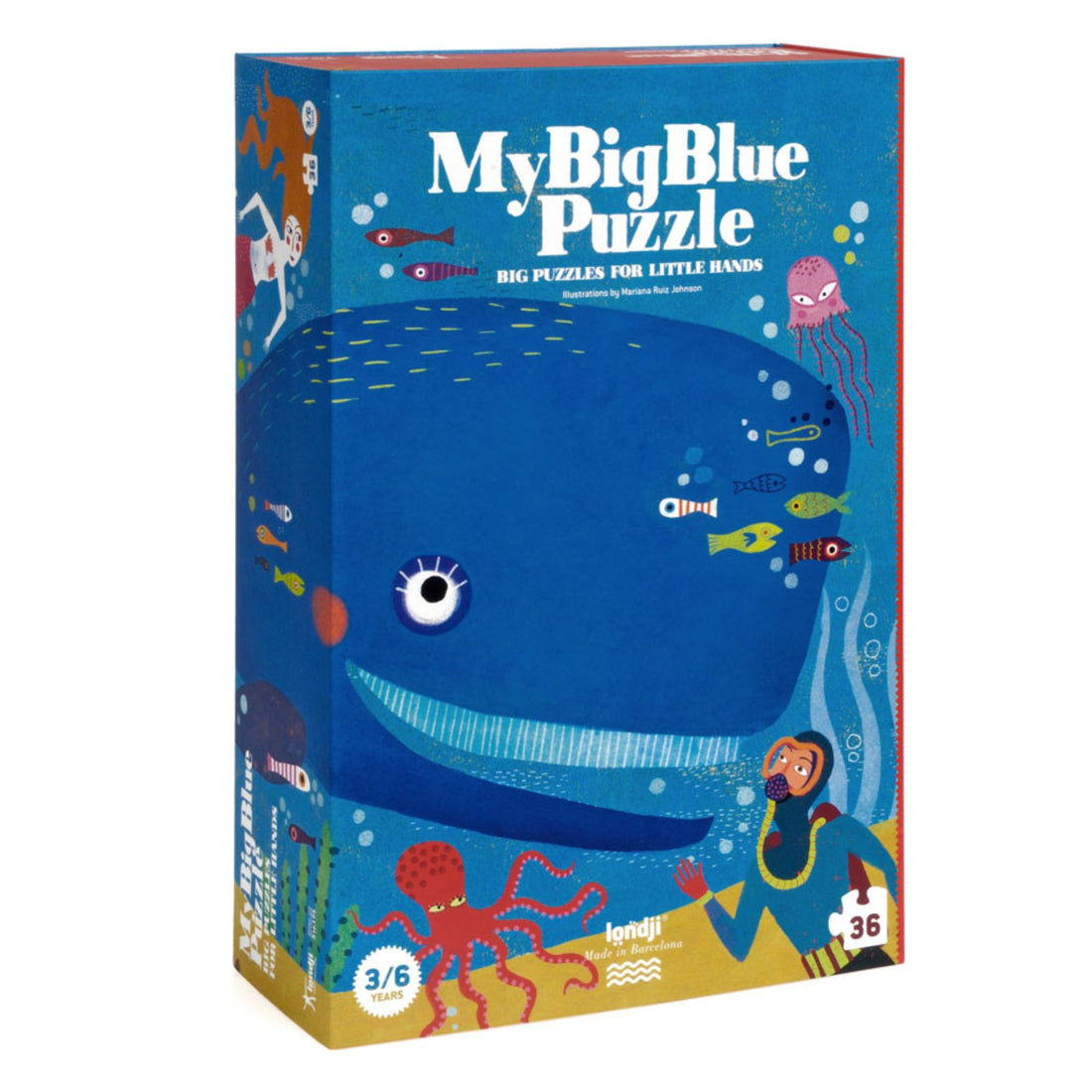
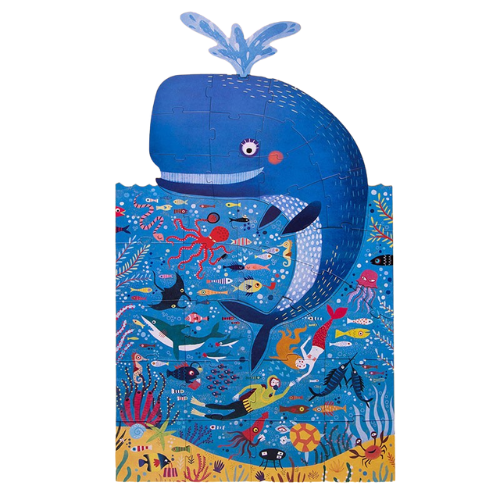 Vendor:Londji Puzzle My Big Blue PuzzleLondji
Vendor:Londji Puzzle My Big Blue PuzzleLondji- Regular price
-
€30,00 - Regular price
-
€30,00 - Sale price
-
€30,00
-
Londji Puzzle Discover The World
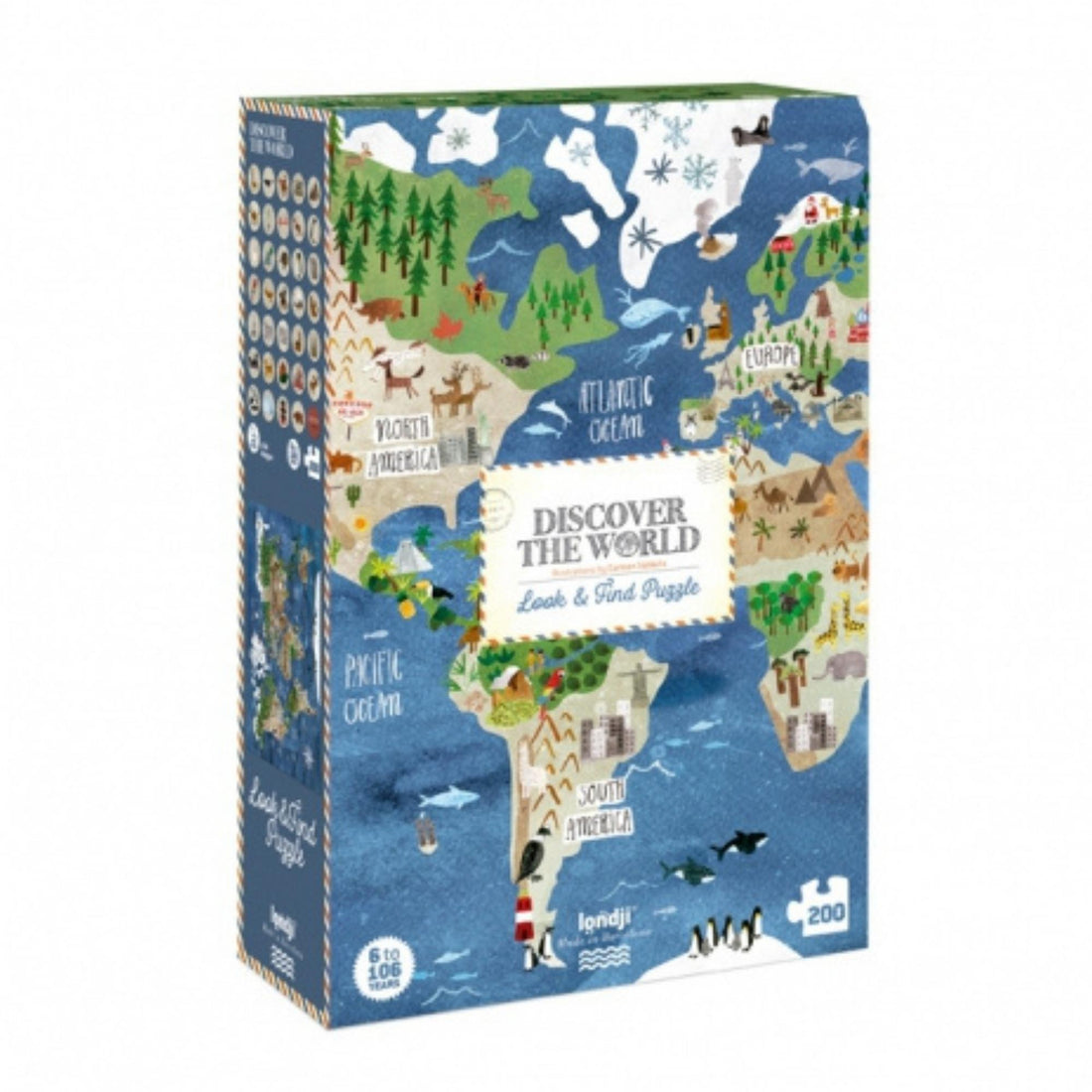
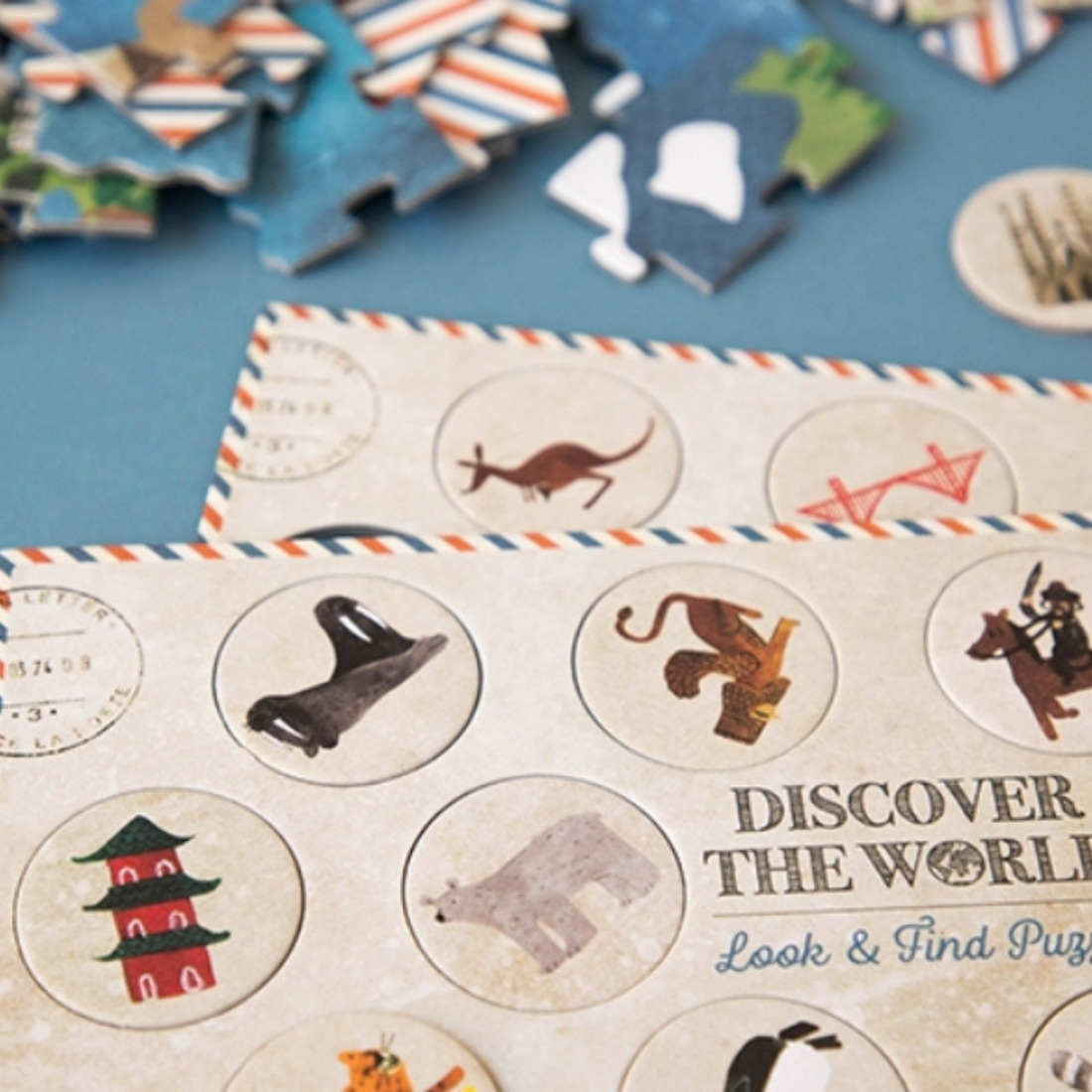 Vendor:Londji Puzzle Discover The WorldLondji
Vendor:Londji Puzzle Discover The WorldLondji- Regular price
-
€29,00 - Regular price
-
€29,00 - Sale price
-
€29,00
-
Londji Puzzle game Beep, Beep!
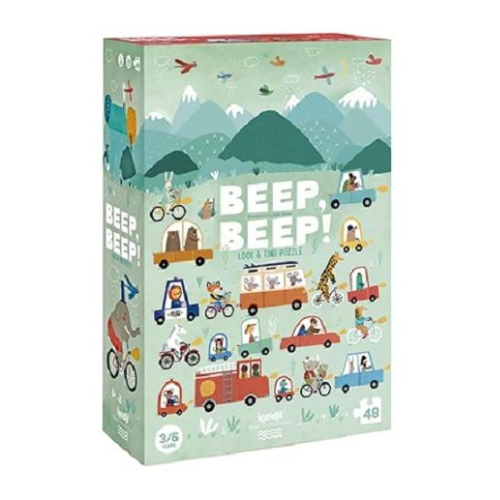
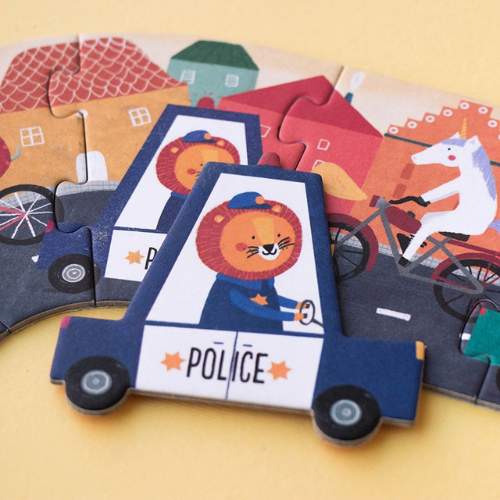 Vendor:Londji Puzzle game Beep, Beep!Londji
Vendor:Londji Puzzle game Beep, Beep!Londji- Regular price
-
€33,00 - Regular price
-
€33,00 - Sale price
-
€33,00
-
Londji Puzzle 10 Penguins
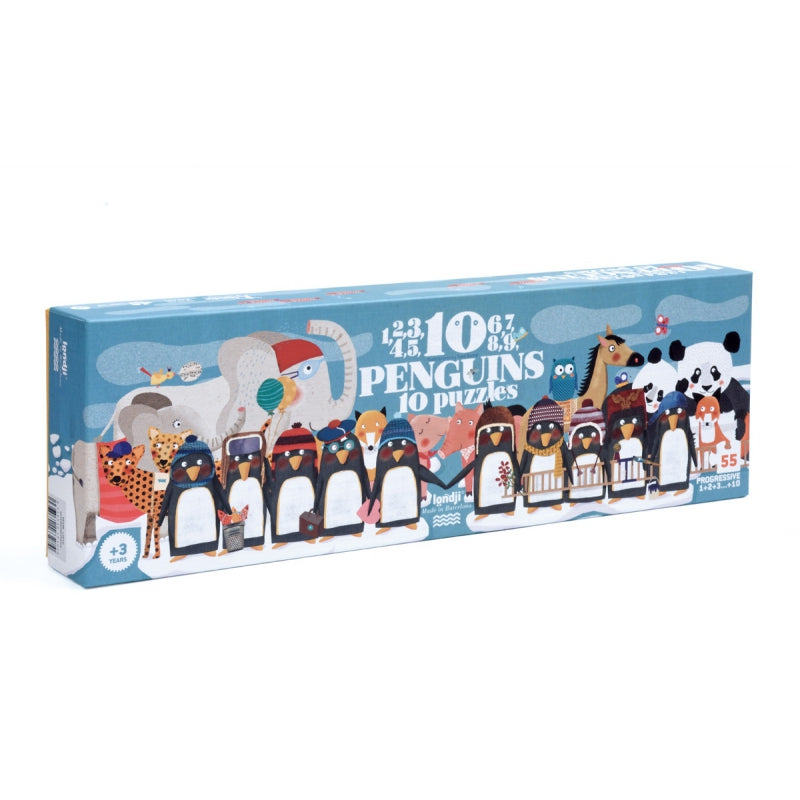
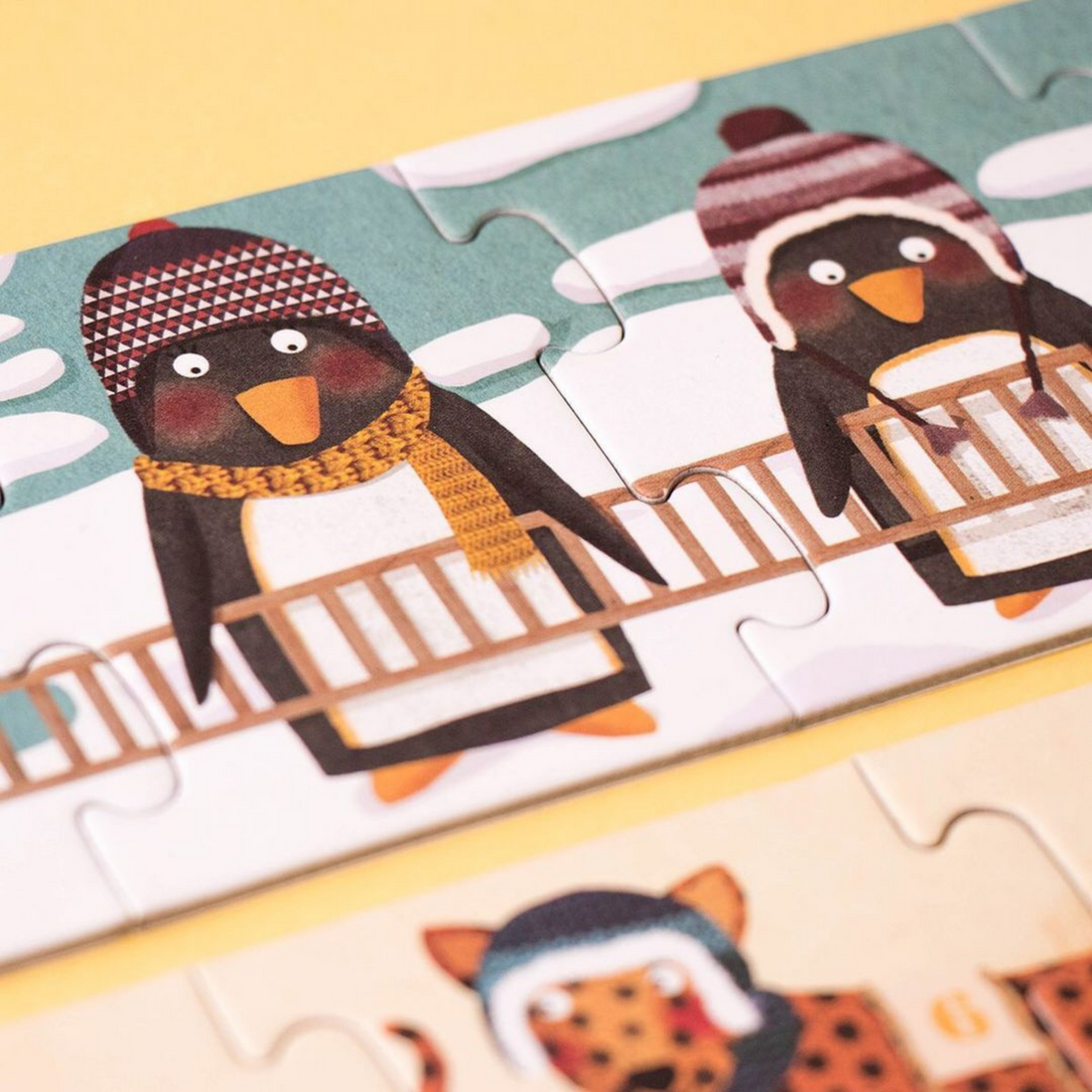 Vendor:Londji Puzzle 10 PenguinsLondji
Vendor:Londji Puzzle 10 PenguinsLondji- Regular price
-
€30,00 - Regular price
-
€30,00 - Sale price
-
€30,00
-
Puzzle Match The Twins
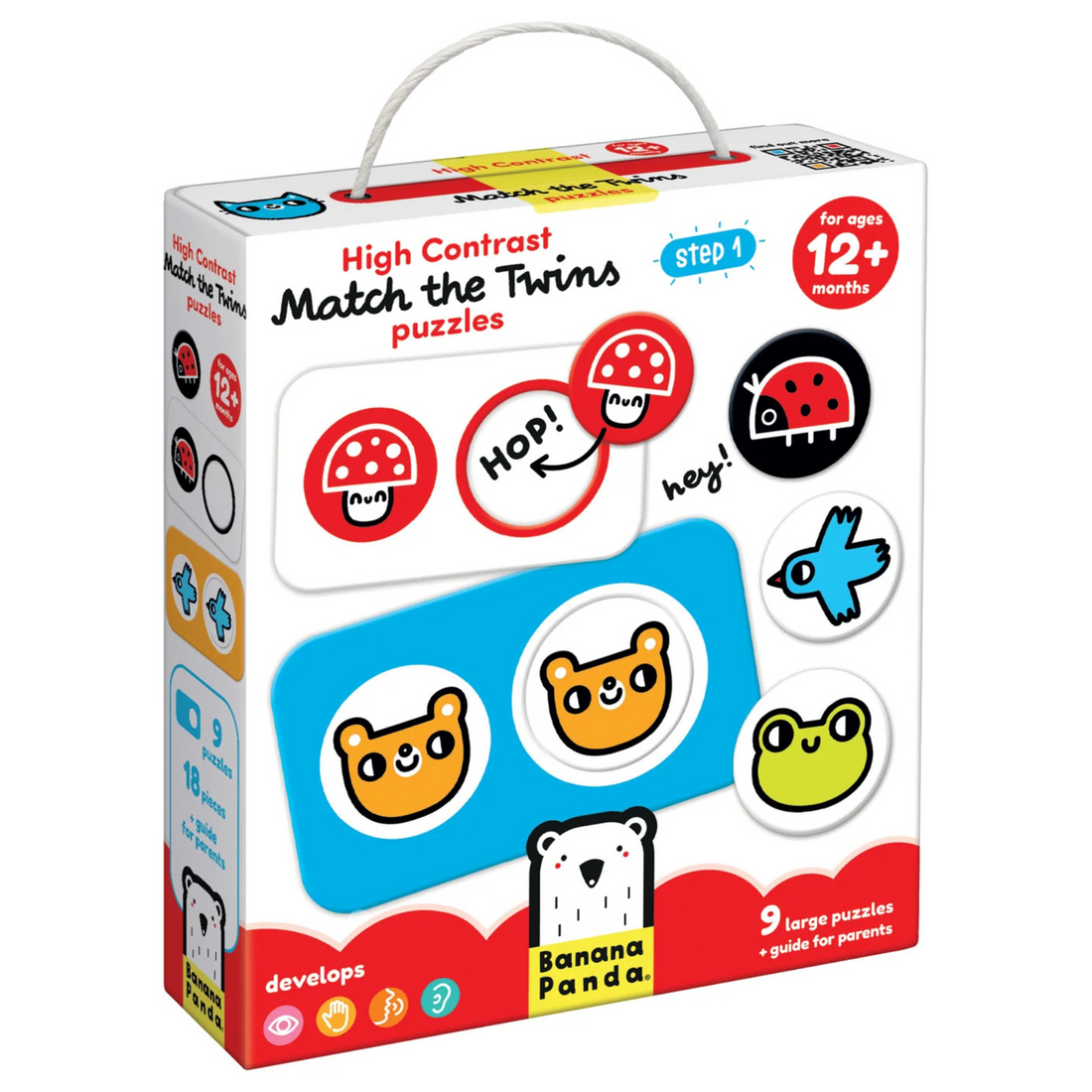
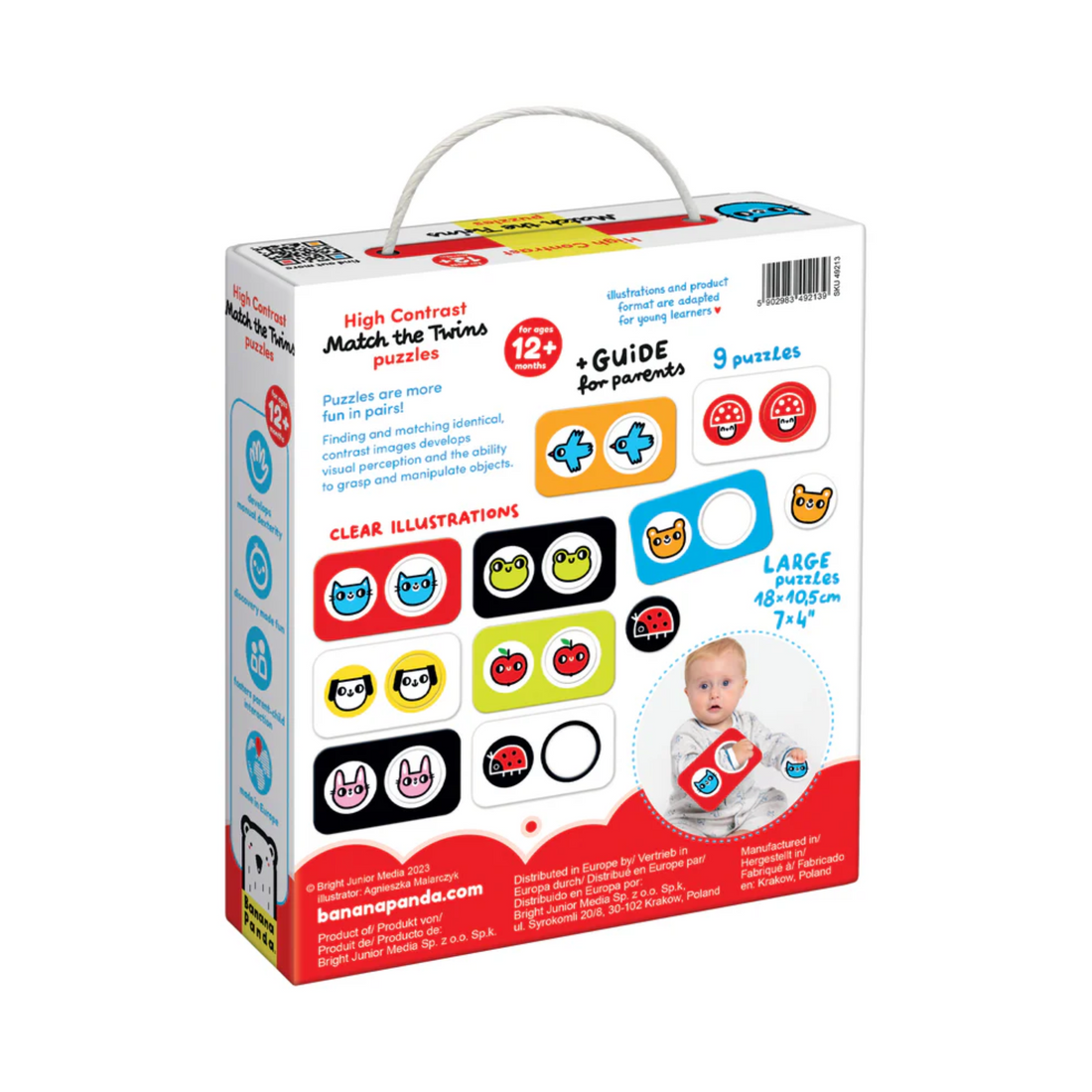 Vendor:Puzzle Match The TwinsBanana Panda
Vendor:Puzzle Match The TwinsBanana Panda- Regular price
-
€16,00 - Regular price
-
€20,00 - Sale price
-
€16,00
-
Puzzle Forest Animals
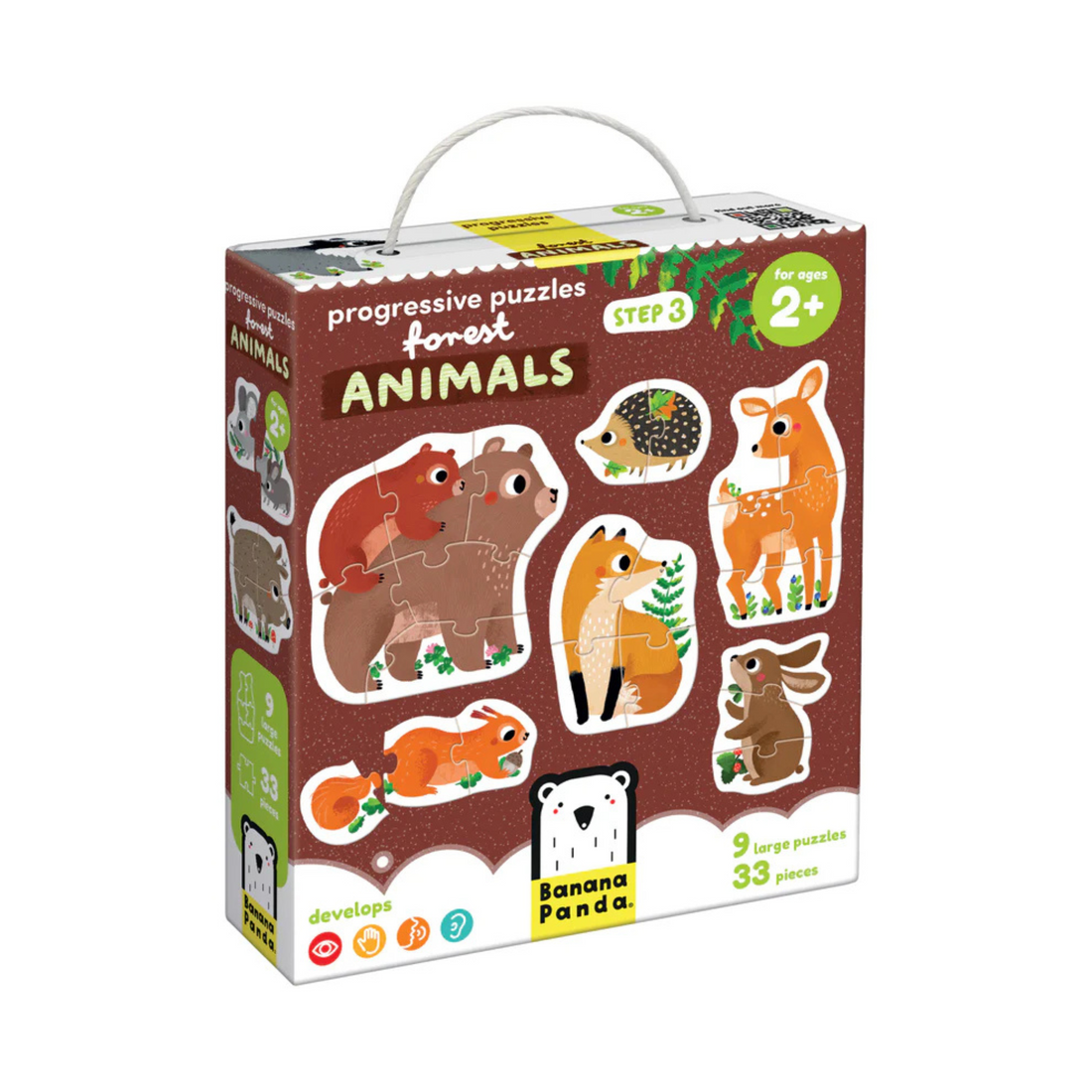
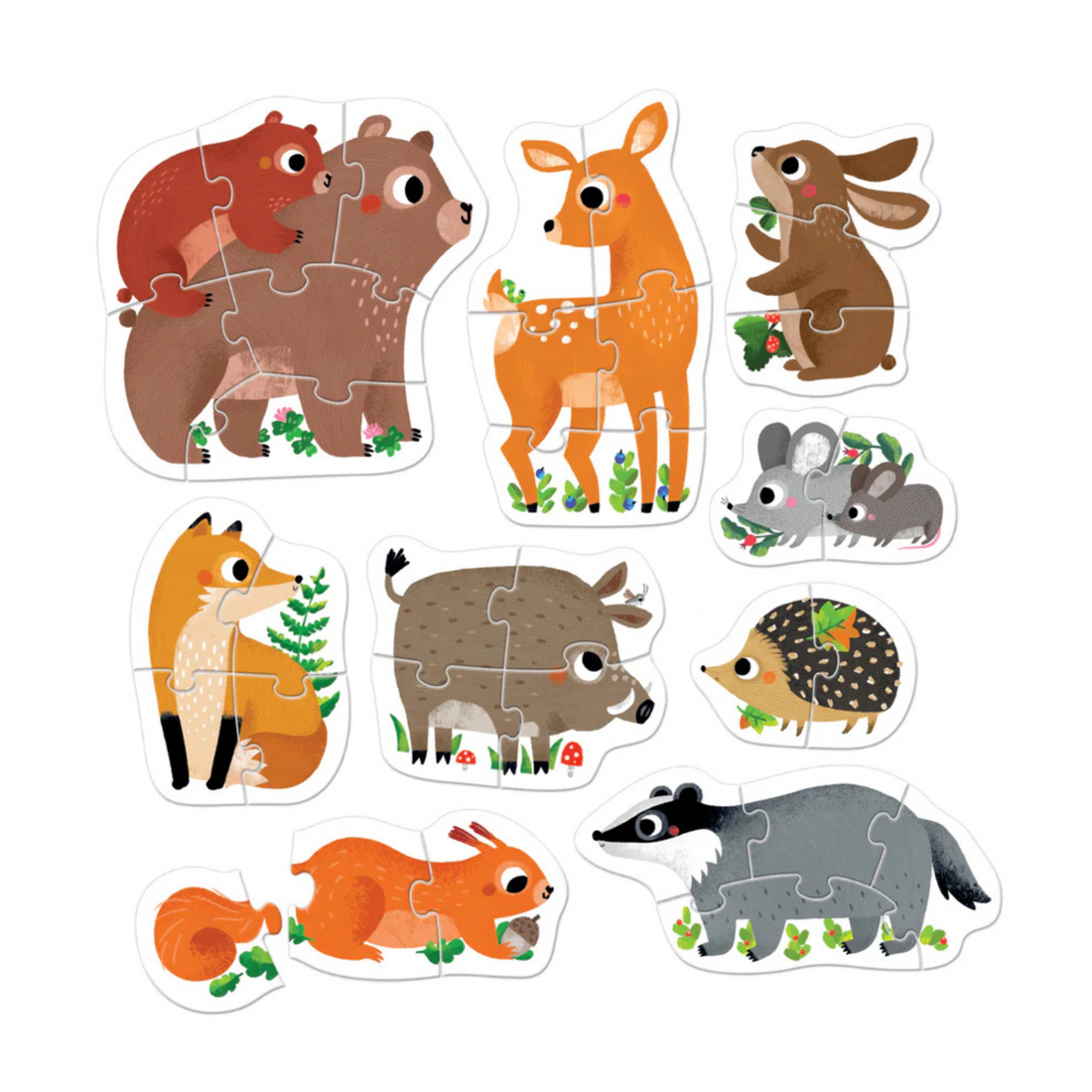 Vendor:Puzzle Forest AnimalsBanana Panda
Vendor:Puzzle Forest AnimalsBanana Panda- Regular price
-
€17,60 - Regular price
-
€22,00 - Sale price
-
€17,60
-
Djeco tactile puzzle - Farm
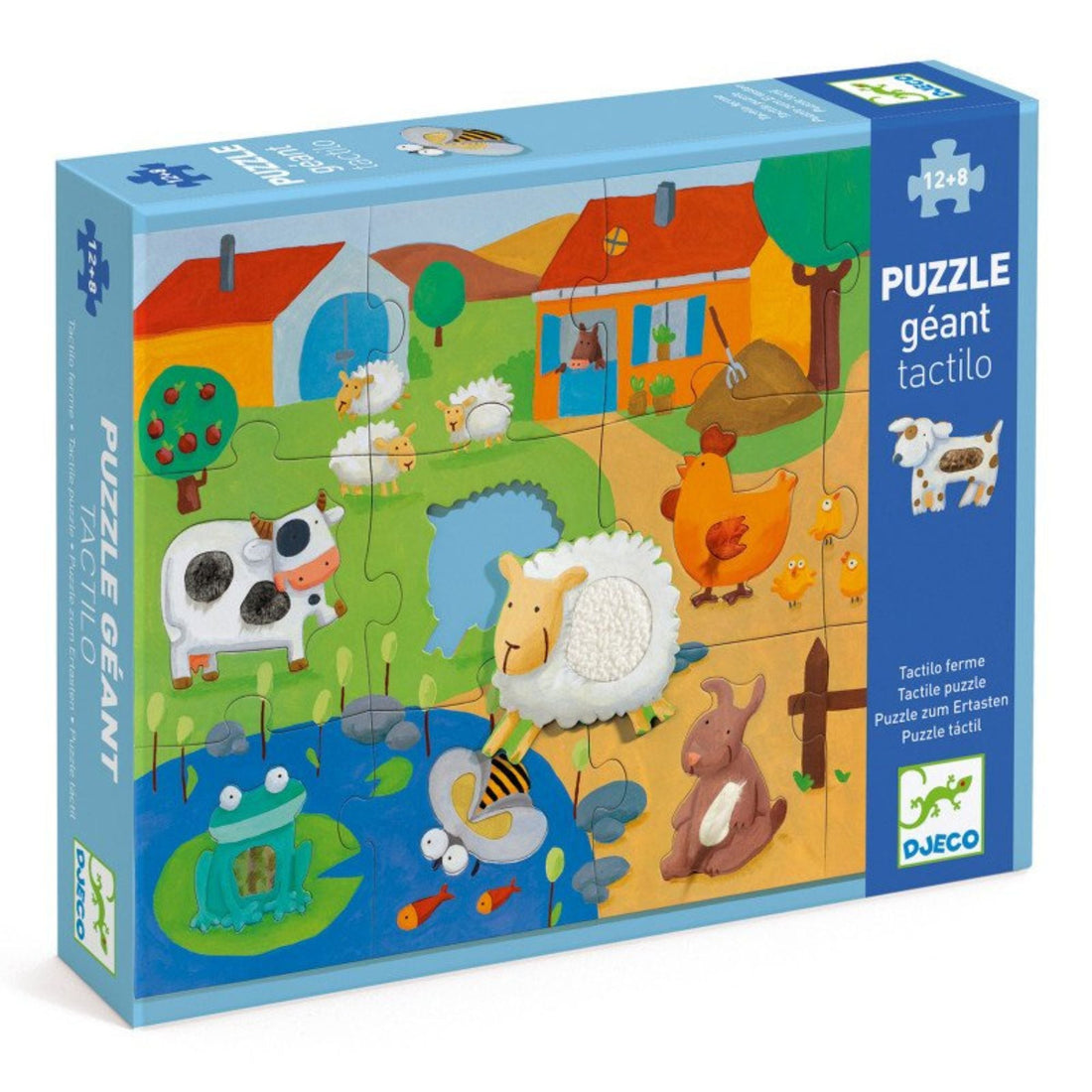
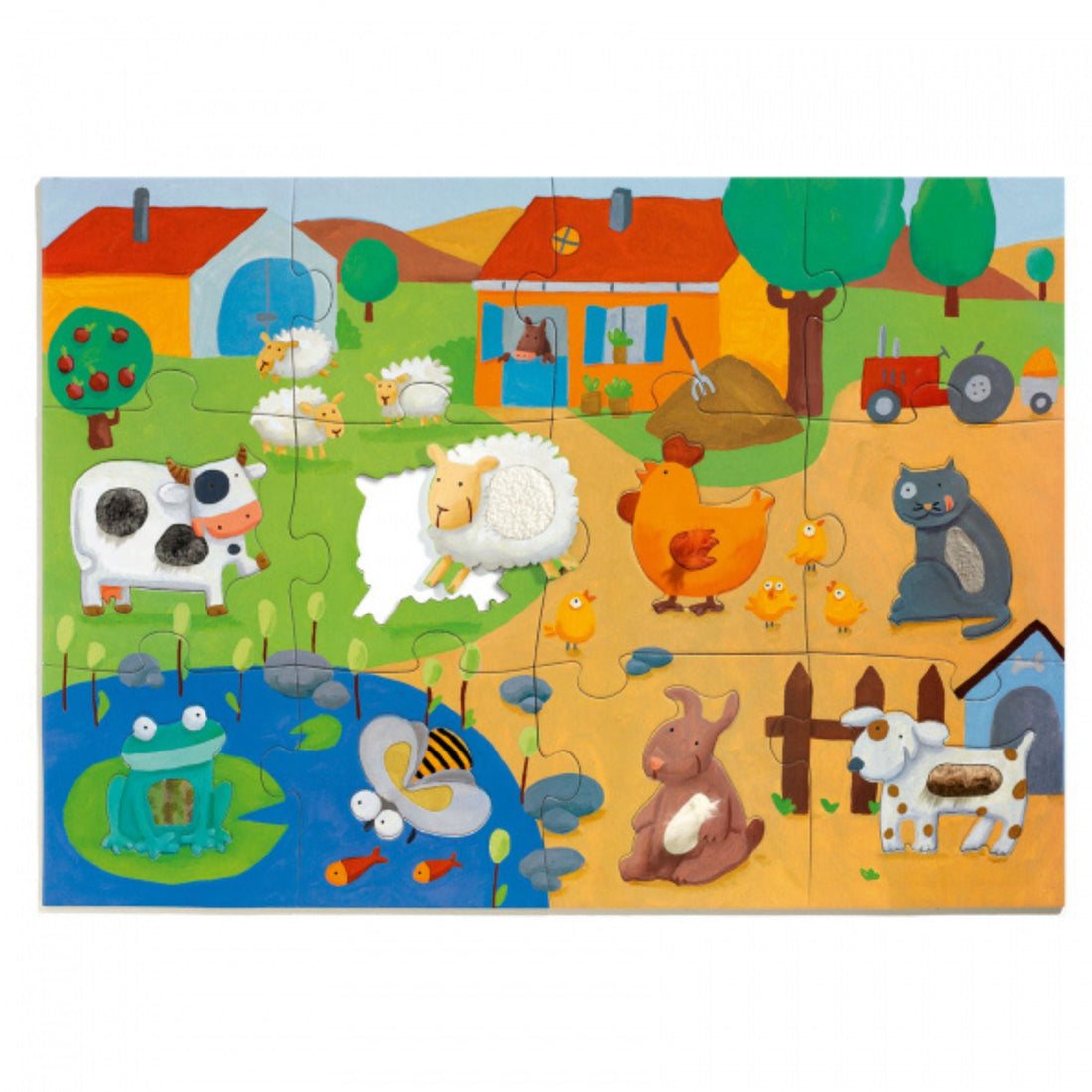 Vendor:Djeco tactile puzzle - FarmDjeco
Vendor:Djeco tactile puzzle - FarmDjeco- Regular price
-
€25,60 - Regular price
-
€32,00 - Sale price
-
€25,60
-
Magnetic puzzle - Animal
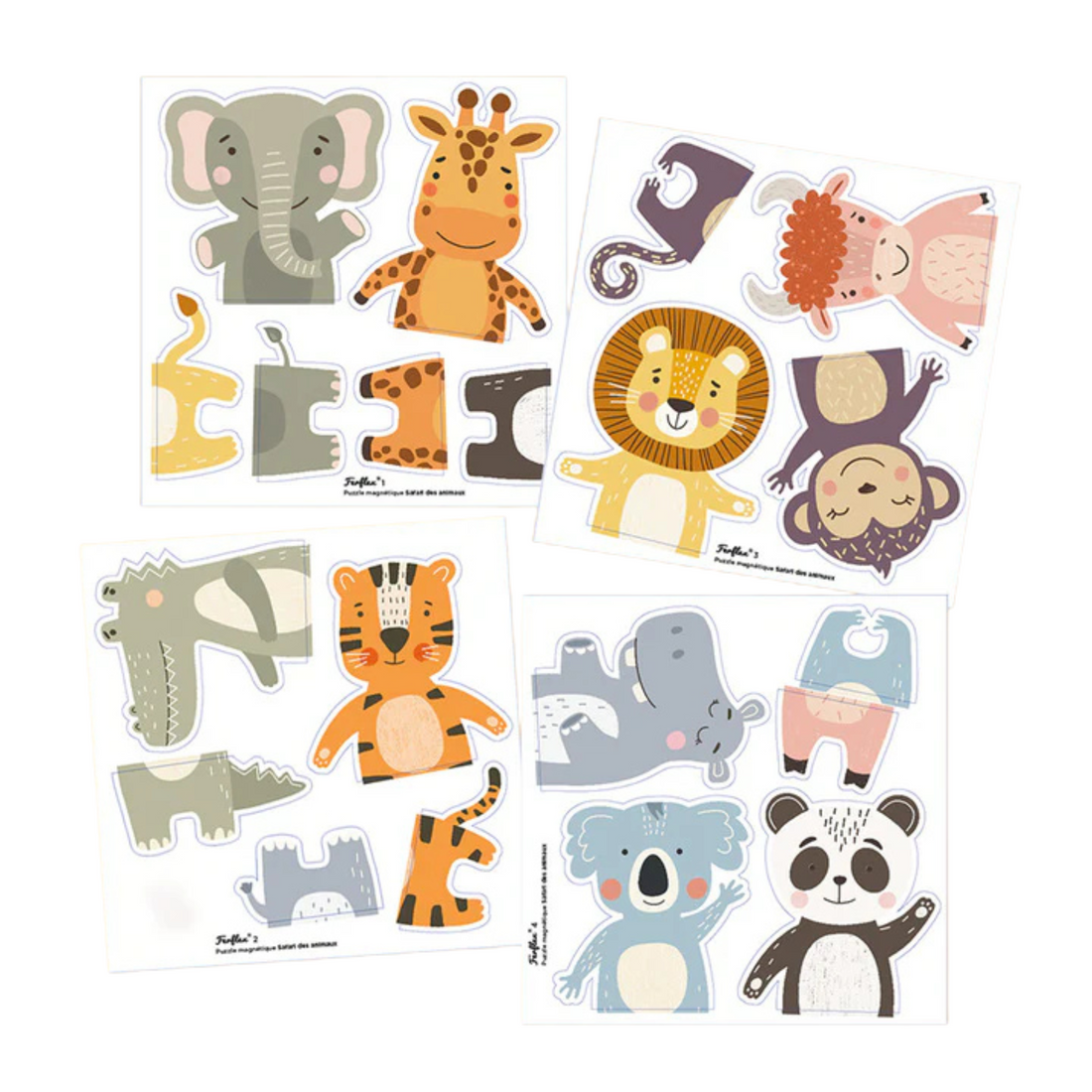
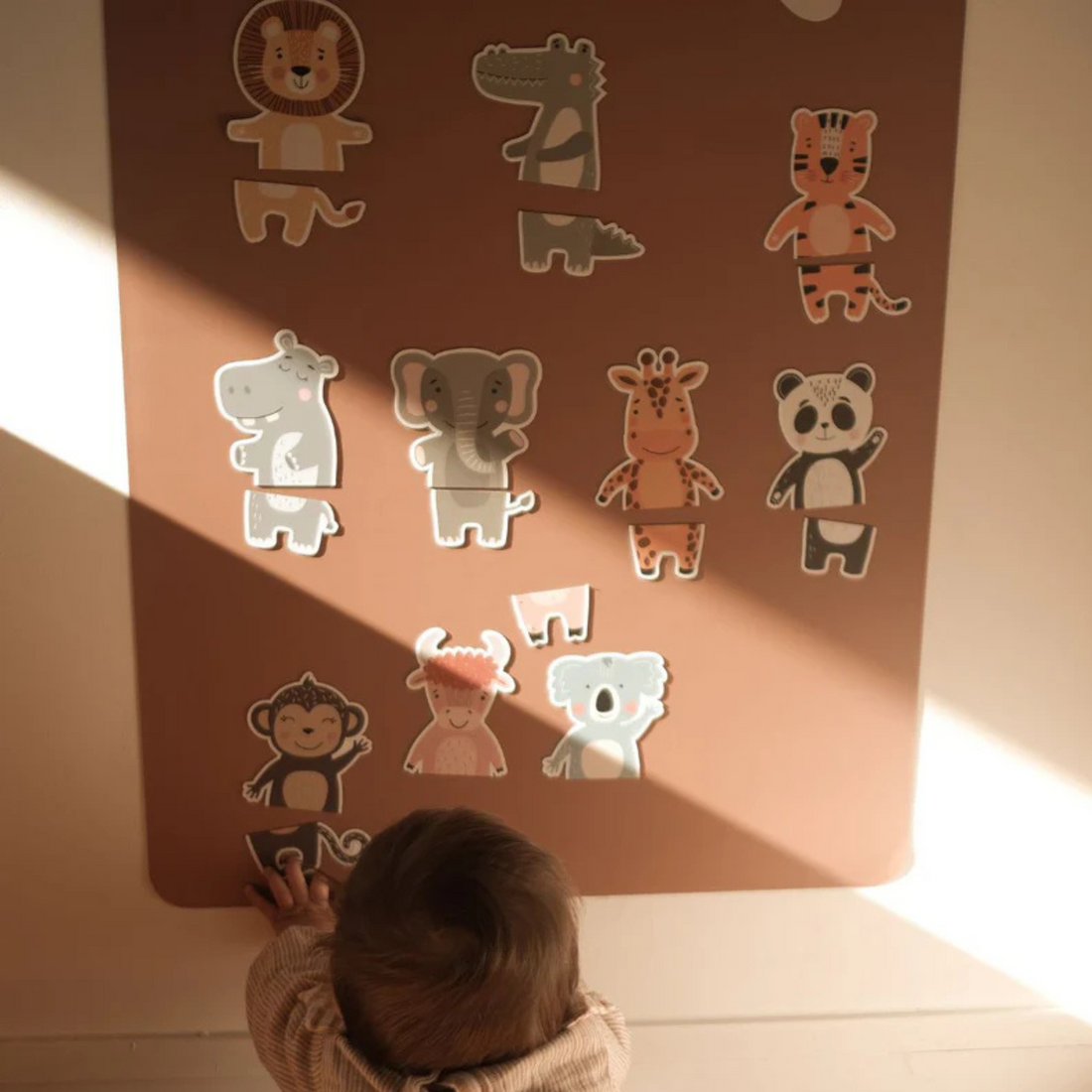 Vendor:Magnetic puzzle - AnimalFerflex
Vendor:Magnetic puzzle - AnimalFerflex- Regular price
-
€22,40 - Regular price
-
€28,00 - Sale price
-
€22,40
-
A set of large puzzles My Body
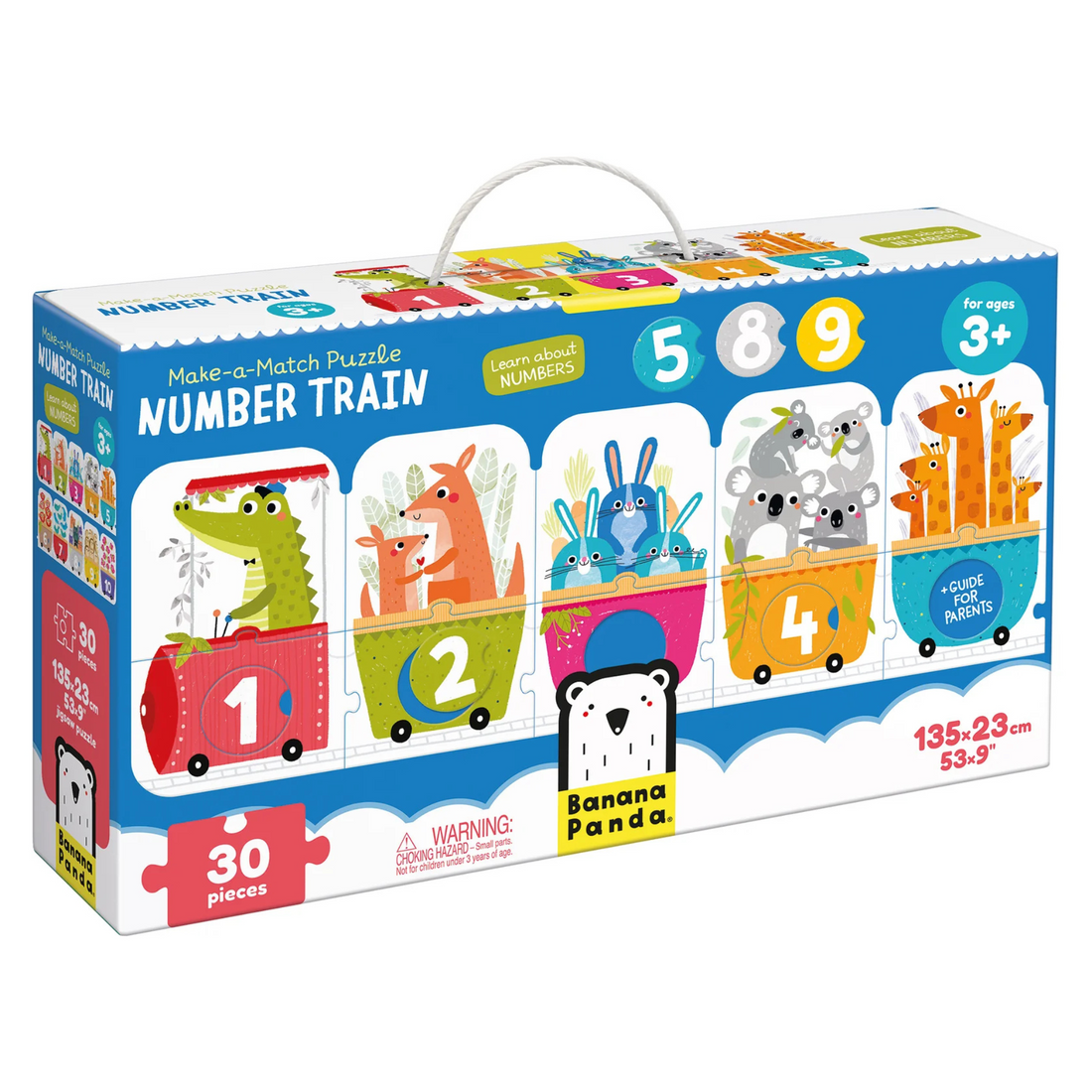
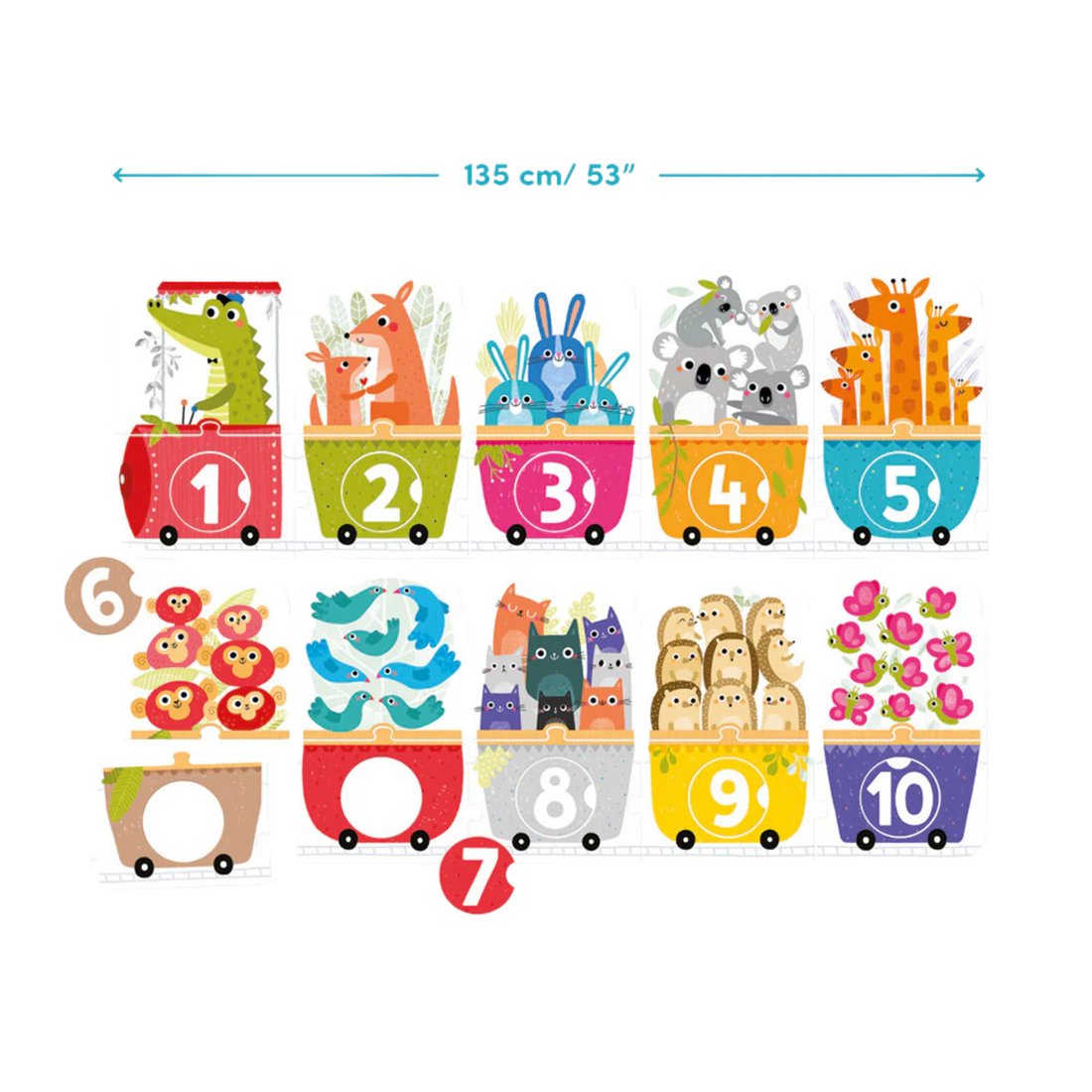 Vendor:A set of large puzzles My BodyBanana Panda
Vendor:A set of large puzzles My BodyBanana Panda- Regular price
-
€22,40 - Regular price
-
€28,00 - Sale price
-
€22,40
-
Farm Animals Puzzle
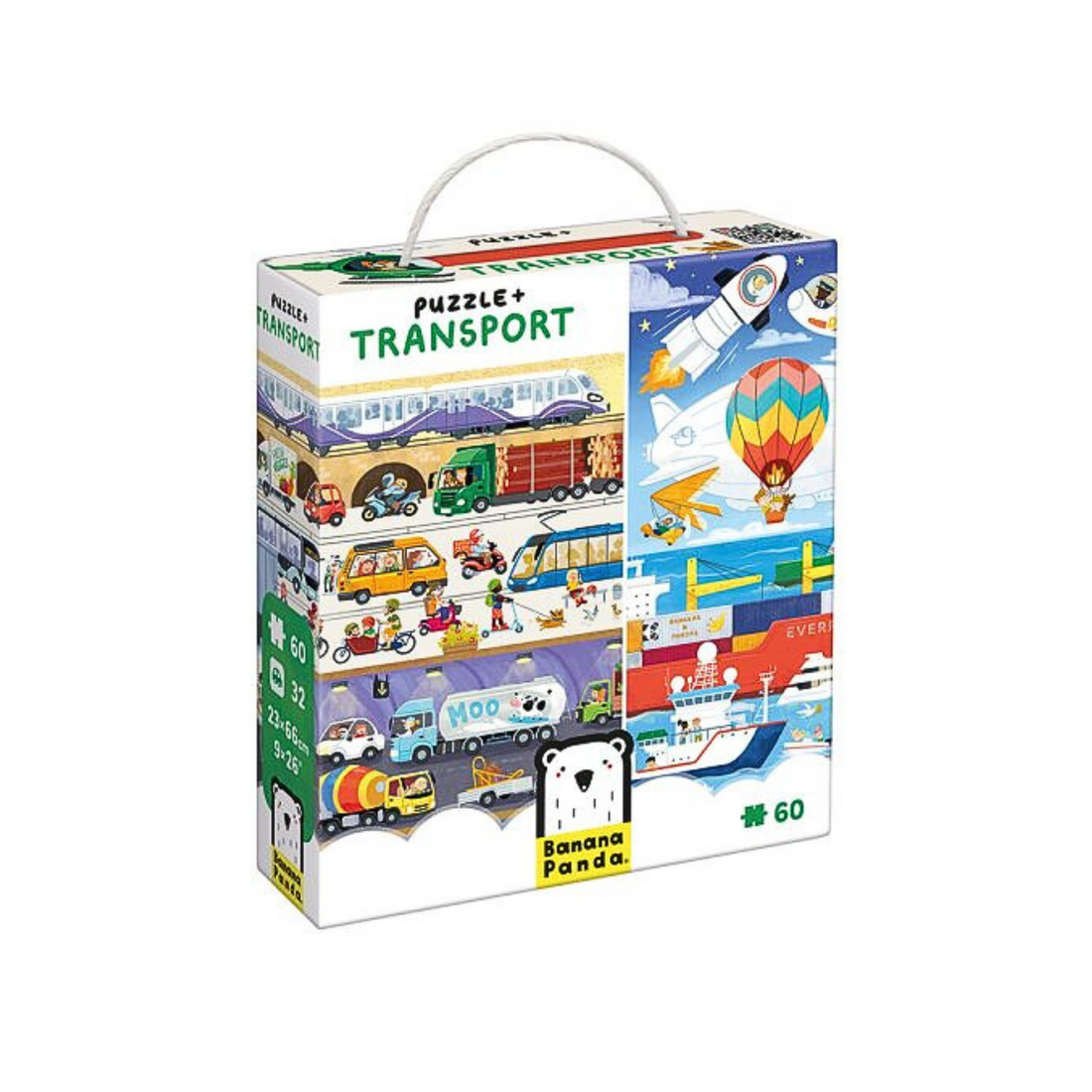
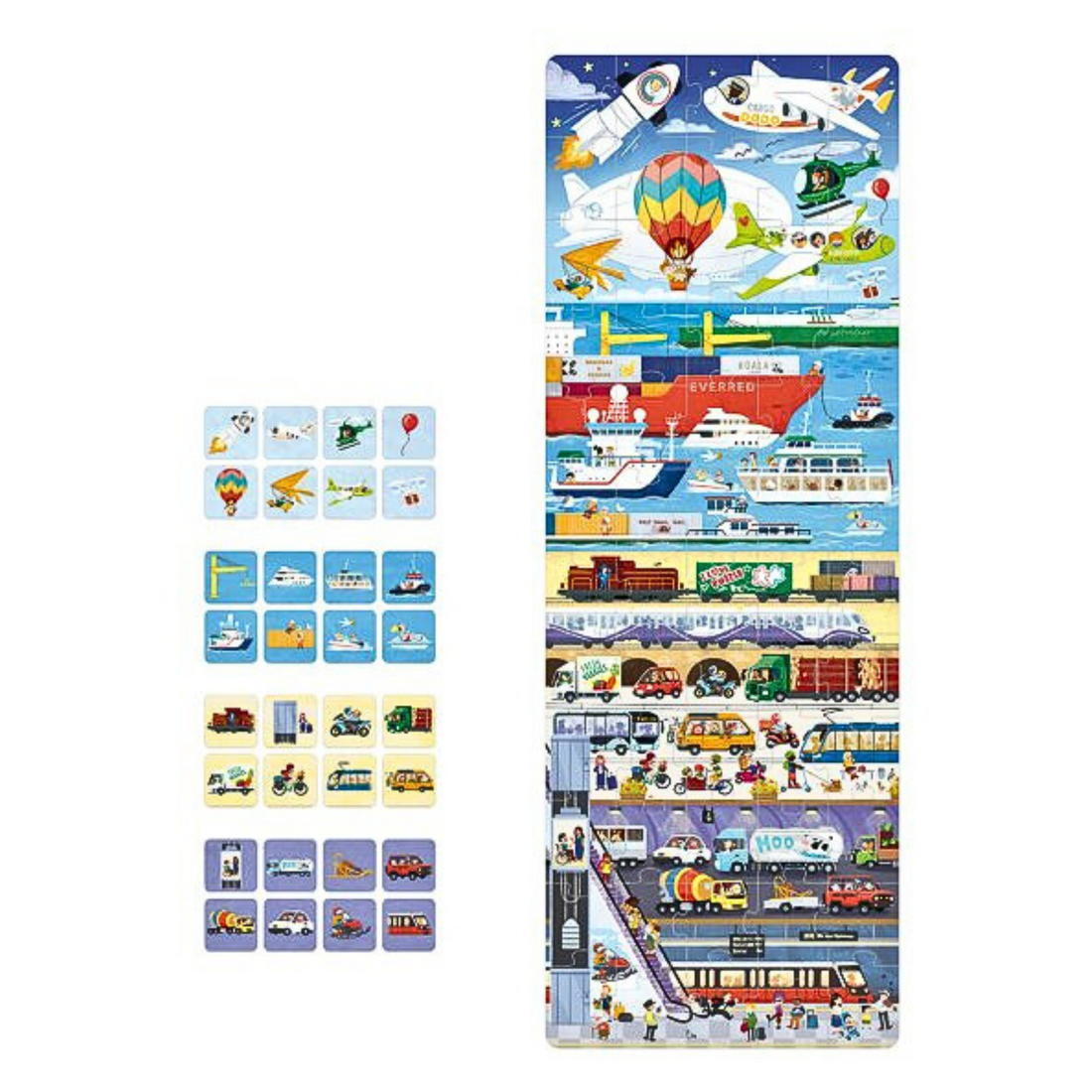 Vendor:Farm Animals PuzzleBanana Panda
Vendor:Farm Animals PuzzleBanana Panda- Regular price
-
€16,00 - Regular price
-
€20,00 - Sale price
-
€16,00
-
Farm Animals Puzzle
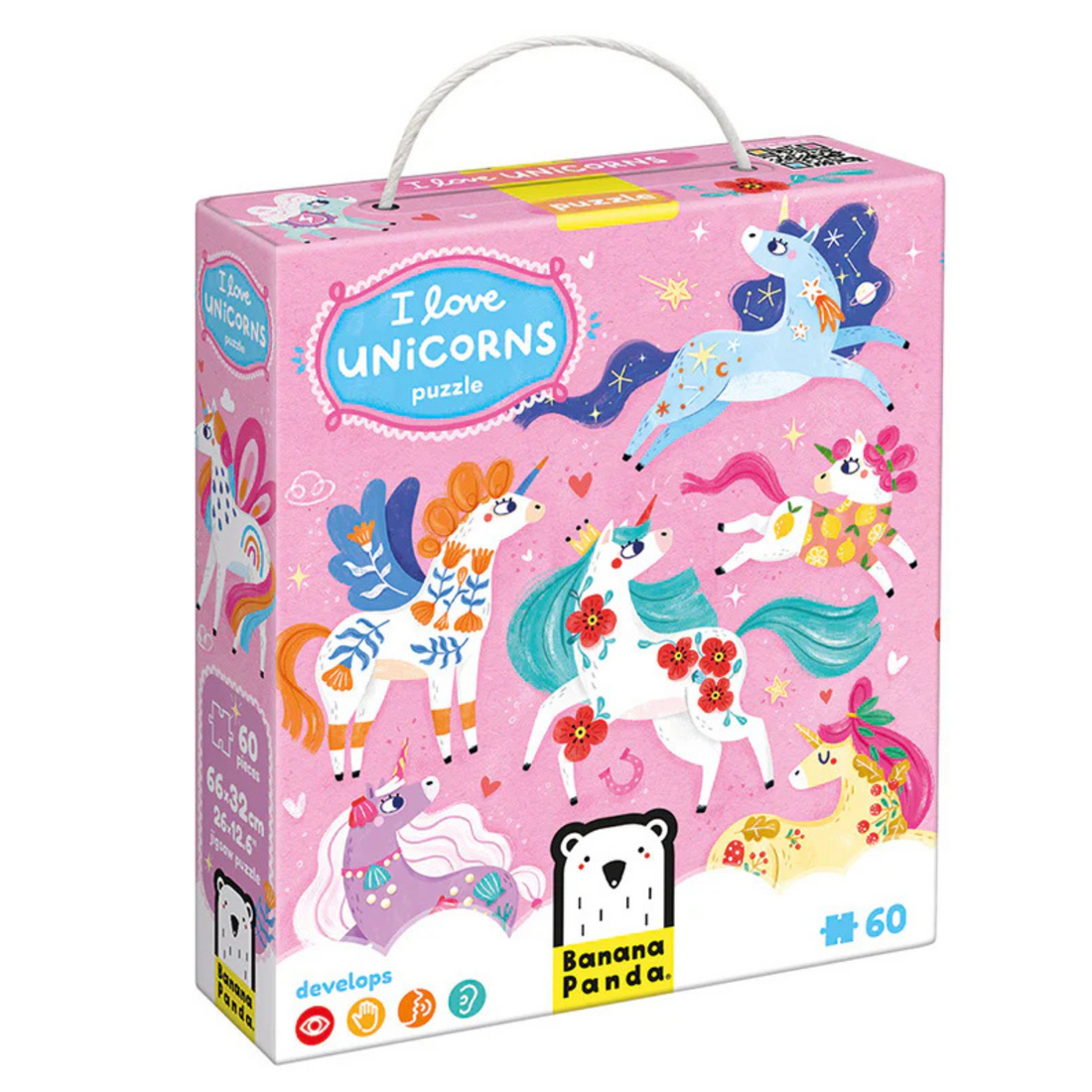
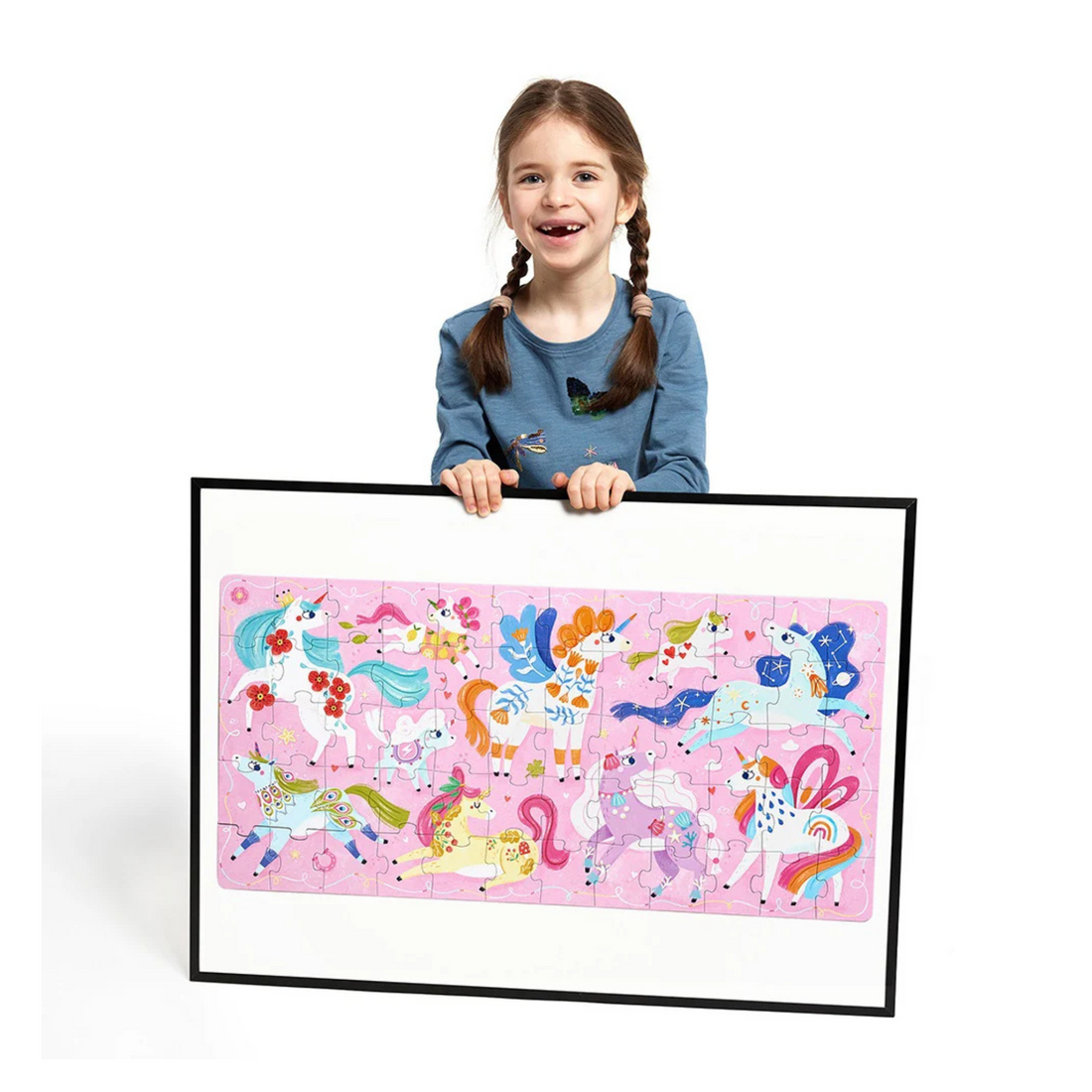 Vendor:Farm Animals PuzzleBanana Panda
Vendor:Farm Animals PuzzleBanana Panda- Regular price
-
€17,60 - Regular price
-
€22,00 - Sale price
-
€17,60
-
Match The Buddies puzzle
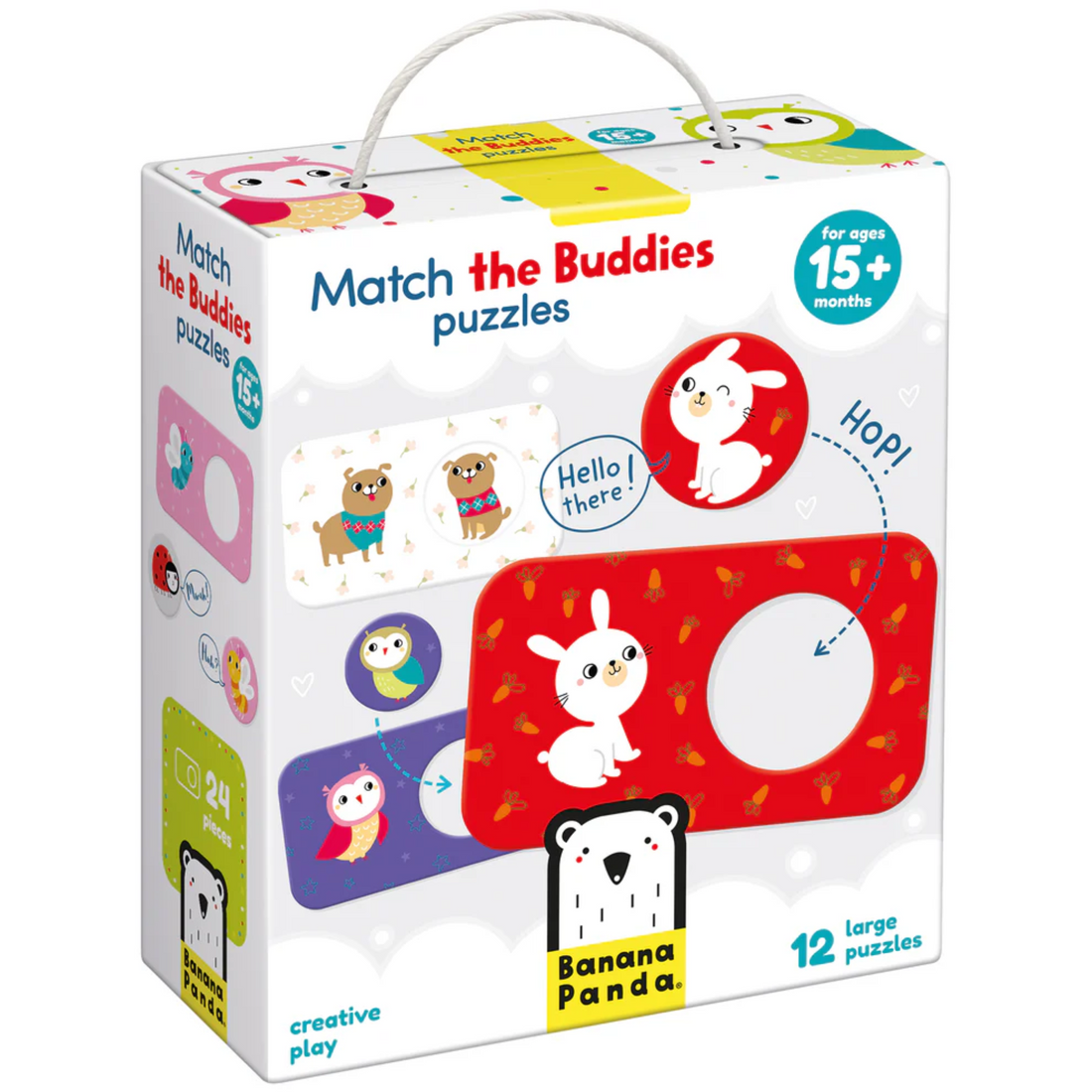
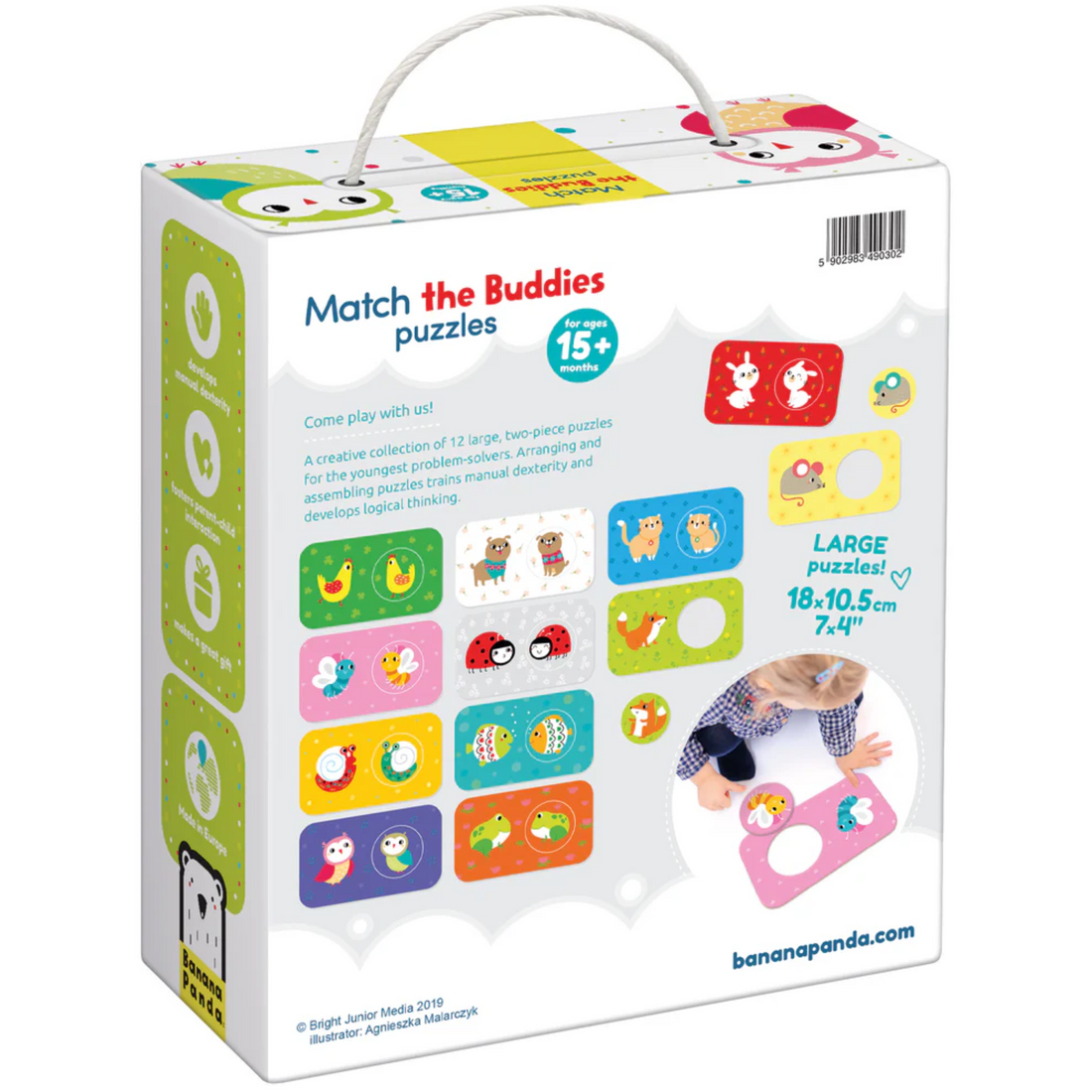 Vendor:Match The Buddies puzzleBanana Panda
Vendor:Match The Buddies puzzleBanana Panda- Regular price
-
€17,60 - Regular price
-
€22,00 - Sale price
-
€17,60
-
Tiny Creatures Puzzle
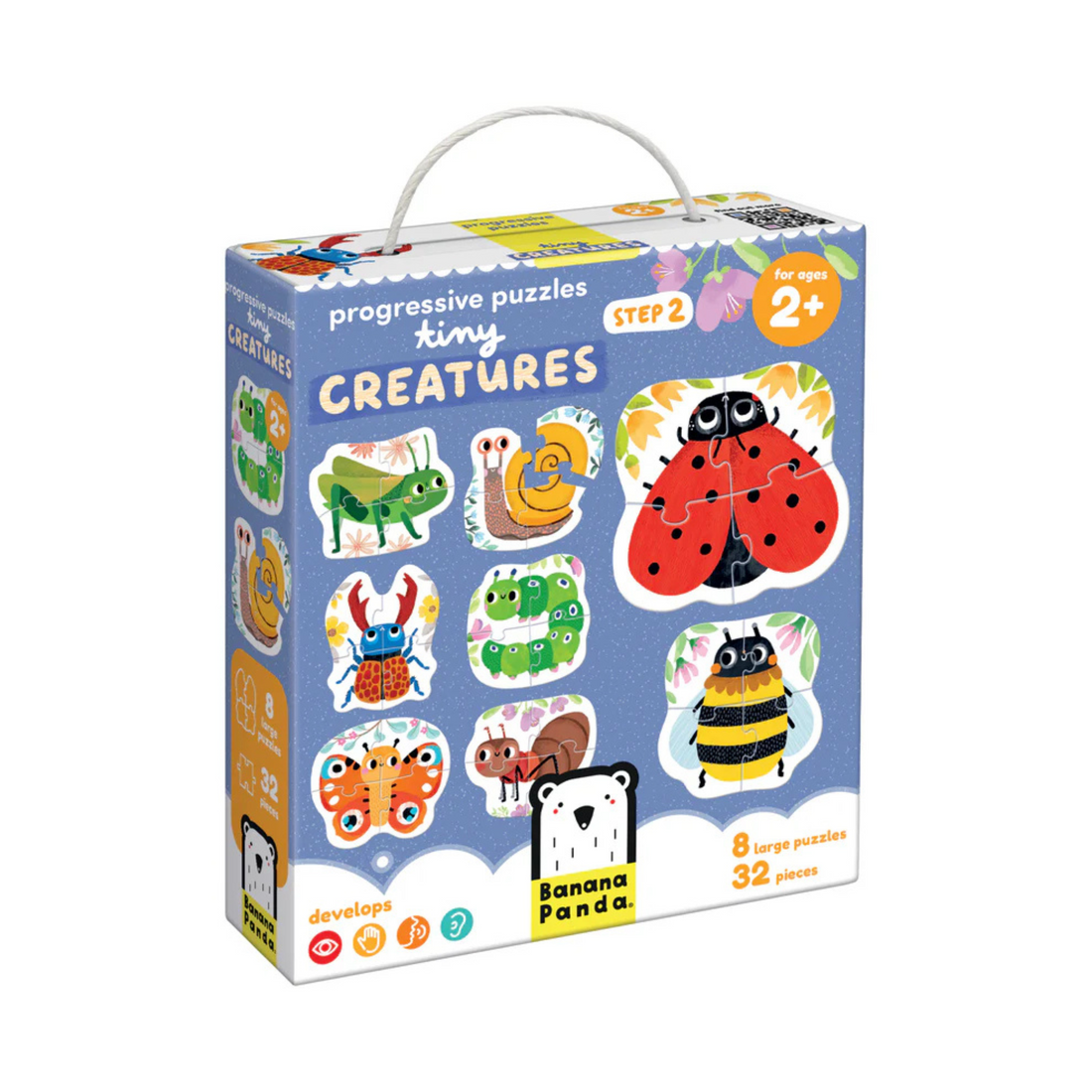
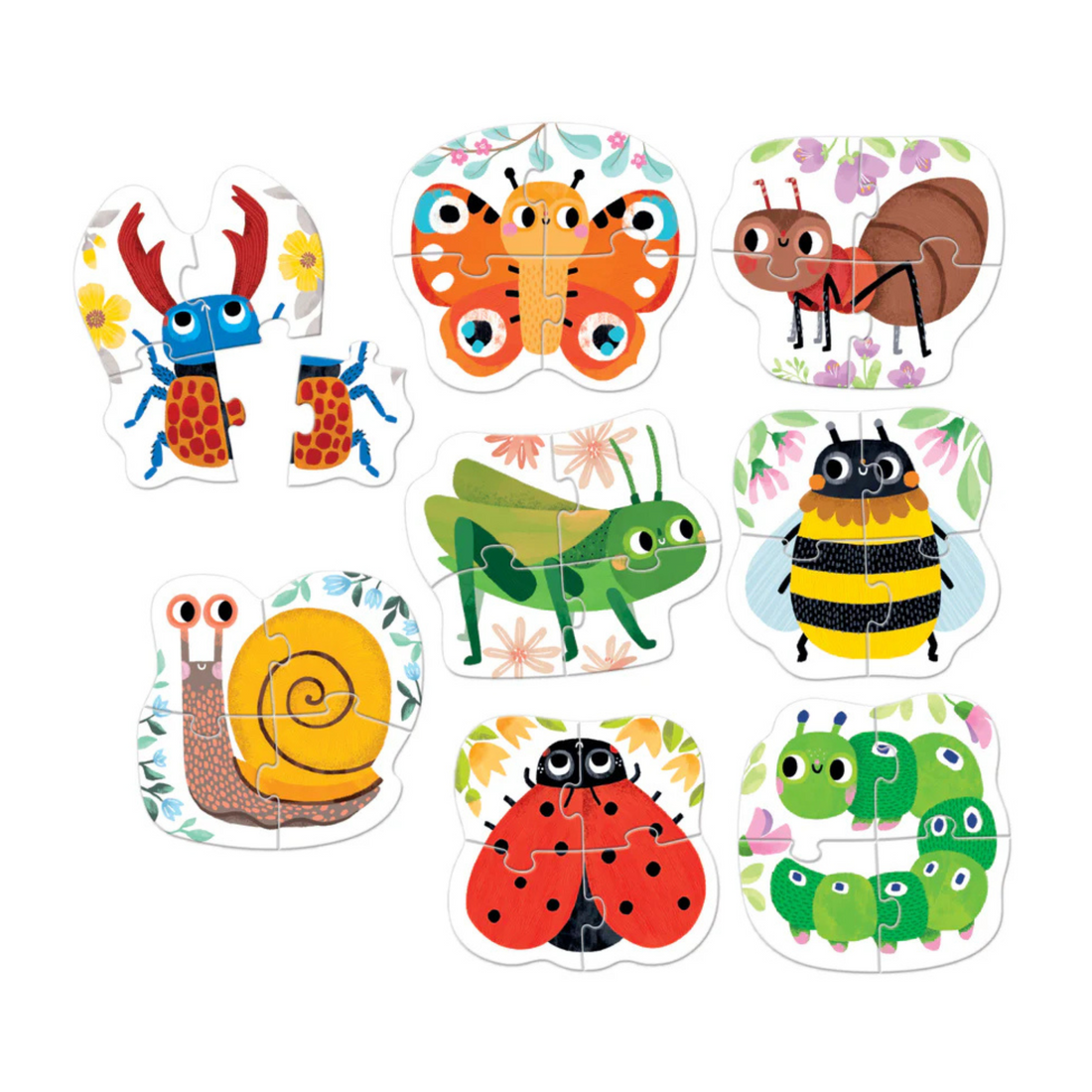 Vendor:Tiny Creatures PuzzleBanana Panda
Vendor:Tiny Creatures PuzzleBanana Panda- Regular price
-
€17,60 - Regular price
-
€22,00 - Sale price
-
€17,60
-
Farm Animals Puzzle
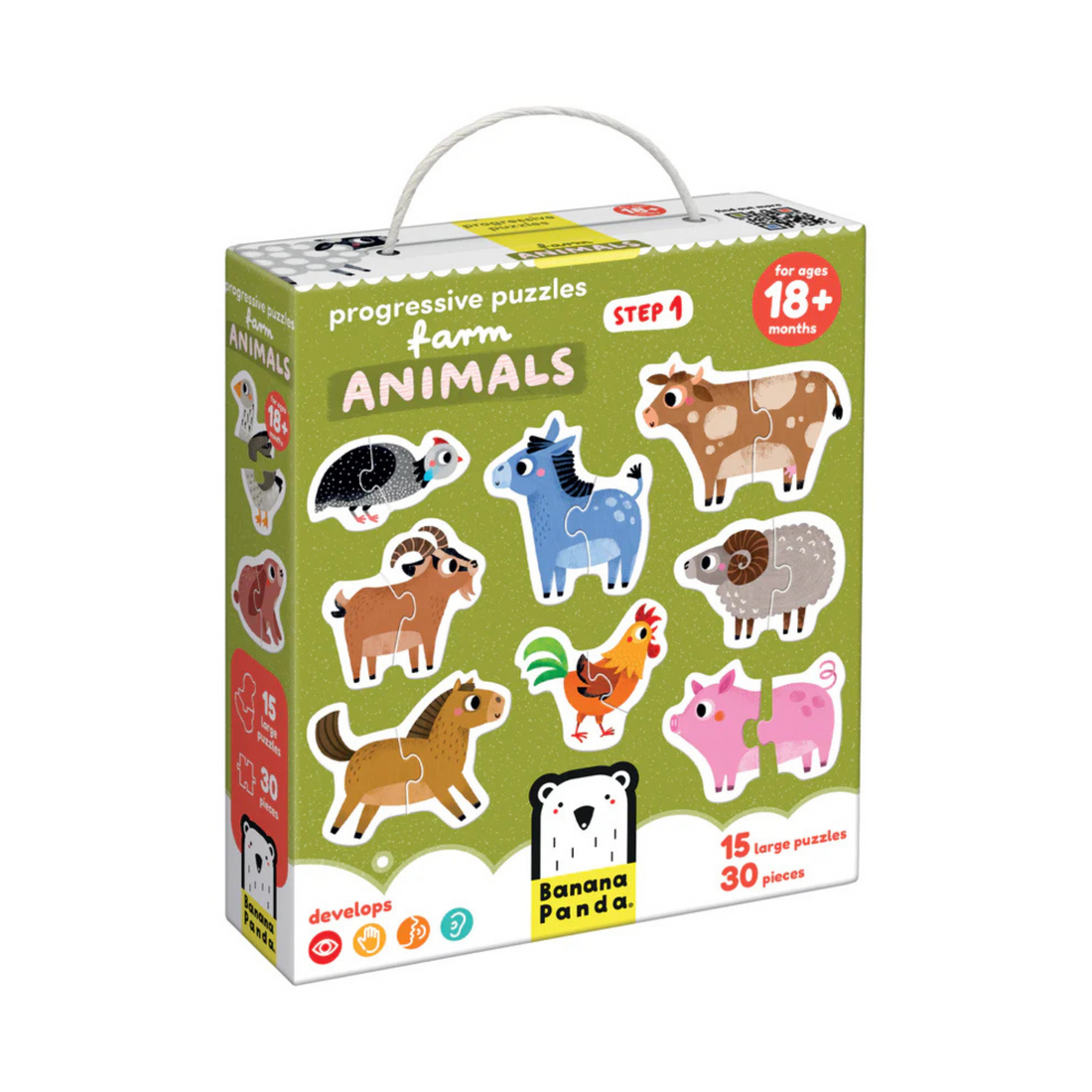
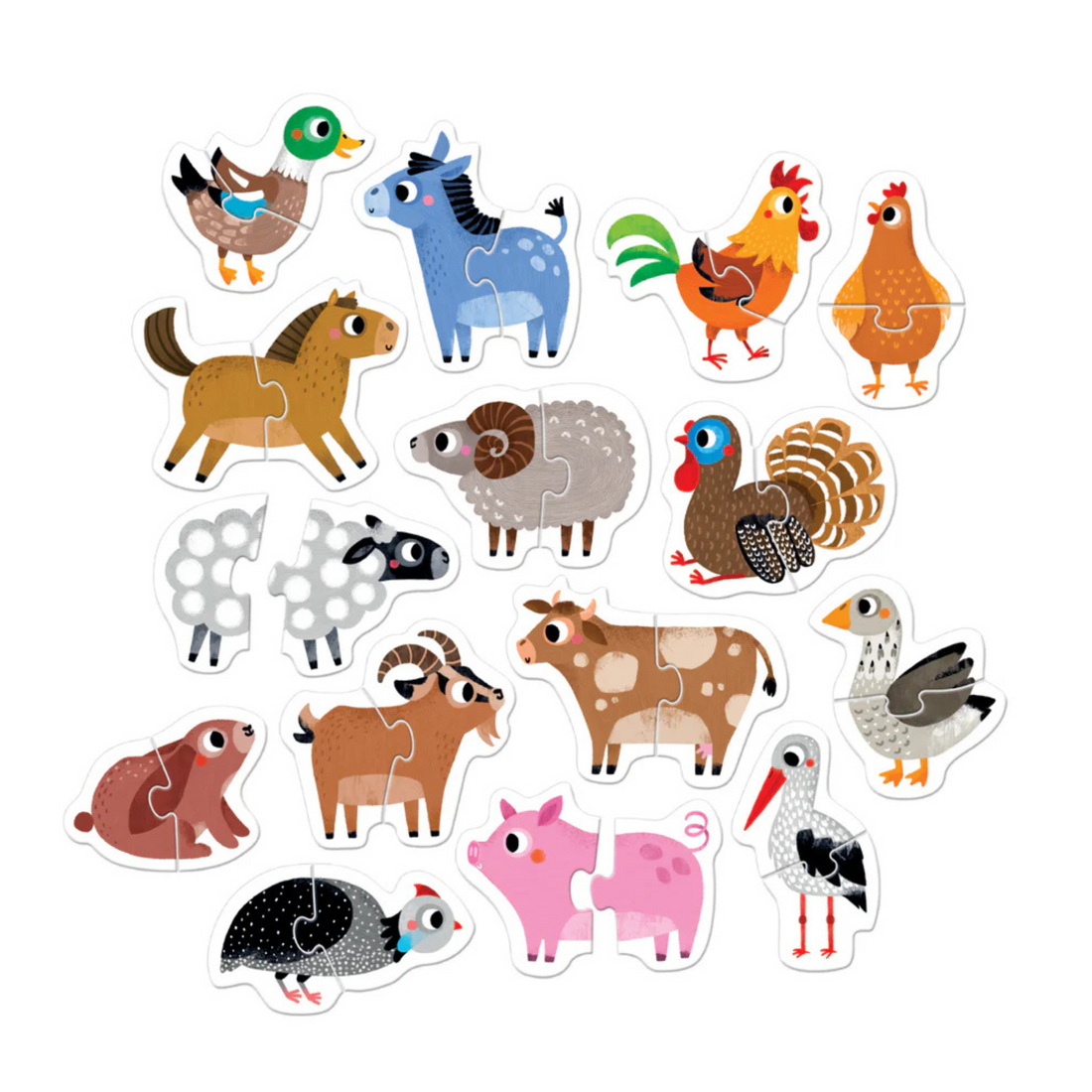 Vendor:Farm Animals PuzzleBanana Panda
Vendor:Farm Animals PuzzleBanana Panda- Regular price
-
€17,60 - Regular price
-
€22,00 - Sale price
-
€17,60
-
Londji Puzzle Rabbit's Garden
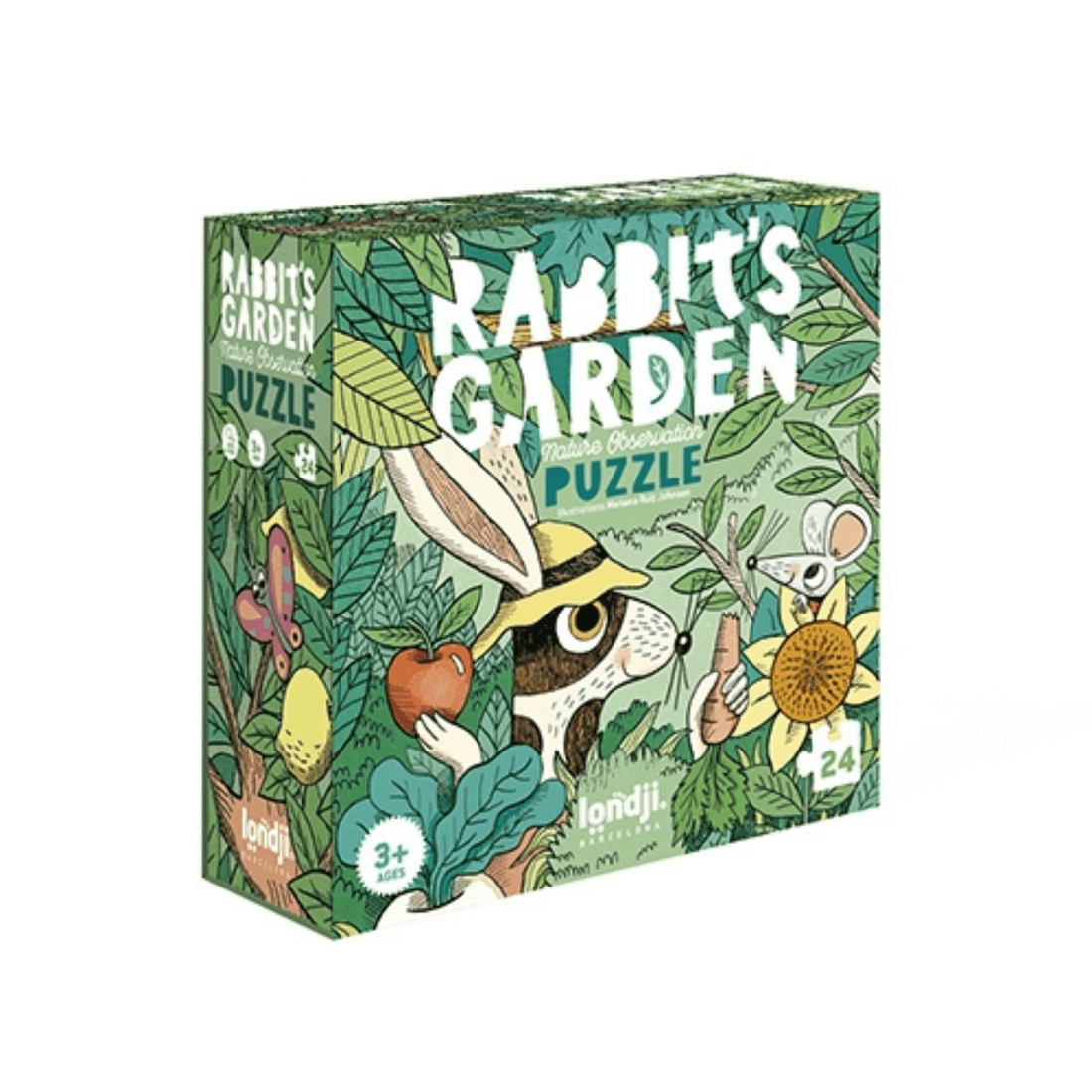
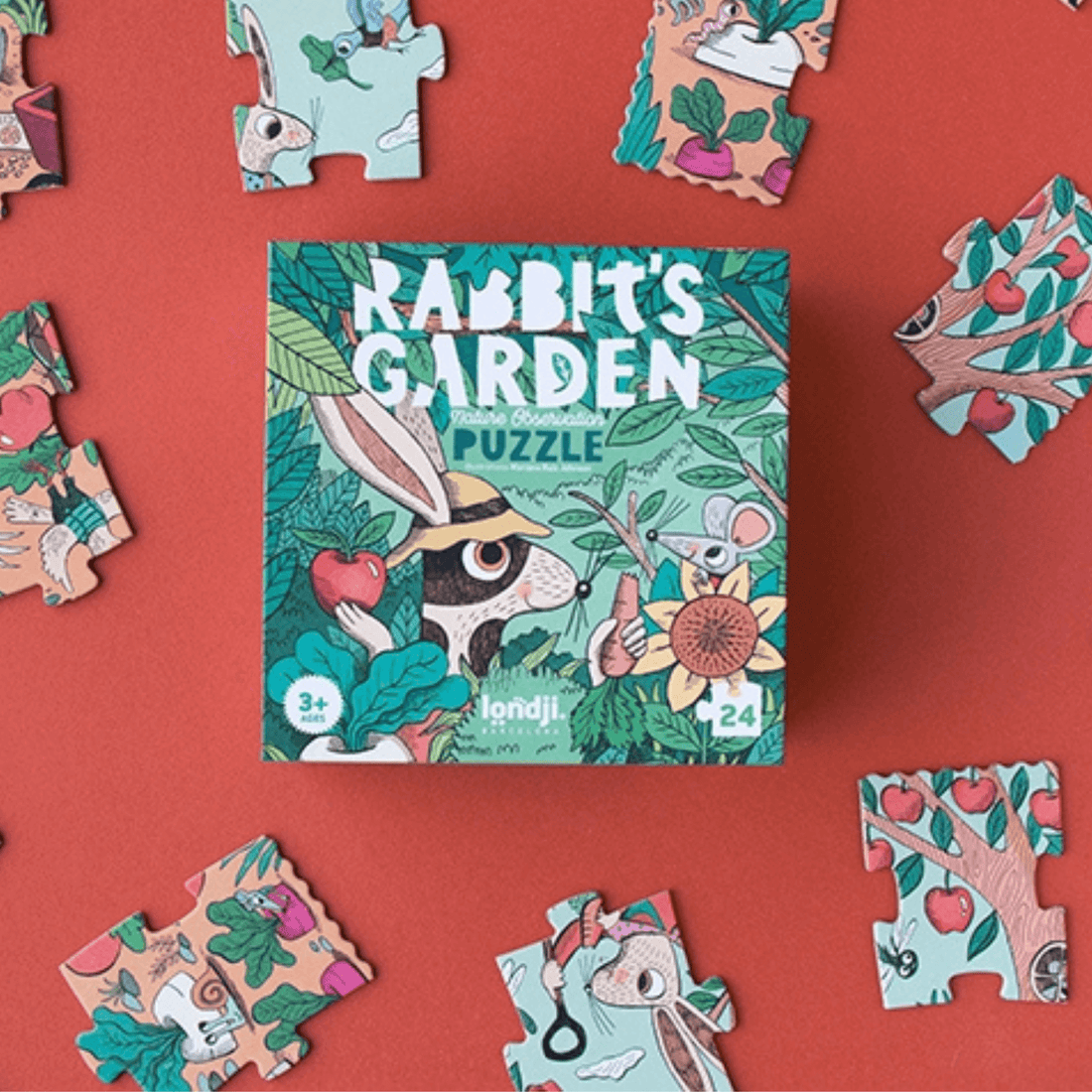 Vendor:Londji Puzzle Rabbit's GardenLondji
Vendor:Londji Puzzle Rabbit's GardenLondji- Regular price
-
€28,00 - Regular price
-
€28,00 - Sale price
-
€28,00
-
Londji Puzzle Bear's Forest
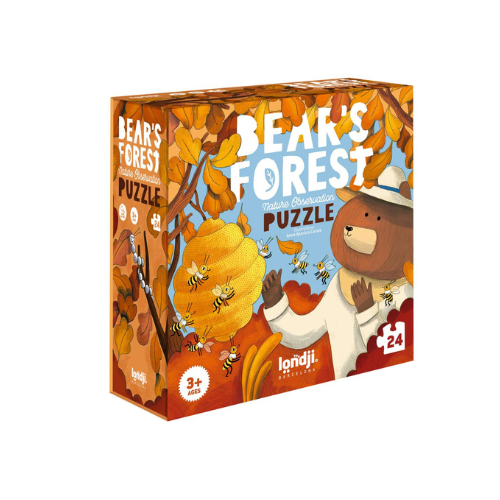
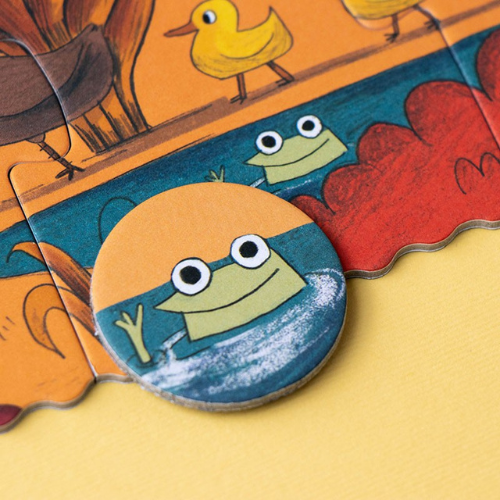 Vendor:Londji Puzzle Bear's ForestLondji
Vendor:Londji Puzzle Bear's ForestLondji- Regular price
-
€28,00 - Regular price
-
€28,00 - Sale price
-
€28,00
-
A set of large puzzles My Body
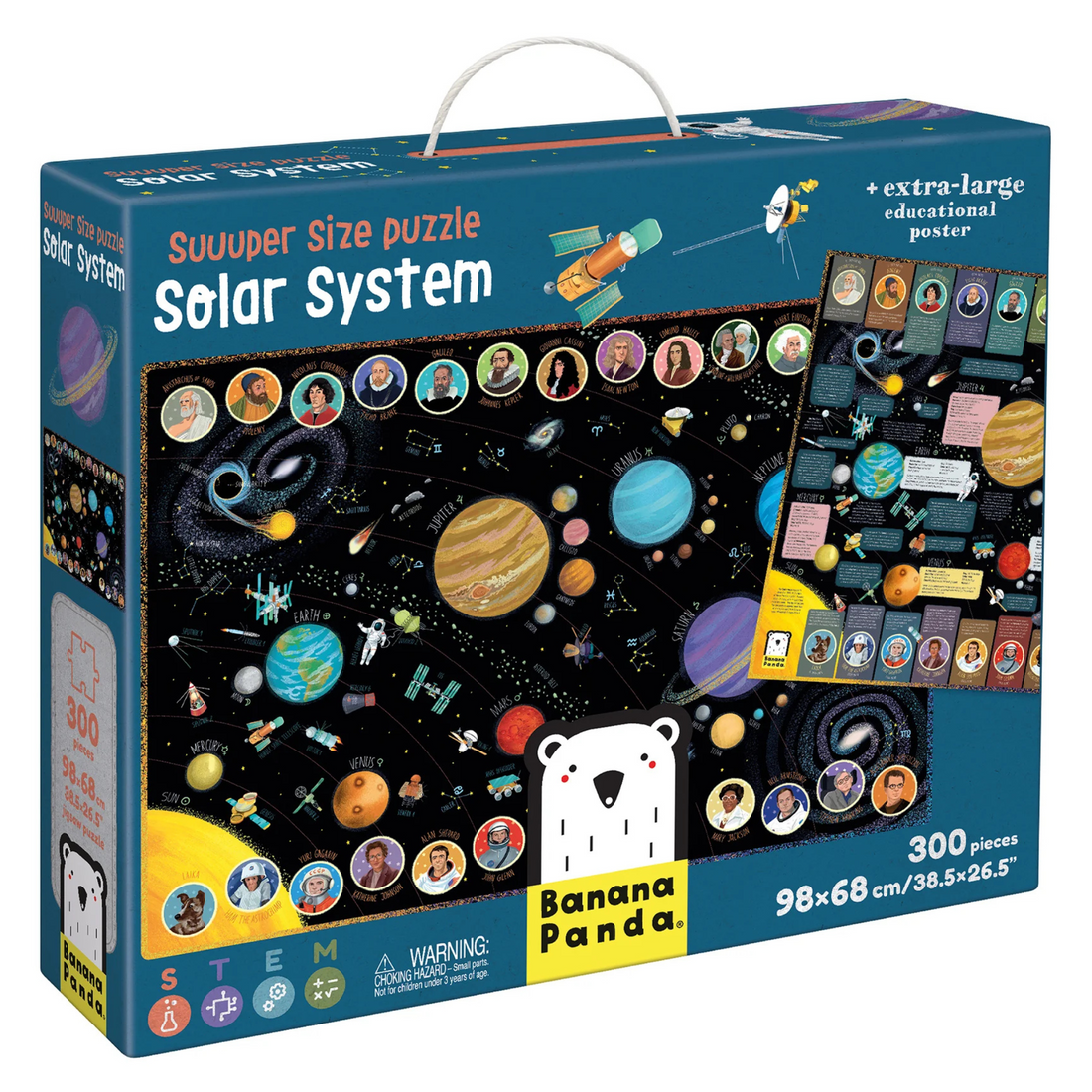
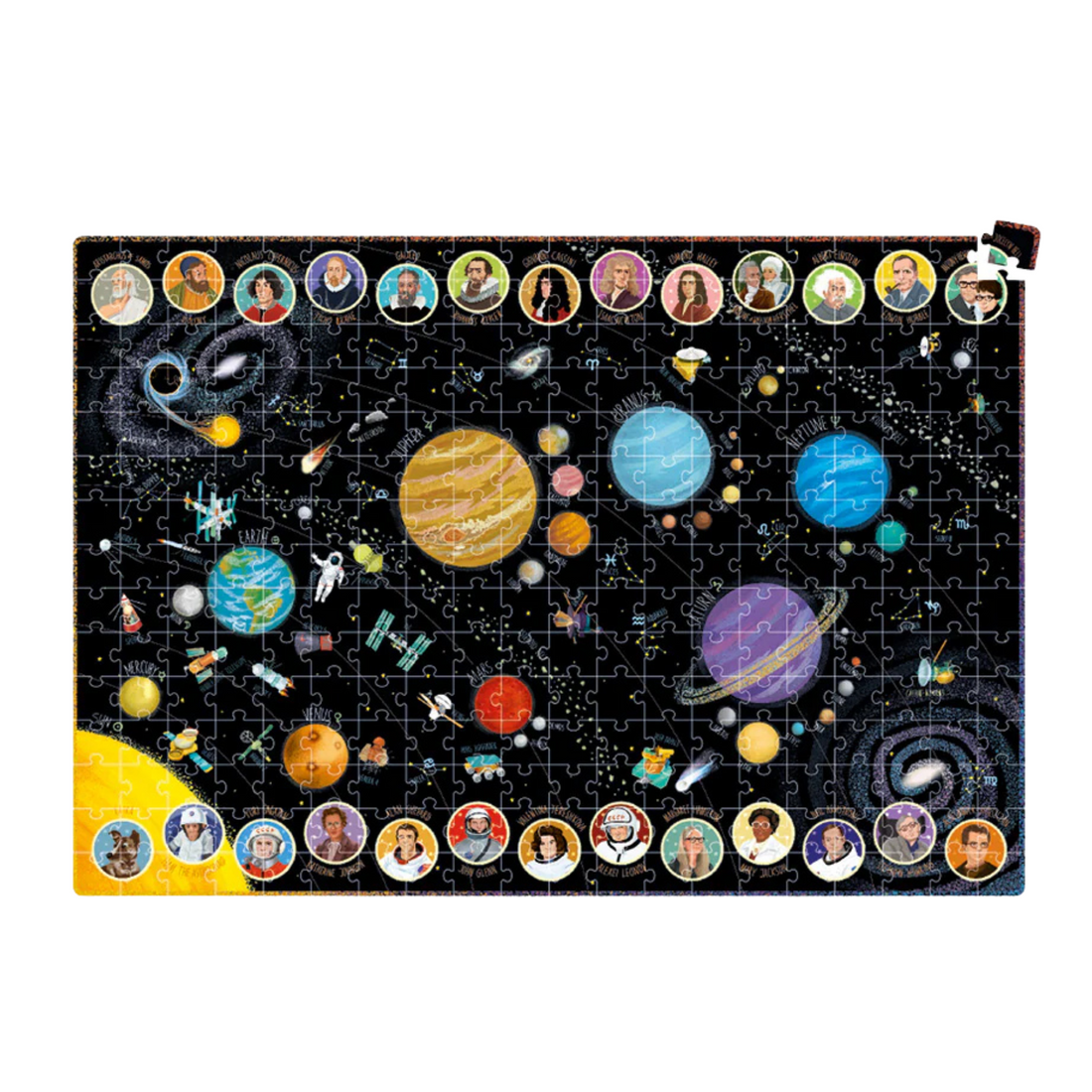 Vendor:A set of large puzzles My BodyBanana Panda
Vendor:A set of large puzzles My BodyBanana Panda- Regular price
-
€28,00 - Regular price
-
€35,00 - Sale price
-
€28,00
-
First puzzle - Food
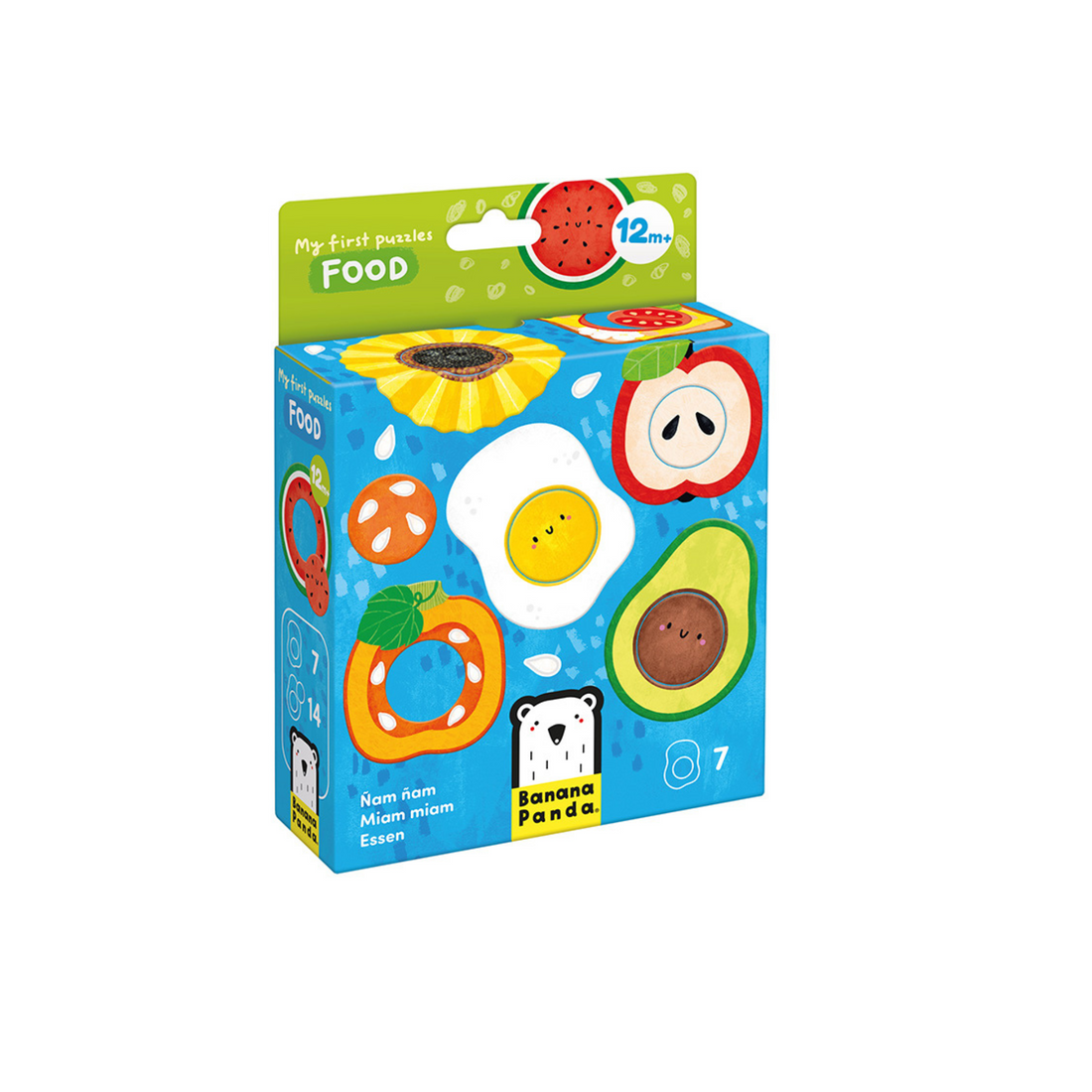
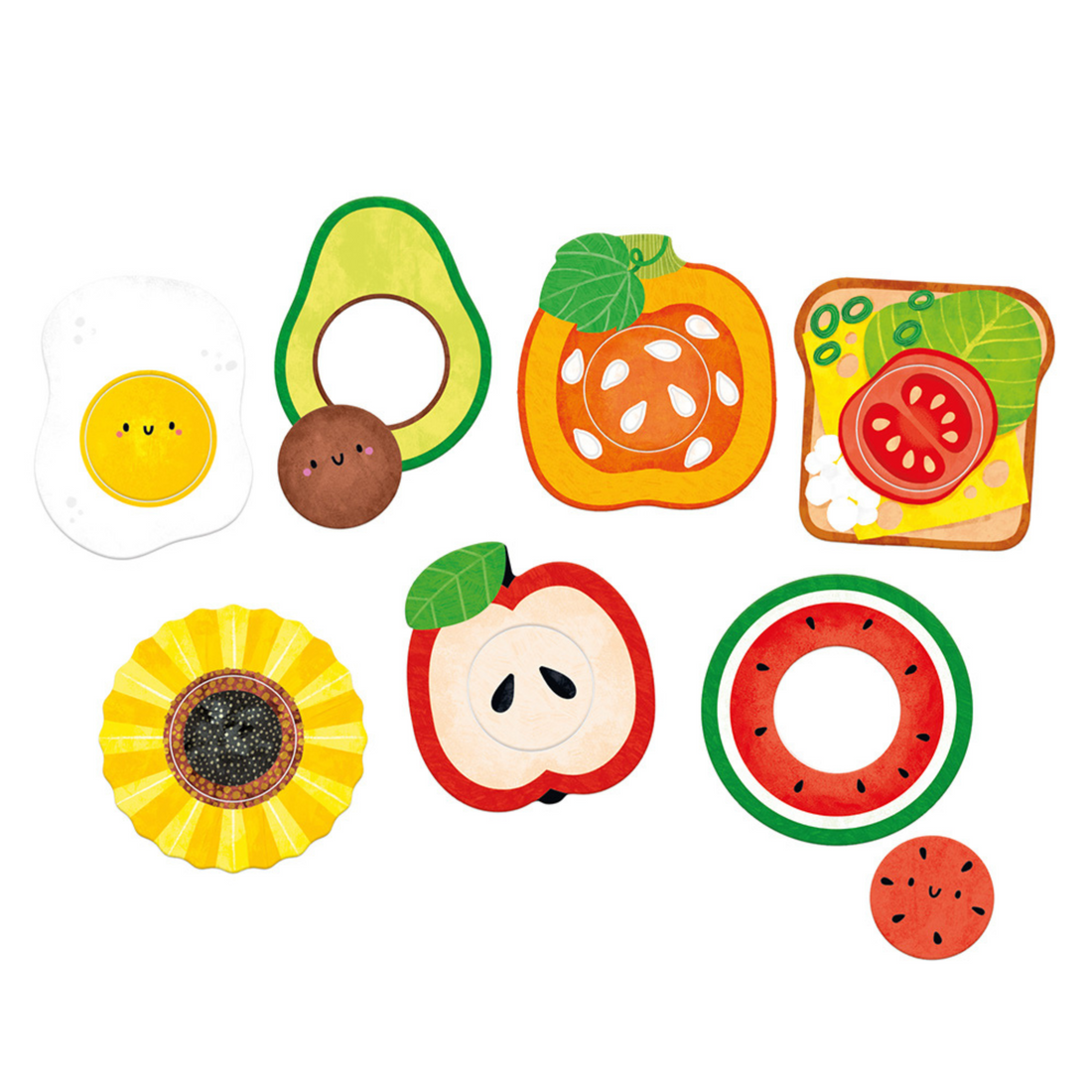 Vendor:First puzzle - FoodBanana Panda
Vendor:First puzzle - FoodBanana Panda- Regular price
-
€14,40 - Regular price
-
€18,00 - Sale price
-
€14,40
-
Magnetic puzzle - Animal
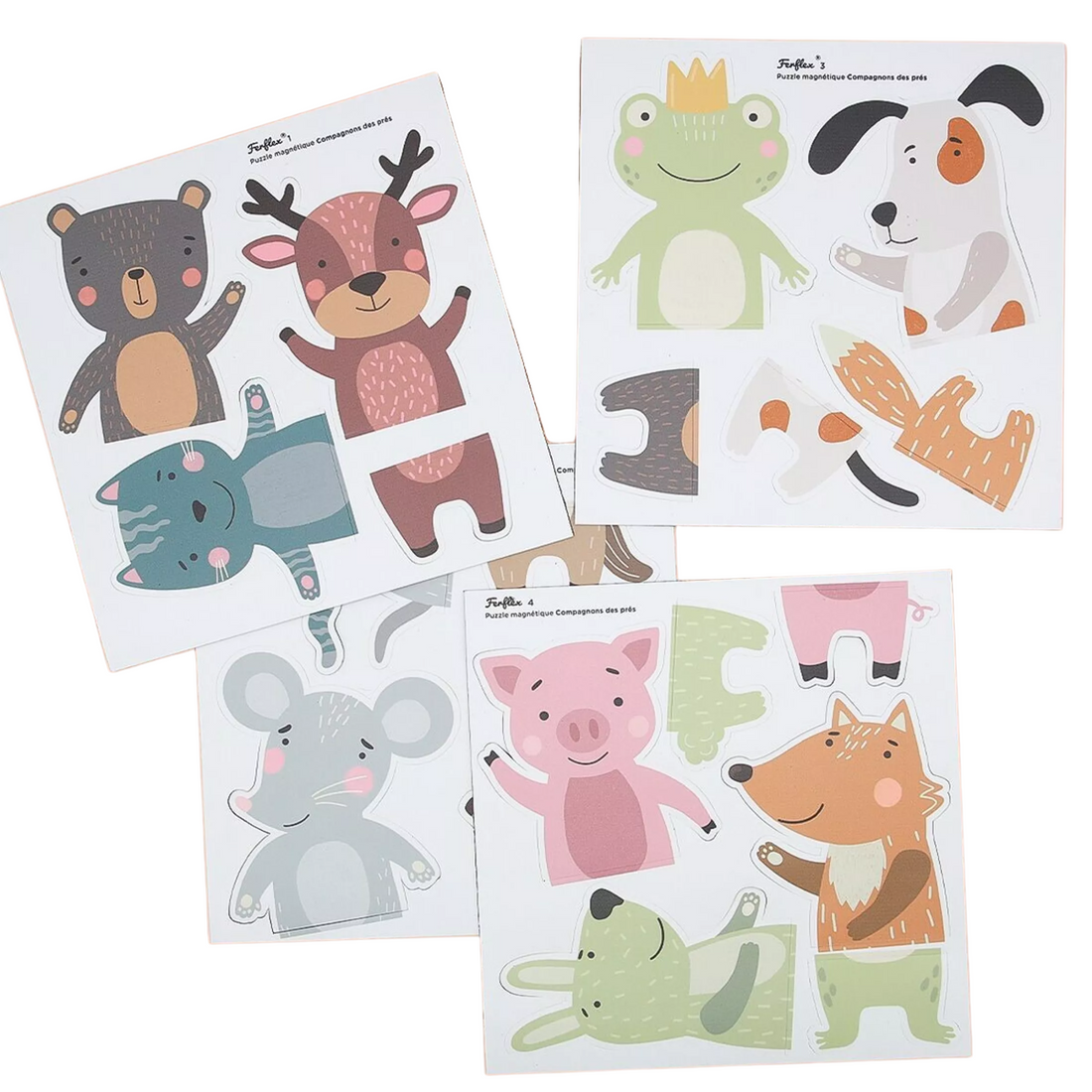 Vendor:Magnetic puzzle - AnimalFerflex
Vendor:Magnetic puzzle - AnimalFerflex- Regular price
-
€22,40 - Regular price
-
€28,00 - Sale price
-
€22,40
-
Magnetic board - Teddy bear
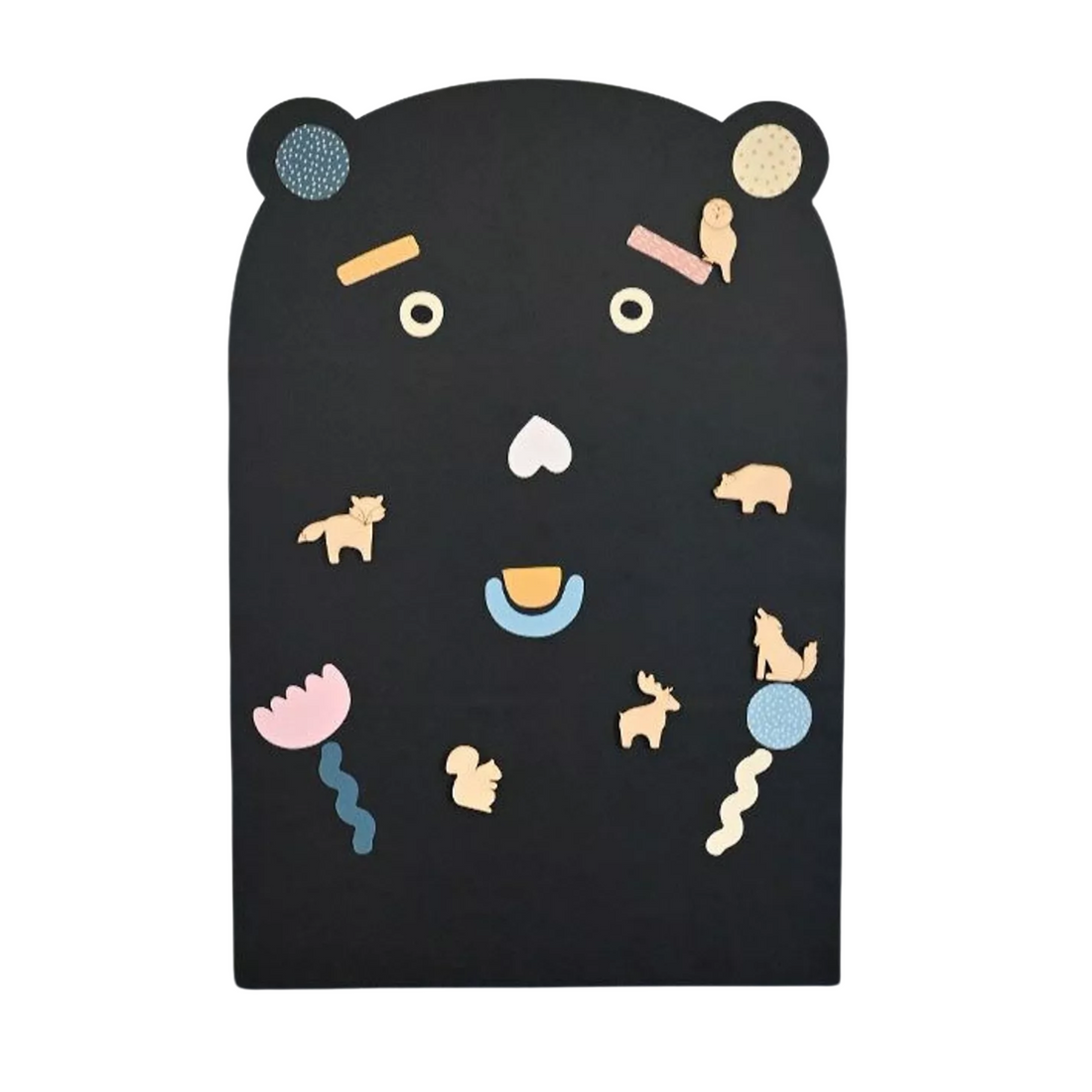
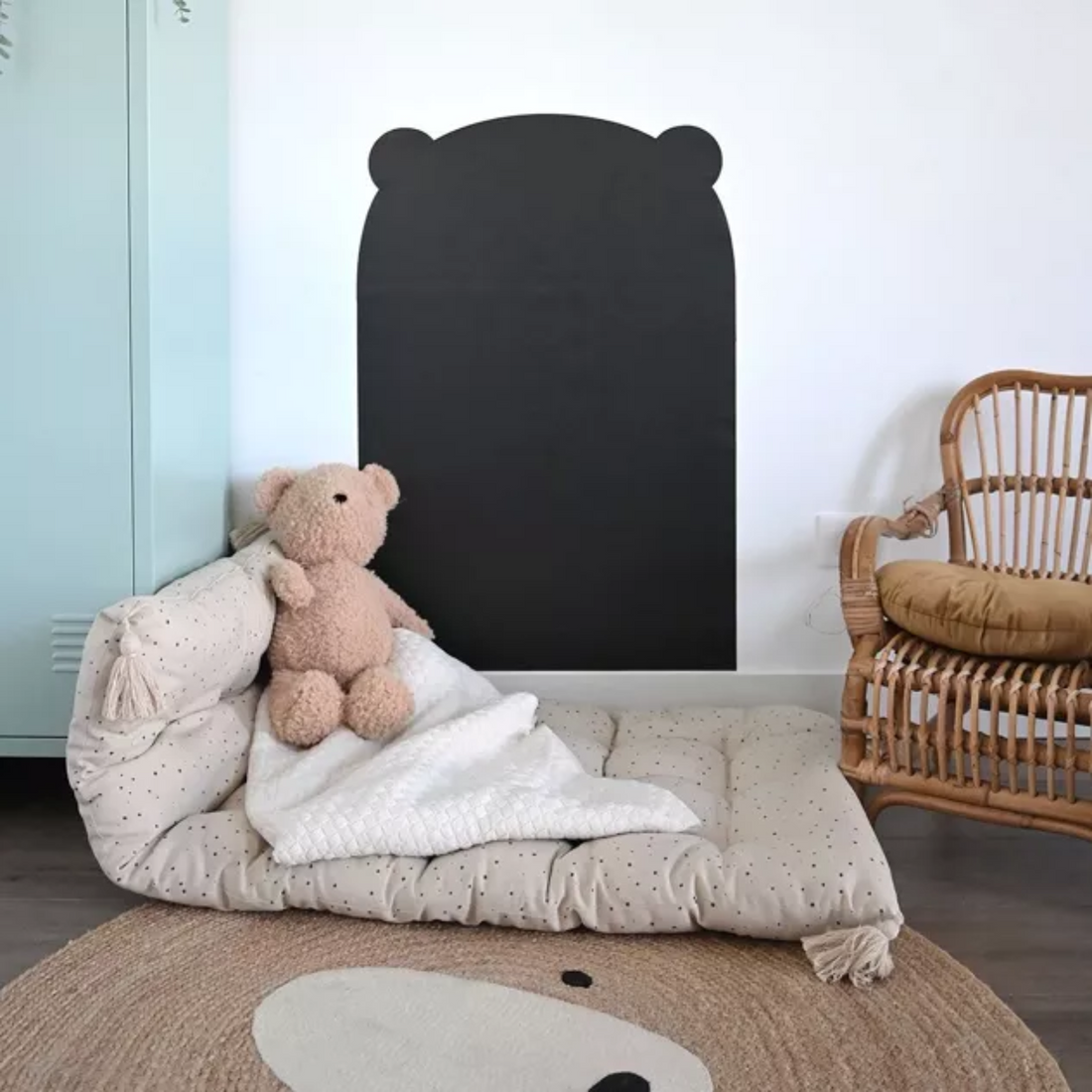 Vendor:Magnetic board - Teddy bearFerflex
Vendor:Magnetic board - Teddy bearFerflex- Regular price
-
€47,20 - Regular price
-
€59,00 - Sale price
-
€47,20
In addition, puzzles develop the coordination and motor skills of children's finger and hand movements. Because each detail needs to be taken, try to fit it in the right place in the drawing, and if it fails, try again. Finally, in addition to all the listed good qualities, jigsaw puzzles bring creative joy to children. Each completed puzzle brings a lot of joy to the person who put it together - after all, the challenge has been overcome!
According to experts, it is recommended to give puzzles to children from the age of 3. First of all, you should start with the simplest ones, consisting of up to 8 or 10 details. Later, encouraging to take on more and more complex ones, that is, with more details and smaller ones. Usually, puzzle manufacturers indicate on the product name the age group for which a particular puzzle is most suitable. It is good to follow these recommendations. Otherwise, there is a high probability that you will have to build the puzzle, and the child will just watch the process. This means that it will not develop fine motor skills and will leave the challenges of memory, patience and logical and strategic thinking to you. Therefore, before purchasing puzzles, make sure that they will not be too complicated for the child. It is possible that the gifted puzzle will not interest the child at all. Then it's a good idea to encourage the child to put the puzzle together, implicitly hinting at which piece might be appropriate in a particular case. It is important to raise the child's self-confidence and, in a certain sense, create excitement to discover, adapt and finally achieve the set goal. These qualities will undoubtedly come in handy even in the near future. Meanwhile, if your first acquaintance with puzzle games is not successful, do not give up. Maybe the first attempt was not successful because of the wrong size of the puzzle or its drawing that did not impress the child? You will solve the last problem best if you invite the child to choose the puzzle together. Being able to freely choose a puzzle can be one of the motivating reasons for creating one.




